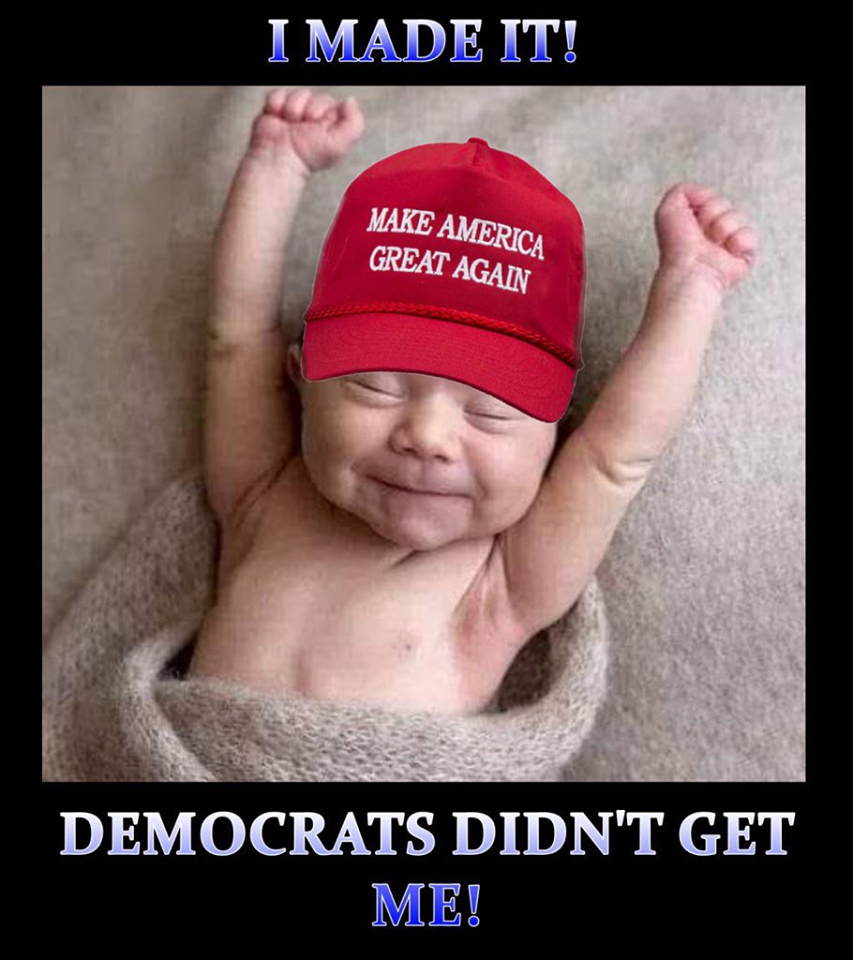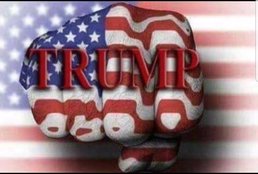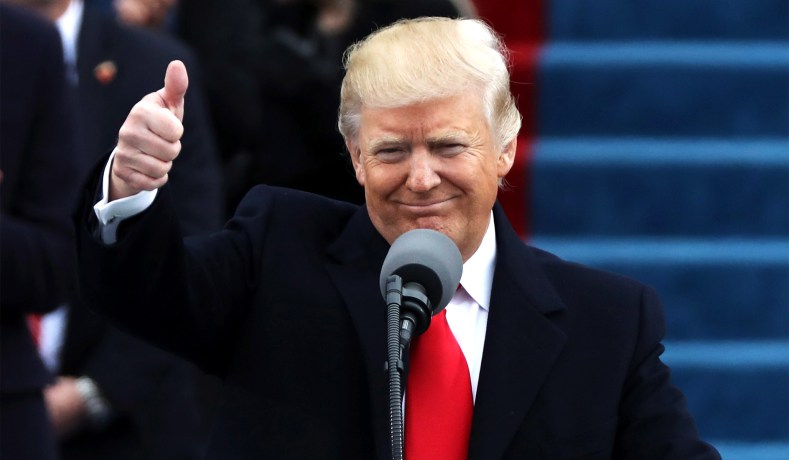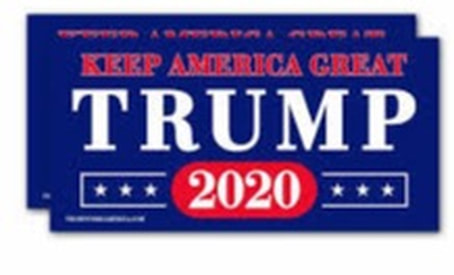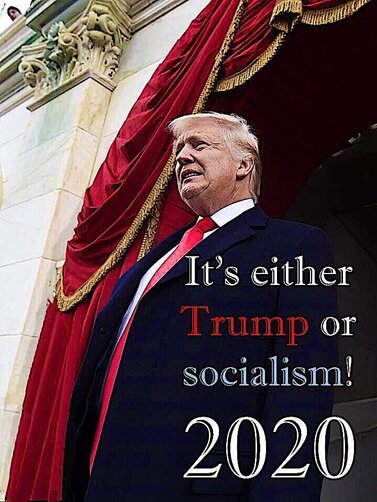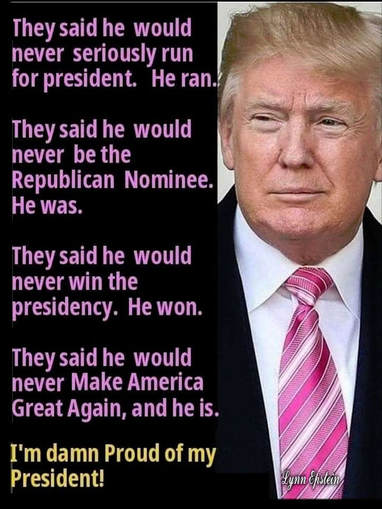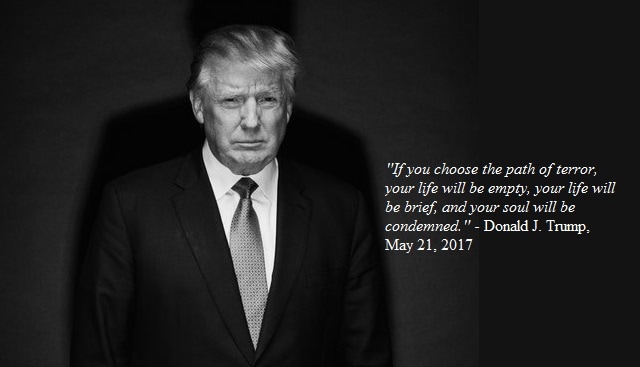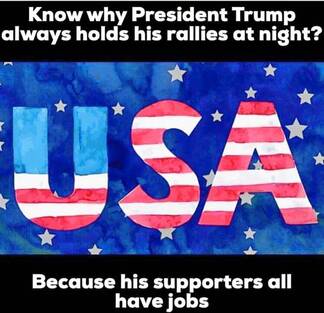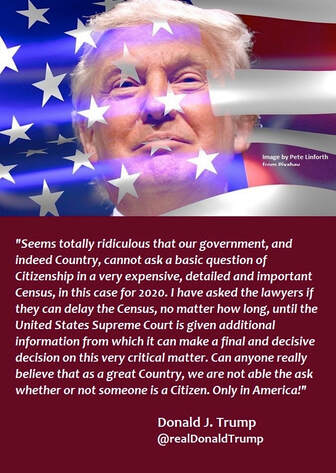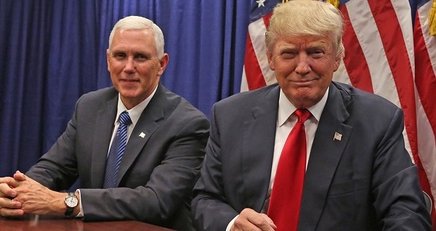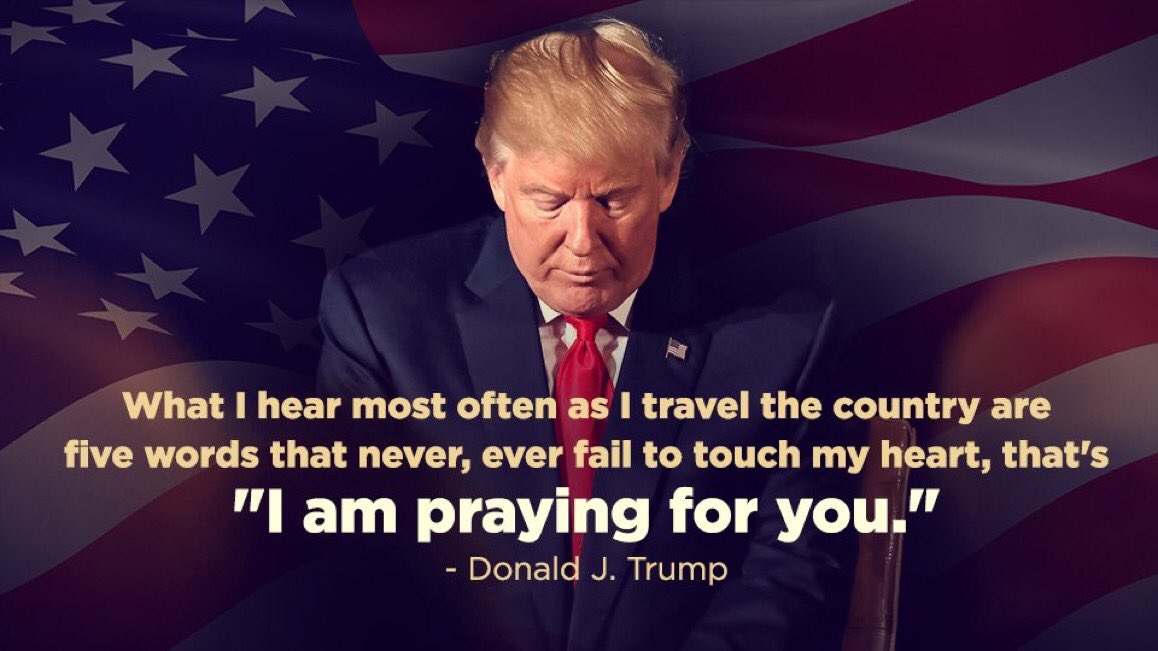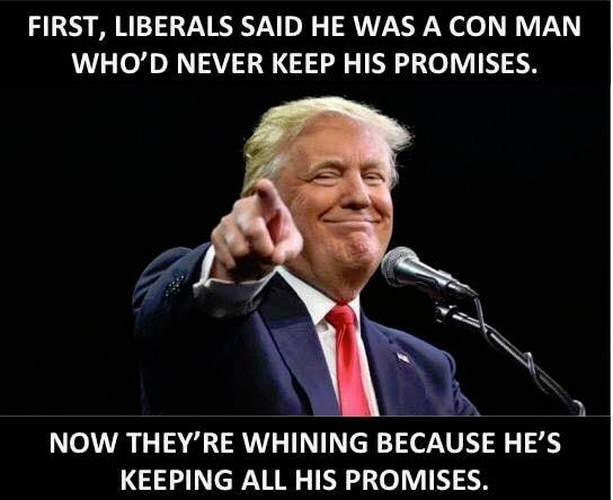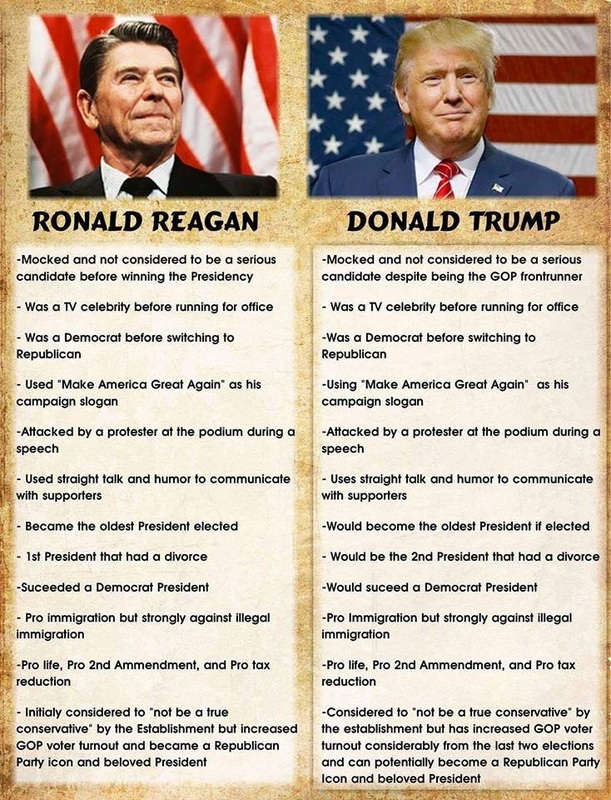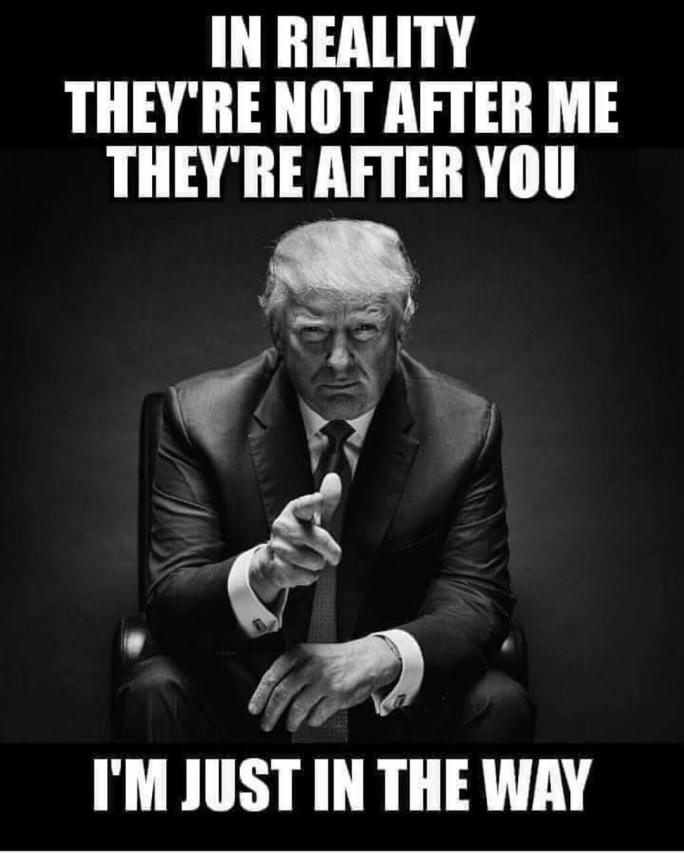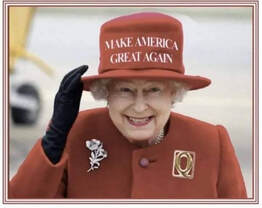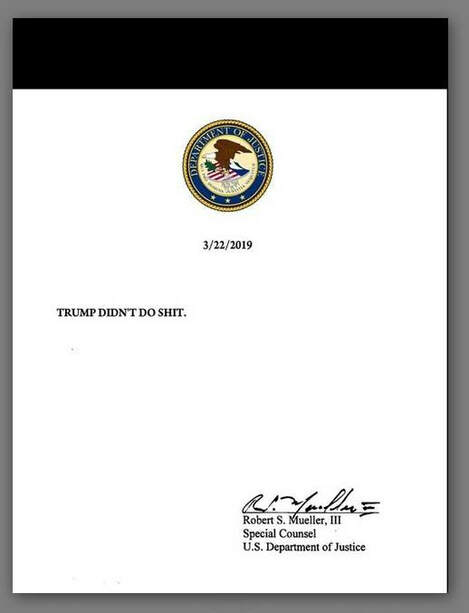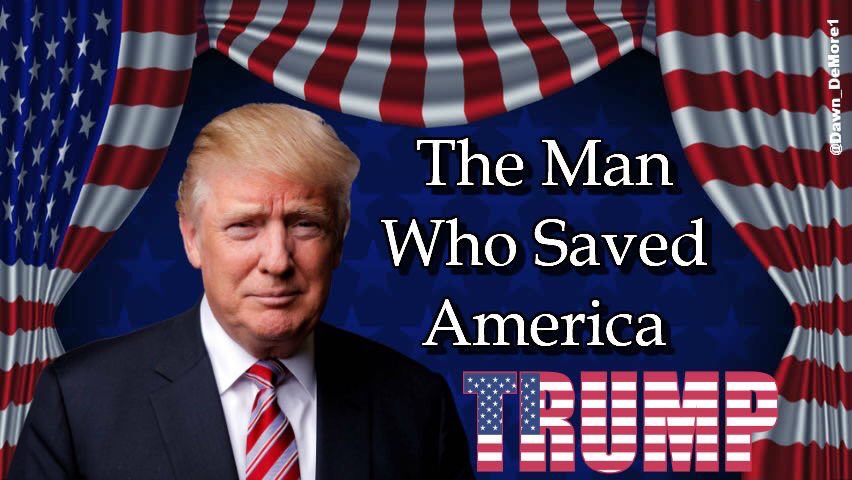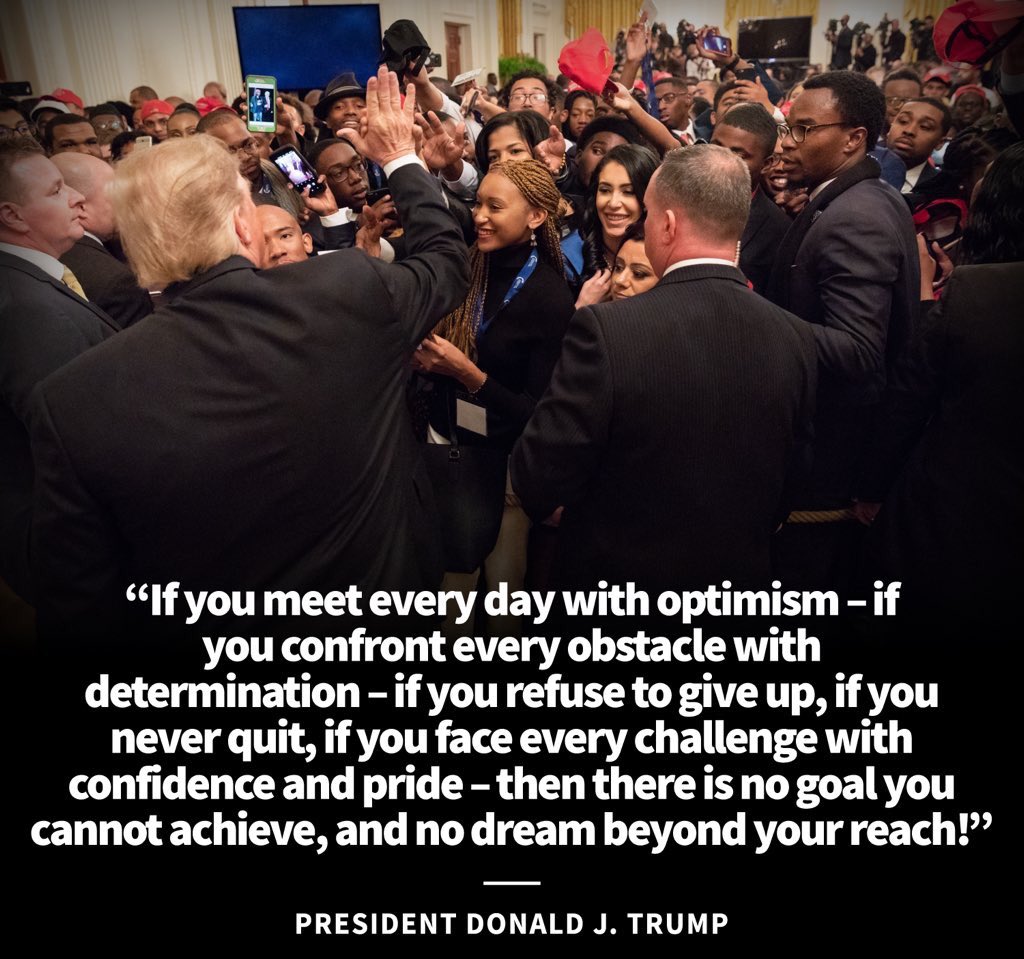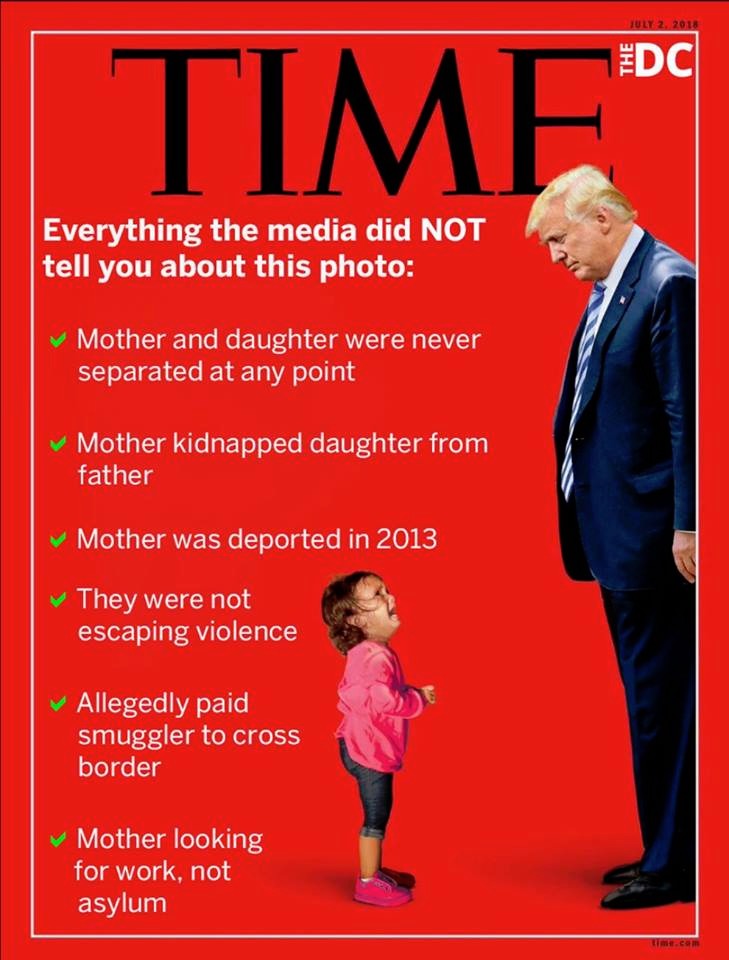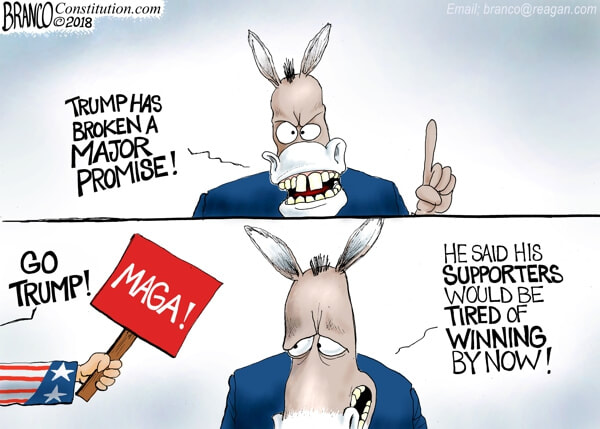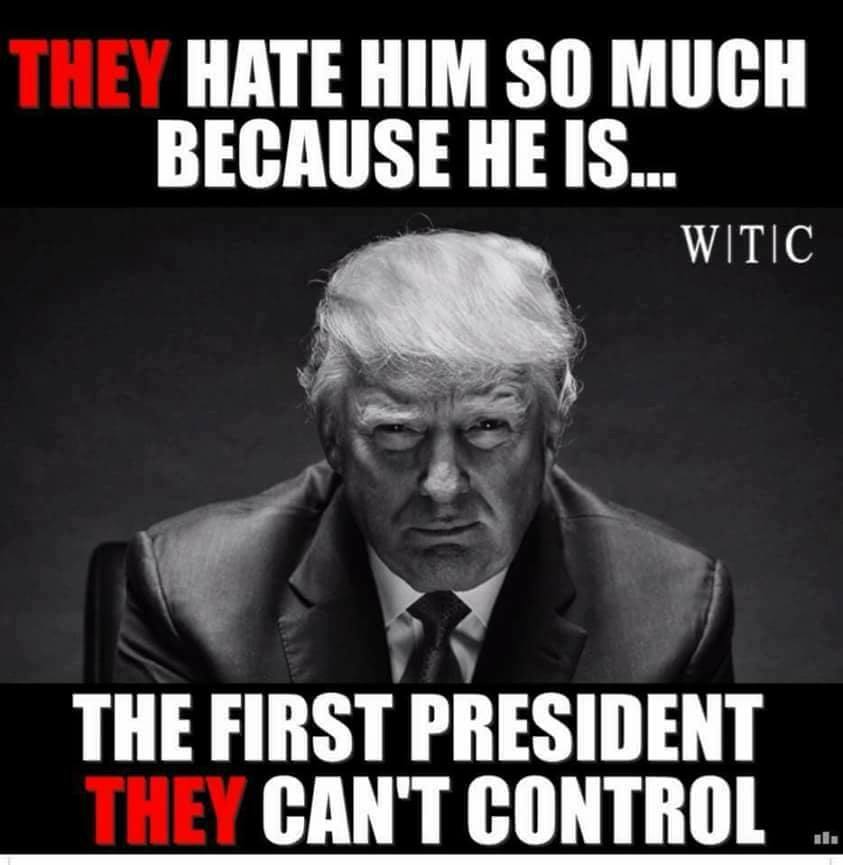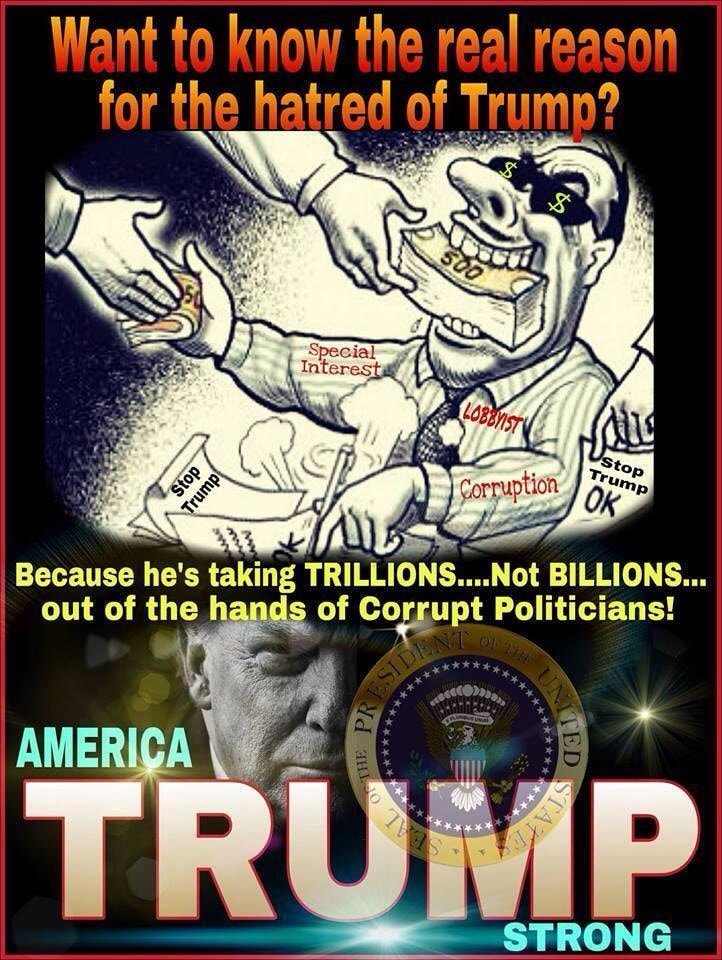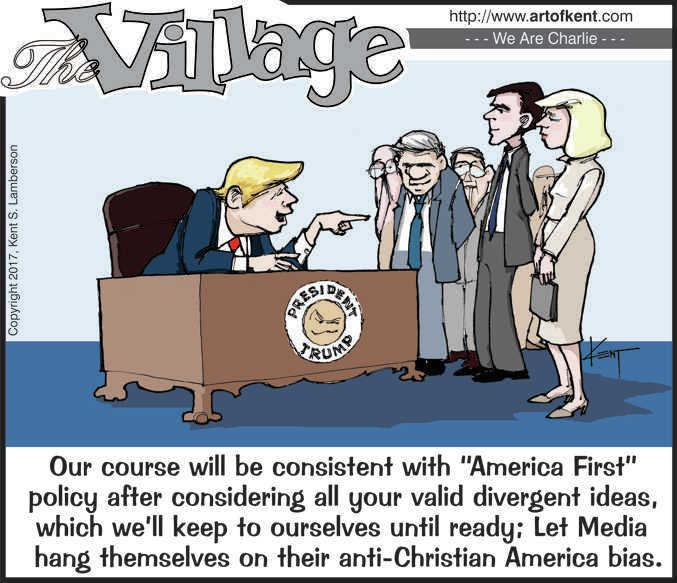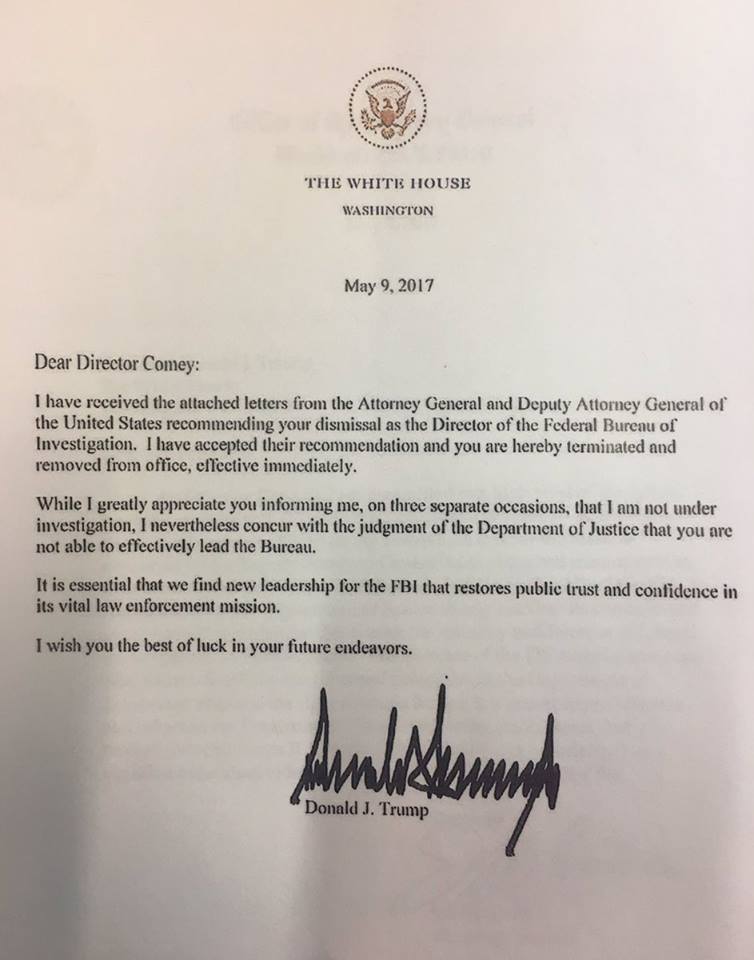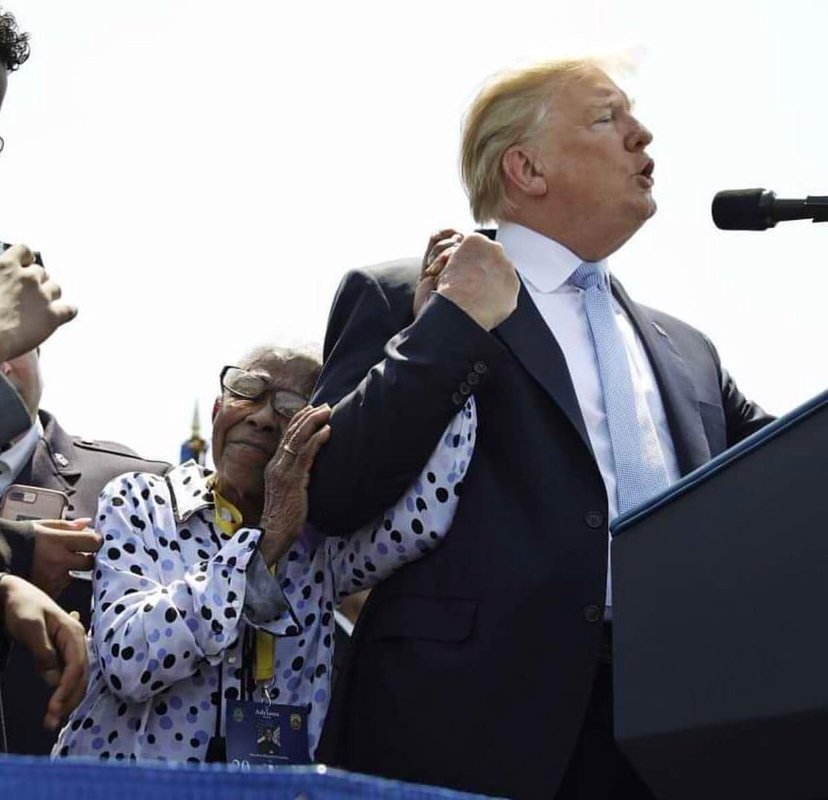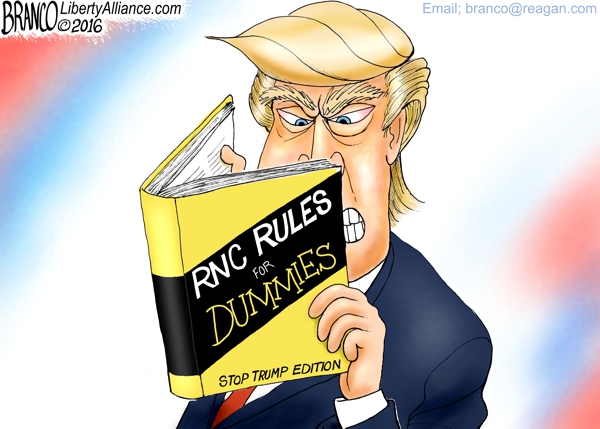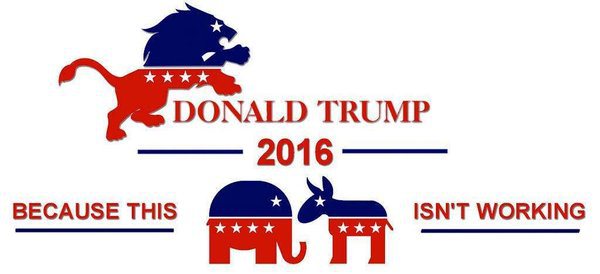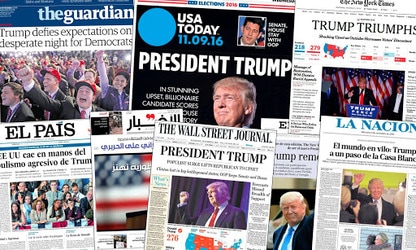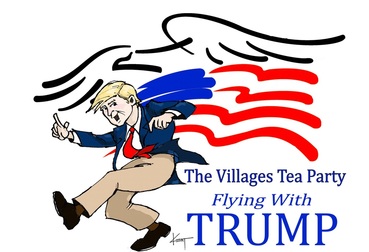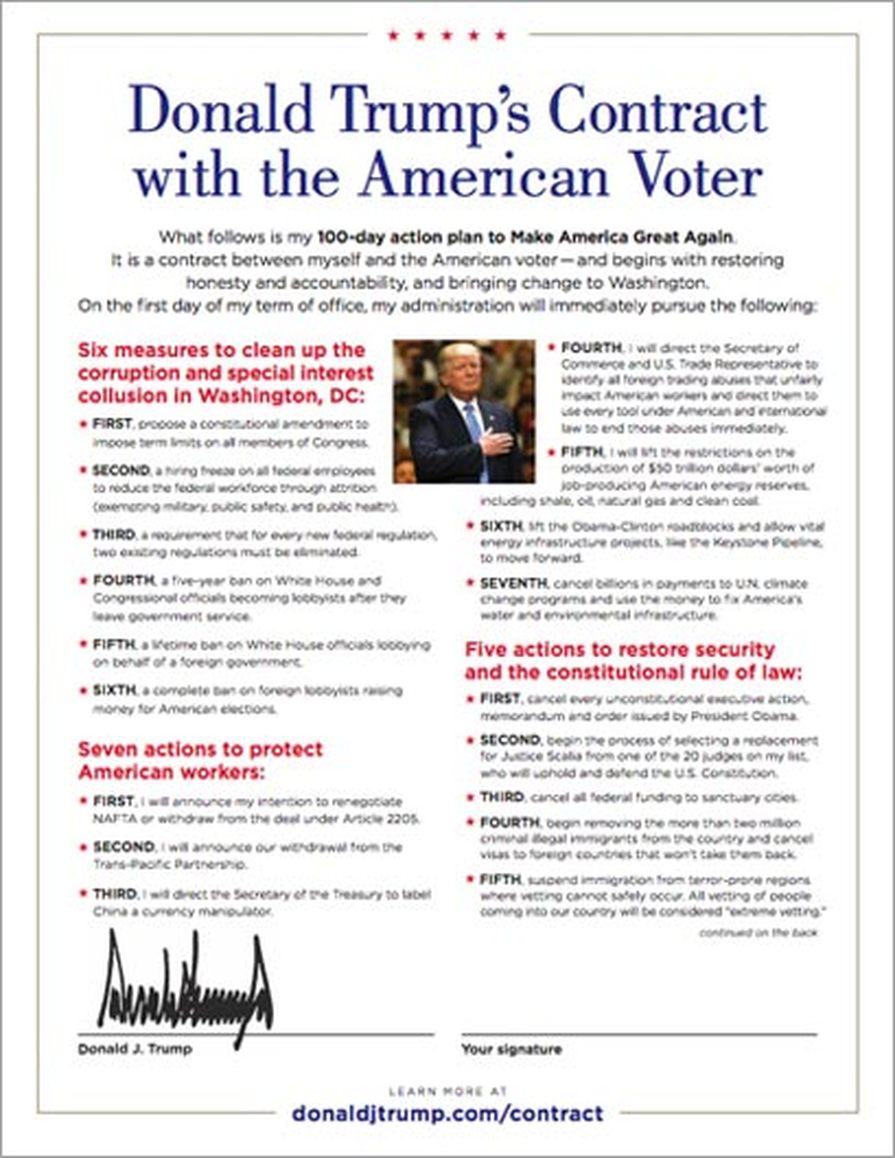________________________________________________________________________
_________________________________________________________________________________________
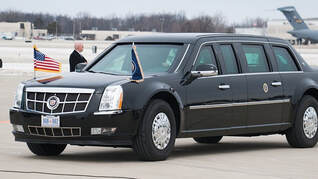
Trump To Attend Daytona 500, Plans To Take Lap In Presidential Limo ‘The Beast’
By Joseph Curl - DailyWire.com President Donald Trump is planning on attending the Daytona 500 race on Sunday. “I look forward to attending the Daytona 500 on Sunday with lots of my great friends from Florida, including the France family and @RepMichaelWaltz from #FL6. See you there, good luck to everyone!” Trump wrote Friday on Twitter. Donald J. Trump✔@realDonaldTrumpI look forward to attending the Daytona 500 on Sunday with lots of my great friends from Florida, including the France family and @RepMichaelWaltz from #FL6. See you there, good luck to everyone! @NASCAR @SenRickScott @marcorubio @GovRonDeSantis Daytona International Speedway✔@DISupdatesStatement from Daytona International Speedway President Chip Wile regarding the visit of the President of the United States to the DAYTONA 500. Trump has a long relationship with NASCAR and its fans. He was endorsed by NASCAR CEO Brian France during the 2016 presidential election. Daytona is welcoming Trump, even naming him the grand marshal of Sunday’s race, making Trump the first sitting president to hold the honor. “Daytona International Speedway has been privileged to have hosted several sitting Presidents of the United States over our history,” Daytona International Speedway President Chip Wile said in a statement. “We’re honored that the President of the United States has chosen to experience the pageantry and excitement of ‘The Great American Race’ by attending Sunday’s 62nd annual Daytona 500.” But is attending a NASCAR race really enough? Not for Trump. Word quickly began circulating that Trump might actually take a lap around the famed track in the presidential limo known as The Beast. “SCOOP: Multiple Sources tell @FoxNews that @realDonaldTrump is planning to take a lap at the @DISupdates Daytona International Speedway in the ‘Beast’ presidential limo ahead of the Daytona 500. It’s not 100%, but that is the plan at the moment,” Fox News’ John Roberts wrote on Twitter. John Roberts✔@johnrobertsFoxSCOOP: Multiple Sources tell @FoxNews that @realDonaldTrump is planning to take a lap at the @DISupdates Daytona International Speedway in the “Beast” presidential limo ahead of the Daytona 500. It’s not 100%, but that is the plan at the moment. Memes started moving right away, like this video found on reddit.com. Joseph Curl @josephcurlTrump's getting ready for a a lap around Daytona. John Roberts✔@johnrobertsFox · Feb 14, 2020SCOOP: Multiple Sources tell @FoxNews that @realDonaldTrump is planning to take a lap at the @DISupdates Daytona International Speedway in the “Beast” presidential limo ahead of the Daytona 500. It’s not 100%, but that is the plan at the moment. Alamo_on_the_rise @AlamoOnTheRiseWill Trump have secret service run alongside? The Beast isn’t exactly the kind of vehicle built for speed. It cost millions to produce and is a heavily modified Cadillac. It’s so weighted down with armor that it weighs up to 20,000 pounds (no one knows for sure, so secretive is the production of the vehicle). The Beast has eight-inch thick steel doors that weigh as much as those on a Boeing 757, and the five-inch thick front windshield can protect the president from armor-piercing bullets. The Beast also has “run-flat tires,” an air-tight interior that seals against chemical attacks, along with some offensive capabilities, such as rocket-propelled and smoke grenades, pump shotguns in the front doors, and a tear gas cannon. Toss in night vision optics, onboard oxygen tanks and an armored fuel tank filled with foam to prevent explosion and you’ve got one of the most secure cars in the world. Trump loves showing off The Beast, like he did when he met with North Korean leader Kim Jong Un in Singapore in 2018. NBC News✔@NBCNewsWATCH: President Trump walks with Kim Jong Un to show off his presidential limousine that is nicknamed "The Beast." https://nbcnews.to/2LGdBJe Trump won’t be the first to attend the venerable race. Former President George W. Bush attended the Daytona 500 in 2004 and his father, former president George H.W. Bush, attended a July race at Daytona in 1992. Ronald Reagan also attended a race in 1984. The U.S. Secret Service tweeted Wednesday that it was securing the Daytona International Speedway. The presidential security branch noted that drones will be banned within a 30-mile radius of the site. U.S. Secret Service✔@SecretServiceLadies and Gentlemen start your engines but not your drones. The Secret Service is securing the @NASCAR Daytona 500 by providing a 30 mile “No Drone Zone”. Enjoy the race. NASCAR drivers are stoked that Trump’s dropping by the big race, ABC Newsreported. When Trump arrives Sunday at Daytona International Speedway to deliver the command for drivers to start their engines, the race’s grand marshal might as well be at one of his campaign rallies. High above banners flying for NASCAR stars like Chase Elliott and Kyle Larson, Trump flags wave atop row after row of flashy RVs. … Two Cup Series champions, Martin Truex Jr. and Joey Logano, have been honored at the White House. Kyle Busch, the reigning series champion who visited the White House and President Barack Obama following his 2015 title, said he would go again if invited by Trump. Logano said it was “amazing” Trump was attending “The Great American Race.” “The leader of our country is coming to the Daytona 500. How cool is that?” Logano said. “That kind of solidifies what our sport is. It’s a huge event. We’re a big sport, and to be able to have the president come here, that’s something we all should be proud of. Whether you support him or not, it doesn’t matter. It shows the unity in our sport and how big our sport really is.” __________________________ 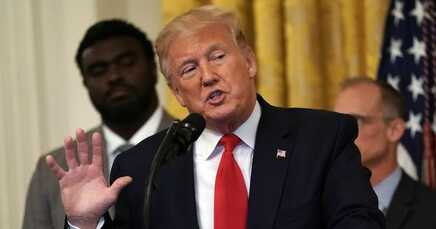 President Donald Trump speaks during an East Room event on "second chance hiring" June 13, 2019 at the White House in Washington, D.C. (Alex Wong / Getty Images) President Donald Trump speaks during an East Room event on "second chance hiring" June 13, 2019 at the White House in Washington, D.C. (Alex Wong / Getty Images)
Dick Morris: Trump Needs To Weaponize His Economic Record
By Dick Morris Published June 13, 2019 at 4:35pm It will not work for President Donald Trump to keep repeating statistics about the spectacular performance of the economy under his administration. Nor will it be particularly effective to belabor comparisons with the Obama years. The economy is like the weather. When it is bad, it is all anyone can think about and looms as the major topic of complaint. The greater the disaster, the longer the recession, the more it dominates all other issues. But when the skies have cleared, voters have difficulty remembering how bad it was. Doctors tell us that their patients have trouble remembering what pain felt like. So do voters when they try to recall how the stagnation, dashed hopes and squandered dreams of the recession years felt like. So Trump must go further to get the political benefit he deserves from the good economy. To use the economy in the campaign, Trump needs to weaponize it. He needs to point out that he turned the economy around with unanimous Republican support and equally solid Democratic opposition. This was no deal or settlement. The Democrats did everything they could to kill, delay, dilute or destroy Trump’s initiative. There is no credit to go around. There was no compromise. No splitting of the difference. This is a 100 percent a Trump/Republican accomplishment. The Republicans persevered and got it through. The economic disaster of the Obama years began to end with Trump’s election. But, when all Republicans opposed all Democrats to pass Trump’s programs of tax cuts, it moved into high gear and has been roaring along at an average 3 percent growth rate ever since. (Obama’s average was 2.4 percent). So Trump needs to take the issue to the stump. Rather than talk only about his achievement — as an incumbent president is wont to do — he needs to discuss what would have happened if the Democrats still ran the show. He needs to elaborate on what our economy would look like now if Hillary Clinton had won and continued Obama’s policies. He needs to warn what will happen if the Democrats resume control over the economy in 2020. Describe what turning back would mean. Show voters what today would be like if the Democrats controlled the Congress or the White House: Continued high unemployment, a nation dragged down by a global recession, an expanding — not narrowing — wage gap between the rich and the poor, no new jobs, a continuing trade imbalance draining our nation. Paint the picture of what would be happening if the country had forked to the left instead of the right in 2016. Then he needs to take the next step and explain what will happen if the Democrats have their way in the 2020 election. He needs to paint the future canvass if they win. Higher taxes, much slower growth, fewer jobs, lower wages, continuing collapse of manufacturing and a larger trade deficit. Ever since FDR, the credit for good economic times has had to be shared by the two parties. During the Kennedy, Johnson, Eisenhower, Nixon, Carter, Obama and Bush years the parties ironed out their differences and moved forward together. Even under Reagan, House Speaker Tip O’Neill gave way to the president. But, in the 1930s, when the Republicans of the Hoover-Landon era opposed the New Deal programs unanimously and at the top of their lungs, was economic recovery a one-party issue, just as it is today. The result was the Roosevelt landslide of 1936, just as it might be a resounding Trump victory in 2020. The views expressed in this opinion article are those of their author and are not necessarily either shared or endorsed by the owners of this website. 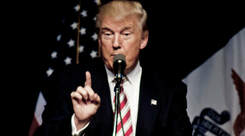
Trump threatens to cut FEMA funds to California if state’s ‘disgraceful’ forest management does not improve
January 10, 2019 by Ben Baird President Donald Trump’s patience is wearing to an end when it comes to California’s continued forest mismanagement. In a Wednesday morning tweet, the president threatened to cut Federal Emergency Management Agency (FEMA) funds to the state unless California’s Democratic leaders “get their act together” soon. The best of intentionsBeginning in the 1990s, environmentalist liberals began implementing plans to limit logging of old-growth trees and active forest management, hoping to protect endangered species and their habitats. However, like many Democratic policies, good intentions can reap devastating results. “[Before 1994] mostly fuels were removed through logging, active management — which they stopped — and grazing,” said Bob Zybach, a reforestation consultant with a doctorate degree in environmental science. “You take away logging, grazing, and maintenance, and you get firebombs.” The Western Governors Association predicted the looming firestorm in a 2005 report, warning that unsound government policy had created a recipe for disaster: Over time the fire-prone forests that were not thinned, burn in uncharacteristically destructive wildfires, and the resulting loss of forest carbon is much greater than would occur if the forest had been thinned before fire moved through. In the long term, leaving forests overgrown and prone to unnaturally destructive wildfires means there will be significantly less biomass on the ground, and more greenhouse gases in the atmosphere. Too little, too lateCalifornia’s government has only recently taken forest management seriously. For years, Democratic Gov. Jerry Brown insisted that climate change was to blame for the conflagrations burning across his state, and when much of California was burning in August, Brown blamed carbon emissions. “We’re fighting nature with the amount of material we’re putting in the environment, and that material traps heat, and the heat fosters fires, and the fires keep burning,” Brown said at the time. He added that people need to “shift the weather back to where it historically was,” arguing that current climate is the hottest it’s been “since civilization emerged 10,000 years ago.” However, there is no legitimate science behind Brown’s attempt to transfer the blame for California wildfires from environmentalists to “climate deniers.” As forestry professor David B. South of Auburn University testified to the U.S. Senate Environment and Public Works Committee in 2014, “data suggest that extremely large megafires were four-times more common before 1940,” and “we cannot reasonably say that anthropogenic global warming causes extremely large wildfires.” “To attribute this human-caused increase in fire risk to carbon dioxide emissions is simply unscientific,” South told Congress. But California’s newly-elected Democratic Gov. Gavin Newsom responded with impunity, lending his signature to a joint letter asking the federal government to assist the governors of California, Oregon, and Washington in combating recent “unprecedented” wildfires. “We have been put in office by the voters to get things done, not to play games with lives,” the letter stated. “Disasters and recovery are no time for politics. I’m already taking action to modernize and manage our forests and emergency responses. The people of CA — folks in Paradise — should not be victims to partisan bickering.” “Fire prevention has always been very important, and the good news is the last couple of years we have become more aggressive with that,” added California Fire Chief Director Ken Pimlott, who blames poor policy for the “very aggressive” fires that have been raging across the state. Indeed, the California legislature set aside $200 million in the 2018 fiscal year to fund forest management, and the federal government recently passed an omnibus spending bill that offers contingency funds for states to access in particularly disastrous years. The cost of inactionStill, California has taken far too long to see the writing on the wall and to formulate sensible fire management policy. Conservatives would like to set aside resources to counter environmentalist lawsuits and make it easier for state and local governments to assist in federal forest management. Moreover, much of the money that California set aside to prevent fires has been used instead to fight fires, explaining why some 4,500 fires scorched the Golden State in 2018, consuming more than 400,000 acres of land. With any luck, the president will succeed in pressuring the new California chief executive to take forest management more seriously. There are lives depending on it. ___________________________ 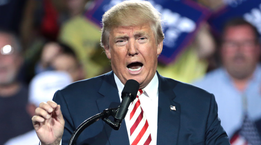
Trump halts speech, calls doctors for emergency in crowd at Michigan rally
May 1, 2018 Gage Skidmore / CCL An incident at a rally in Michigan Saturday night is the perfect example of why so many Americans find President Donald Trump more relatable than most politicians. As the president was in the middle of his speech, an audience member suffered a medical emergency. Trump called out for help and paused his speech for three minutes, waiting considerately as medical personnel responded, then praised them. “Those are the people we love, those are great people, I’ll tell you.” Trump stops rally for medical emergencyPresident Trump skipped the White House Correspondent’s Dinner Saturday night to hold a campaign-style rally in Michigan. That alone was a break in convention — it was his second time skipping the dinner, making him the first president to sit out since Reagan — but what happened at the rally was even more unusual. Trump was in the middle of talking about ICE and gangs about 50 minutes into his speech when an audience member had an emergency. Trump suddenly stopped, called for help and patiently stepped aside. “These ICE agents are much tougher. And they’re grabbing them and I’ll tell you what – a doctor please? Doctor. A doctor please,” Trump called out, realizing something was the matter. Someone shouted “Thank you, sir!” before Trump walked off to the edge of the stage. “Take your time, take your time,” he told the doctors. Trump stood silently off to the side for about three minutes, facing the flanks of the crowd. At one point, he turned to one audience member, nodding “thank you” in response to shouts of “We love you, Mr. President!” When the emergency was resolved, Trump applauded and waved to the responders, then stepped back on stage to a clamor of applause. He gave a special nod to the doctors who stepped in. “Those are the people we love, those are great people, I’ll tell you. And the doctors, thank you, doctor. Great job. Amazing! What people we have, what people we have.” Watch the whole thing here. Man of the peopleIt was a remarkable scene from what many pundits have already described as an unconventional staple of Trump’s administration. Trump’s numerous campaign-style rallies since his inauguration have been derided as unusual and even dictatorial by his critics. Trump’s way of reaching the people is definitely unconventional — but it works. In this case, Trump skipped a ritzy dinner with the media to talk to ordinary people; one could hardly ask for a better summary of his relationship with the media and the average American, respectively. “I was invited to another event tonight, but I’d much rather be in Washington, Michigan, than Washington D.C.,” he told the Michigan crowd, to loud applause. While the mainstream media was hosting hack comedians who think abortion is funny and complaining about the dangers the president poses to journalism, President Trump was speaking directly to the people — and taking time out of his own speech so someone could get help. The audience at this rally was thrilled to see their president behave so considerately. It’s hard to imagine a mean-spirited “entertainer” like Michelle Wolf or an uncaring elitist like Hillary Clinton doing the same. __________________________O 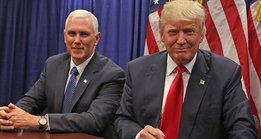
TRUMP CRASHES NEWS GATEKEEPERS TO REACH AMERICANS
Campaign uses new tool to reveal facts mainstream media are 'hiding'Published: 1 day ago BOB UNRUH About | Email | Archive Presidents through the decades have adopted the latest technology to reach American voters with their message, from whistle-stop train tours across contested states to the “fireside chats” of radio days gone by. Now President Donald Trump is setting up a campaign website to reach voters directly and bypass the traditional gatekeepers of the news media: newspapers, magazines, radio and television. His campaign, which faced intense opposition from establishment media the moment he announced he was challenging more than a dozen GOP candidates for the 2016 nomination, announced Tuesday the launch of DonaldJTrump.com. The webpage, voters are told, “delivers current and compelling information for all Americans about the president’s policies, his achievements to Make America Great Again, and his re-election campaign.” “The new website will provide a one-stop online destination to learn the facts about President Trump’s actions that are enabling new economic growth and changing the American political landscape. New official campaign merchandise is also available on the website.” Get “Stop the Presses” from the WND Superstore and get the insider story on the new media in America today, that forever changed the way Americans get their news. The site will present “facts the mainstream media is hiding about policy positions and actions by President Trump; compelling, never-before-seen photos from recent campaign rallies and events featuring President Trump and Vice President Mike Pence; news announcements from Donald J. Trump for President, Inc.; and other materials that you won’t find anywhere else in the media.” Michael Glassner, executive director of the campaign, said Trump “believes in speaking directly with the American people.” “That is the very purpose of this new campaign website – it is an extension of the president’s plan to reinvent the American political system to benefit all Americans,” he said. “The new website will present fact-based information about the president’s policy positions and achievements since he took office. It will also provide visitors a picture window that will take them behind the scenes at Trump rallies and other campaign events, and much more. Americans should look no further than www.donaldjtrump.com to discover the truth about President Trump’s action agenda to Make America Great Again.” The website says Trump “followed no rule book and took his message, ‘Make America Great Again,’ directly to the people” to defeat the GOP challengers and ultimately turn Democratic Party nominee Hillary Clinton into a twice-failed presidential hopeful. It also includes a recounting of the president’s accomplishments in his first 100 days, which was the subject of a television ad that was censored by ABC, NBC, CBS and CNN. The networks complained about the ad’s reference to network anchors as “fake news.” WND reported the censorship set “a chilling precedent against free speech rights.” Lara Trump, the wife of Eric Trump and daughter-in-law of President Trump, a consultant for the campaign Donald J. Trump for President Inc., said at the time: “Apparently, the mainstream media are champions of the First Amendment only when it serves their own political views. Faced with an ad that doesn’t fit their biased narrative, CNN, ABC, CBS, and NBC have now all chosen to block our ad. This is an unprecedented act of censorship in America that should concern every freedom-loving citizen.” WND reported when CNN was the first to censor Trump’s campaign. Glassner said then, “By rejecting our ad, CNN has proven that it supports censorship, is biased and fears an opposing point of view. “President Trump’s loyal supporters know the truth: The mainstream media mislead, misguide, deceive, and distract,” Glassner continued. “CNN epitomizes the meaning of fake news and has proven it by rejecting our paid campaign ad.” The network objected to a brief screen display of the images of multiple network anchors with the word “Fake” across the image. CNN insists the “mainstream media is not fake news.” See the ad: The ad boasts of the president’s accomplishments regarding business, energy independence, the Supreme Court, tax-cut plans and more, information now found on the campaign’s new site. The Washington Times reported one of the featured media correspondents was CNN’s Wolf Blitzer. The Trump re-election campaign launched the $1.5 million ad in response to claims in the media that he’s been slow to accomplish his goals. However, while the GOP holds the majorities in both houses of Congress, many Republicans openly opposed Trump’s campaign and some still refuse to support him. Lara Trump’s statement said the networks “one-by-one” have blocked the ad. “It’s a great ad and it highlights all the wonderful things that have happened. … It’s really disappointing … this is supposed to be a free society. We have freedom of speech. The fact that this ad is not being shown on CNN, on NBC, on CBS, on news networks who have a duty to report to the public the facts … is really, really ridiculous to me. It’s really sad,” she told the Fox News Channel’s Sean Hannity. CNN contended the graphic portraying network news as “fake” was “false” and said it would have to be removed before the ad could run. “The mainstream media is not fake news, and therefore the ad is false. Per our policy, it will be accepted only if that graphic is deleted. Those are the facts,” the network claimed. In response to the Donald J. Trump for President campaign’s accusations of ad censorship: pic.twitter.com/0Rbanpf0dn — CNN Communications (@CNNPR) May 2, 2017 Get “Stop the Presses” from the WND Superstore and get the insider story on the new media in America today, that forever changed the way Americans get their news. _________________________ 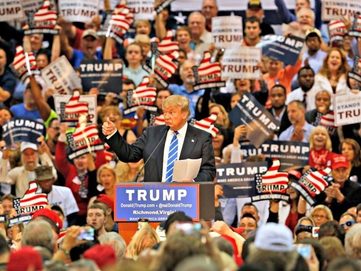
Exclusive — The Spirit of America: Conservative Grassroots Leaders Plan Massive Pro-Trump Demonstrations Nationwide
3by MATTHEW BOYLE 8 Feb 2017Washington, D.C.2,500 Conservative grassroots leaders are planning a series of massive pro-President Donald Trump rallies nationwide, Breitbart News has learned exclusively. On Feb. 27 and March 4, the rallies—dubbed the Spirit of America Rallies—will spring up nationwide in cities and towns across America. “These rallies are inclusive, non-partisan, and open to anyone supporting President Trump in his efforts to bring back manufacturing jobs to America, put the security of our nation ahead of political correctness, improve our infrastructure, revitalize the inner cities and secure our nation’s borders,” Debbie Dooley, a national co-founder of the Tea Party movement and a key organizer of the Spirit of America rallies, says in a press release obtained by Breitbart News ahead of its public release. Since President Trump’s election, during his time as president-elect and since his inauguration on Jan. 20, hardcore progressive leftists have been repeatedly protesting him in a sometimes violent manner. These rallies, organizers say, are meant to be a peaceful show of force from the “silent majority” that delivered Trump a landslide electoral college victory over failed Democratic president Hillary Rodham Clinton. Dooley told Breitbart News that since the anti-Trump women’s march in D.C. after the president’s inauguration, she has received so many calls from Trump supporters–including many, many women Trump supporters–urging her to organize a show of force among the silent majority nationwide in response–that she had to turn off her cell phone so she could get work done. The Spirit of America rallies are not Tea Party rallies, she adds, and she hopes that Democrat groups backing Trump–there were many of them nationwide, forming a collective called the “Trumpocrats”–will get involved and step up to help the president, too. She also notes that the selection of Feb. 27 as the kickoff date of these pro-Trump rallies is significant, since that was the first day of the Tea Party movement back in 2009. “I am proud to lead the charge here in Louisiana to get supporters of President Trump to show their support of his policy agenda through these Spirit of America rallies,” Col. Rob Maness, a retired Air Force colonel, founder of GatorPAC and two-time conservative Senate candidate in Louisiana who’s also involved in helping the rallies in his home state, added in the release. “Average citizens from across the political spectrum and all walks of life elected Mr. Trump and we at GatorPAC are especially pleased to help him with his national effort to Make America Great Again and #DrainTheSwamp priorities in Washington D.C.” Ralph King, an elector for President Trump from Ohio and the co-founder of Main Street Patriots, added that he believes “the American electorate spoke loud and clear this past November.” “These Spirit of America Rallies are a continuation of the collective voice of Americans that embrace President Trump’s policies to put the American workers and citizens first once again,” King said. Rallies are in the works in states as far-flung as Arizona, Georgia, Colorado, Indiana, Iowa, Louisiana, New Jersey, Ohio, South Carolina, and Washington state—as well as other states, organizers say. More information is available on the Spirit of America rallies website. ___________________________ 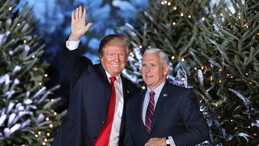 President-elect Donald Trump takes the stage with vice president-elect Mike Pence during a rally in Orlando, Fla., Friday night, Dec. 16, 2016. (Joe Burbank/Orlando Sentinel)
(Joe Burbank) President-elect Donald Trump takes the stage with vice president-elect Mike Pence during a rally in Orlando, Fla., Friday night, Dec. 16, 2016. (Joe Burbank/Orlando Sentinel)
(Joe Burbank)
Trump thanks Florida at Orlando rally
by Steven Lemongello Contact Reporter Donald Trump exulted in his victory before a crowd of more than 11,000 people in Orlando on Friday night, part of the president-elect’s “U.S.A. Thank You Tour” of states he won in November. Speaking on a cool evening on an outdoor stage filled with Christmas trees at the Central Florida Fairgrounds, Trump told the story of how he came to defeat Hillary Clinton on Election Night. “I’m here today for one main reason, to say ‘thank you’ to the incredible people of Florida,” Trump told the crowd, who chanted back “Thank you Trump” along with the usual “Lock her up” and “Drain the swamp.” “In many ways, Florida is my second home. In many ways, it's my first home,” Trump said. Trump joked about the crowd, saying that the fire marshal stopped letting people in because of worries about a “stampede.” “That’s pretty good when you can’t get into a field,” Trump said. “That’s how many people we have, they’re worried about a stampede. At least we know it’ll be a friendly stampede.” Orange County he lost by a wide margin and a city he lost be an even bigger marigin. Trump thanked Florida Gov. Rick Scott and Attorney General Pam Bondi for support as well, calling them “terrific people.” In Florida, “we did fantastically well with the African American community, we did fantastically well with the Hispanic community,” Trump said. “There’s a lot of people here tonight from the Indian community. Hindus, we did great with the Hindus. And we did well with women.” He said “America will also stand with the Cuban people in their long struggle for freedom. Their support has been unbelievable. The Cuban people. We know what we have to do, and we’ll do it. Don’t worry about it.” CAPTIONThe last 10 national anthem performances at presidential inaugurationsTrump spent much of the speech talking about about how the polls and news media did not think he would win, going into detail about how he found out about each of his state victories on Nov. 8. Trump said his voters were "great people, these are smart people, these are hardworking people. These are people who haven’t voted in a long time. But you know what? They saw, they heard … They came out, and [experts] had no clue what the hell happened." He also remarked on how the image of his rallies has changed. “You were nasty and mean and vicious, and you wanted to win,” he said. “Now, the same crowd … You’re laid back and mellow and basking in the glory of victory.” Trump also mentioned the attacks on Pulse nightclub in June, saying, "Let me keep this as clearly as I can: I am going to keep radical Islamic terrorists the hell out of our country." Pulse shooter Omar Mateen, however, was born in Queens. Trump pledged once again to suspend immigration from regions where immigrants "cannot be safely processed" through "extreme vetting." The president-elect also promised less foreign interventions. Instead of rebuilding foreign nations, it's time to rebuild our nation,” Trump said. “For too long we’ve been moving from one reckless intervention to another. Countries you have never even heard of before. It’s reckless and it’s going to stop.” His talk of foreign entanglements didn’t get a real cheer from the crowd, though, until he talked about Syrians – who he has said would no longer be allowed in the U.S. as refugees. “We’re not having them come over here, we’re going to build safe zones in Syria,” he said. “And we’re going to get the Gulf states to pay for the safe zones.” Trump also alluded to his previous comments about banning flag-burning, which has been criticized on First Amendment grounds. “I don’t like when I see people burning our flag,” he said. “I don’t like it and we’re going to try doing something about it.” The president-elect talked about bringing jobs back to America by revising trade deals and embarking on a $1 trillion rebuilding of the nation’s bridges, roads and other infrastructure. He said he would work for every American. “My message tonight is, we are all Americans, and we are all united by one shared destiny,’’ he said. Beforehand, supporters surrounded the outdoor stage at the fairgrounds as the sun set, waving “Women for Trump” and holding “Make Christmas Great Again” signs. “I’m thrilled with Trump’s approach to political correctness,” said Paul Zahl of Winter Garden. “The fact that it’s a ‘Merry Christmas’ thank you tour is enough to make me vote for the man.” “Plus,” he added, “It’s a hoot! It’s like a rock concert.” Aileen Milton, president of The Villages Tea Party, was there interviewing people for The Villages Conservative Media. Her husband, Tom, “just had a defibrillator put in. He hasn’t had his stitches taken out yet.” “Want to see the scars?” he asked. But Pam and Jim Oliver were there for Vice President-elect Mike Pence, their governor, who attended the rally as well. They were in Orlando on vacation from Indiana and decided at the last minute to come out and see him. Trump also was scheduled to be at a $5,000-a-plate Transition Finance Committee fundraiser at an undisclosed location in Orlando. Trump spokesman Christopher Harvin would not give any details beyond saying it was closed to media. A separate $35,000-a-plate fundraiser for the Republican National Committee was set for Orlando on Friday as well, reports said. The rally opened to the public just as news was reported that the FBI and director of national intelligence agreed with the CIA’s assessment that Russia interfered with the election by hacking the Democratic National Committee to help Trump. Trump has said he did not believe the CIA. Ron Garsky of The Villages said he did not believe the assessments, either. “I don’t think Russia had anything to do with any of it,” Garsky said. slemongello@orlandosentinel.com ___________________________ 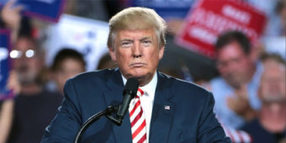 President-elect Donald Trump (Photo: Twitter) President-elect Donald Trump (Photo: Twitter)
SIGNS OF DIVINE INTERVENTION IN TRUMP VICTORY
Bachmann prayed with millions at crucial moment tide turned Published: 1 day ago GARTH KANT About | Email | Archive New York Times graph displaying “Chance of Winning Presidency” in real time WASHINGTON – Election eve 2016 began without any real sign of a gathering storm. No hint a popular revolt was brewing. In fact, just the opposite. The networks were reporting the mood in the inner circle of the Republican candidate was subdued, somber, tense, even foreboding – as if fearing the worst. In direct contrast, the mood in the camp of the Democratic Party presidential candidate was described as confident, expectant and already almost celebratory. Giddy. When the first polls closed on the East Coast and the first results began to come in, those moods seemed to be swiftly confirmed by reality. The pre-election polls were not wrong. Democratic Party nominee Hillary Clinton immediately took the lead. And she was winning in the battleground states. She was leading in Florida. She was leading in North Carolina. She was leading in Pennsylvania. She was leading in Ohio. Clinton was threatening to pull away and end the suspense early. Presidential election loser Democrat Hillary Clinton At 7 p.m., there was no sign of a popular uprising led by Republican presidential candidate Donald Trump. There was no sign at 8 p.m. There was still no sign as time inexorably marched on. Something would have to break. And then it did. Like a scene out of the film “It’s a Wonderful Life,” people had begun to pray. But not just in one small town. Across America. And around the world. Simple acts of faith heralded the first faint wisps of a breeze that would soon become a storm that would shake the world. It began in Jerusalem. Christians from many nations gathered in the heart of Israel to pray and fast for the fate of the United States. Americans knelt on stage as the faithful prayed. Organizers instructed them to pray like never before for a just God to deliver his most Christian nation. They called it the Jerusalem Global Gathering. Christians in Jerusalem pray for America Christians also gathered to pray for the nation outside the U.S. Capitol. As WND reported, pastor Dan Cummins of the small rural East Texas town of Bullard led prayers for a return to biblical principles. JoAnn and Dan Cummins lead prayers on election night in front of the U.S. Capitol And it was in Texas that the prayers for deliverance were sent around the world, using modern technology. A large prayer group had gathered in Dallas, hosted by Ken Copeland ministries. It was broadcast by the Daystar channel. Presenters David Barton and former Rep. Michele Bachmann, R-Minn., invited viewers to join in prayer. Daystar has a global reach of 400 million potential viewers. As they prayed, something began to stir. “At the precise moment we began broadcasting on Daystar,” Bachmann told WND, “as the polls were still open, and a national audience of believers joined together and prayed in concert, we literally saw the race break in favor of Trump.” “At that very minute.” She presented proof. “The New York Times documented the shift in voting from that minute.” Michele Bachmann on Donald Trump’s victory: ‘The Lord did this’ “The Times put out a timeline tracking the election results as they broke for Trump last night,” Bachmann continued. “We went wild in the Dallas studio last night when David Barton, Ken and Terri Copeland, and various pastors saw that the victory for Trump began exactly at the precise moment believers corporately, over national television, sought the Lord for His favor upon our nation.” “We knew it was at the exact same time that believers joined in corporate prayer on behalf of voting for a godly platform. Believers brought the Lord into this election, and that made all the difference,” added the devout believer. “That is the story of last night’s victory. I have no doubt. The strong right arm of a holy God heard the prayers of His people and graciously answered our prayers,” Bachmann reflected. “It truly explains the Trump victory. I have no doubt. No man can take the credit. Only the strong right arm of a merciful God.” President-elect Donald Trump giving his victory speech (Twitter) But that was in harmony with the “believers interceding on behalf of the American election last night in Jerusalem, praying in concert with those of us praying in America.” And there is no doubt someone was listening. In addition to the hundreds-of-millions of viewers within Daystar’s reach, the event drew about a million views online. Bachmann said there had been a genuine repentance and coordinated beseeching of God. She told WND, “We saw the effective fervent prayers of righteous believers availing much.” “And, prayers so specific,” she explained, “we prayed for elections by county and cities and districts. We literally watched results follow the faithful effectual prayers of righteous people who had humbled themselves and cried out to God for his mercy. This wasn’t credit for us; this was clearly the Lord’s gracious doing.” Bachmann proclaimed, “It is the story of the night and the biggest story of the year. I have no doubt.” “We were told more believers came out to vote in this election than ever before,” she reflected, and the numbers confirmed that. Trump benefited from the largest evangelical turnout in history. Exit polls showed that an overwhelming 80 percent of white evangelical voters (who made up 25 percent of all 2016 voters) supported Trump. Evangelicals of color preferred Clinton, but she did not get the same support from Hispanics and African-Americans as did President Obama. Polls also showed that Trump recaptured the Catholic vote for the GOP by a margin of 52 percent to 45 percent, after most of them voted for Obama in the two previous presidential elections. Bachmann said all of this “shows the necessity of believers voting for biblical principles in the voting booth.” Despite the victory, she concluded the work has just begun for the faithful, as well as the president-elect. “This is not the time for believers to celebrate and turn away from doing our part affecting our society with the salt and light found in the Bible.” “Now is the time,” she continued, “for pastors to preach biblically from America’s pulpits on the various issues we confront in America.” “This is a beginning for people of faith. It is an opportunity to share the gospel and educate people on the fundamental primacy of the foundation of western civilization: the Bible.” Donald Trump wins election to the White House (Photo: Twitter) So, what did happen around 8 p.m. Eastern time, when the Times indicated the odds favoring Trump began a dramatic turnaround in his favor? Did prayers sway the vote, or did they coincide with the moment the tabulations began to swing to Trump? Either way, there could be a case to be made that the Trump victory was not really the work of man, because man chose Clinton. She won the popular vote. Just as the polls predicted. But it was where those people voted that made all the difference. Providentially, perhaps, the shift toward Trump happened in the key swing states needed to push him over the top in the all-important Electoral College. From that perspective, Trump’s victory might indeed be seen, even by the skeptical, as less the work of man, and more of an act of God. Thessalonians 4:16: “For the Lord himself shall descend from heaven with a shout, with the voice of the archangel, and with the trump of God.” Read more at _________________________ 
AMERICAN UPRISING
Everything is about to change. November 9, 2016 Daniel Greenfield Daniel Greenfield, a Shillman Journalism Fellow at the Freedom Center, is a New York writer focusing on radical Islam. This wasn’t an election. It was a revolution. It’s midnight in America. The day before fifty million Americans got up and stood in front of the great iron wheel that had been grinding them down. They stood there even though the media told them it was useless. They took their stand even while all the chattering classes laughed and taunted them. They were fathers who couldn’t feed their families anymore. They were mothers who couldn’t afford health care. They were workers whose jobs had been sold off to foreign countries. They were sons who didn’t see a future for themselves. They were daughters afraid of being murdered by the “unaccompanied minors” flooding into their towns. They took a deep breath and they stood. They held up their hands and the great iron wheel stopped. The Great Blue Wall crumbled. The impossible states fell one by one. Ohio. Wisconsin. Pennsylvania. Iowa. The white working class that had been overlooked and trampled on for so long got to its feet. It rose up against its oppressors and the rest of the nation, from coast to coast, rose up with it. They fought back against their jobs being shipped overseas while their towns filled with migrants that got everything while they got nothing. They fought back against a system in which they could go to jail for a trifle while the elites could violate the law and still stroll through a presidential election. They fought back against being told that they had to watch what they say. They fought back against being held in contempt because they wanted to work for a living and take care of their families. They fought and they won. This wasn’t a vote. It was an uprising. Like the ordinary men chipping away at the Berlin Wall, they tore down an unnatural thing that had towered over them. And as they watched it fall, they marveled at how weak and fragile it had always been. And how much stronger they were than they had ever known. Who were these people? They were leftovers and flyover country. They didn’t have bachelor degrees and had never set foot in a Starbucks. They were the white working class. They didn’t talk right or think right. They had the wrong ideas, the wrong clothes and the ridiculous idea that they still mattered. They were wrong about everything. Illegal immigration? Everyone knew it was here to stay. Black Lives Matter? The new civil rights movement. Manufacturing? As dead as the dodo. Banning Muslims? What kind of bigot even thinks that way? Love wins. Marriage loses. The future belongs to the urban metrosexual and his dot com, not the guy who used to have a good job before it went to China or Mexico. They couldn’t change anything. A thousand politicians and pundits had talked of getting them to adapt to the inevitable future. Instead they got in their pickup trucks and drove out to vote. And they changed everything. Barack Hussein Obama boasted that he had changed America. A billion regulations, a million immigrants, a hundred thousand lies and it was no longer your America. It was his. He was JFK and FDR rolled into one. He told us that his version of history was right and inevitable. And they voted and left him in the dust. They walked past him and they didn’t listen. He had come to campaign to where they still cling to their guns and their bibles. He came to plead for his legacy. And America said, “No.” Fifty millions Americans repudiated him. They repudiated the Obamas and the Clintons. They ignored the celebrities. They paid no attention to the media. They voted because they believed in the impossible. And their dedication made the impossible happen. Americans were told that walls couldn’t be built and factories couldn’t be opened. That treaties couldn’t be unsigned and wars couldn’t be won. It was impossible to ban Muslim terrorists from coming to America or to deport the illegal aliens turning towns and cities into gangland territories. It was all impossible. And fifty million Americans did the impossible. They turned the world upside down. It’s midnight in America. CNN is weeping. MSNBC is wailing. ABC calls it a tantrum. NBC damns it. It wasn’t supposed to happen. The same machine that crushed the American people for two straight terms, the mass of government, corporations and non-profits that ran the country, was set to win. Instead the people stood in front of the machine. They blocked it with their bodies. They went to vote even though the polls told them it was useless. They mailed in their absentee ballots even while Hillary Clinton was planning her fireworks victory celebration. They looked at the empty factories and barren farms. They drove through the early cold. They waited in line. They came home to their children to tell them that they had done their best for their future. They bet on America. And they won. They won improbably. And they won amazingly. They were tired of ObamaCare. They were tired of unemployment. They were tired of being lied to. They were tired of watching their sons come back in coffins to protect some Muslim country. They were tired of being called racists and homophobes. They were tired of seeing their America disappear. And they stood up and fought back. This was their last hope. Their last chance to be heard. Watch this video. See ten ways John Oliver destroyed Donald Trump. Here’s three ways Samantha Bee broke the internet by taunting Trump supporters. These three minutes of Stephen Colbert talking about how stupid Trump is owns the internet. Watch Madonna curse out Trump supporters. Watch Katy Perry. Watch Miley Cyrus. Watch Robert Downey Jr. Watch Beyonce campaign with Hillary. Watch. Click. Watch fifty million Americans take back their country. The media had the election wrong all along. This wasn’t about personalities. It was about the impersonal. It was about fifty million people whose names no one except a server will ever know fighting back. It was about the homeless woman guarding Trump’s star. It was about the lost Democrats searching for someone to represent them in Ohio and Pennsylvania. It was about the union men who nodded along when the organizers told them how to vote, but who refused to sell out their futures. No one will ever interview all those men and women. We will never see all their faces. But they are us and we are them. They came to the aid of a nation in peril. They did what real Americans have always done. They did the impossible. America is a nation of impossibilities. We exist because our forefathers did not take no for an answer. Not from kings or tyrants. Not from the elites who told them that it couldn’t be done. The day when we stop being able to pull of the impossible is the day that America will cease to exist. Today is not that day. Today fifty million Americans did the impossible. Midnight has passed. A new day has come. And everything is about to change. __________________________ |
Trump announces US is withdrawing from UN Arms Trade Treaty during speech before the NRA
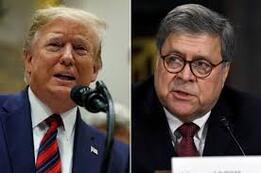
Trump gives AG Barr authority to declassify documents related to 2016 campaign surveillance
By Talia Kaplan, Mike Arroyo | Fox News Trump orders declassification of intelligence related to campaign spyingPresident Trump on Thursday night issued a memo giving Attorney General William Barrthe authority to declassify any documents related to surveillance of the Trump campaign in 2016. Trump also ordered the intelligence community to cooperate with Barr. The memo read: "The heads of elements of the intelligence community... and the heads of each department or agency that includes an element of the intelligence community shall promptly provide such assistance and information as the Attorney General may request in connection with that review." "Today, at the request and recommendation of the Attorney General of the United States, President Donald J. Trump directed the intelligence community to quickly and fully cooperate with the Attorney General’s investigation into surveillance activities during the 2016 Presidential election," White House press secretary Sarah Sanders said in a statement. Sarah Sanders✔@PressSecStatement on Presidential Memorandum signed tonight 9,814 8:21 PM - May 23, 2019 "The Attorney General has also been delegated full and complete authority to declassify information pertaining to this investigation, in accordance with the long-established standards for handling classified information. Today’s action will help ensure that all Americans learn the truth about the events that occurred, and the actions that were taken, during the last Presidential election and will restore confidence in our public institutions." BARR HAMMERED FOR STATING 'SPYING DID OCCUR,' DESPITE CONFIRMATION OF TRUMP TEAM SURVEILLANCE Trump claims his campaign was the victim of "spying," though the intelligence community has insisted it acted lawfully in following leads in the Russia investigation. Last month, Barr ran into a buzz saw of criticism from Democratic lawmakers and media figures for testifying that “spying did occur” against the Trump campaign in 2016. But despite the backlash, Barr appeared to be referring to intelligence collection that already has been widely reported and confirmed. Foreign Intelligence Surveillance Act (FISA) warrants against former Trump campaign aide Carter Page are currently the subject of a Justice Department inspector general investigation looking at potential misconduct in the issuance of those warrants. That review also reportedly is scrutinizing the role of an FBI informant who had contacts with Trump advisers in the early stages of the Russia investigation. VideoThe use of the term "spying" as it applies to the FBI's surveillance in 2016 has been fiercely disputed. The New York Times, even as it reported last year on how the FBI sent an informant to speak to campaign advisers amid concerns about suspicious Russia contacts, stated that this was to "investigate" Russia ties and "not to spy." DEMS RAGE AGAINST BARR FOR BACKING CLAIMS OF TRUMP CAMPAIGN 'SPYING' BY FBI “I think spying did occur. The question is whether it was adequately predicated,” Barr testified last month, adding that he believed it is his “obligation” to review whether there was misconduct in the original investigation. “Congress is usually very concerned with intelligence agencies and law enforcement agencies staying in their proper lane.” He added that “spying on a political campaign is a big deal.” President Trump backed the attorney general's testimony, saying the same day Barr testified last month that he thinks what Barr said "was absolutely true," adding, "There was absolutely spying into my campaign.” Democrats, though, charged that the testimony indicated Barr was a compromised witness. House Speaker Nancy Pelosi, D-Calif., told The Associated Press last month that she doesn’t “trust Barr,” but she trusts Special Counsel Robert Mueller. Senate Minority Leader Chuck Schumer, D-N.Y., accused Barr of “peddling conspiracy theories.” Fox News' John Roberts, Brooke Singman and The Associated Press contributed to this report. ___________________________ 
Feb 15, 2019
President Trump declares National Emergency To Protect our Borders against Drug Cartels, Gangs, Human Trafficking and Illegal Aliens entering our country. Congress Has Failed Once Again to provide the necessary funds and resources to protect America and it's citizens. ___________________________ International best-selling author, journalist and counter-intelligence expert Daniel Estulin contends, “First thing you’ve got to understand is you’ve got to back Trump. Trump is not a person. I am not a card carrying Republican. People have to understand that our only way out of this is to make sure Donald Trump actually stays President of the United States because the entire welfare of Russia and everywhere else depends on the non-liberal crowd winning. The second point I want to make is make sure you have physical gold and silver.” Join Greg Hunter as he goes One-on-One with best-selling author Daniel Estulin to talk about his latest book “In the Shadows of a Presidency.”
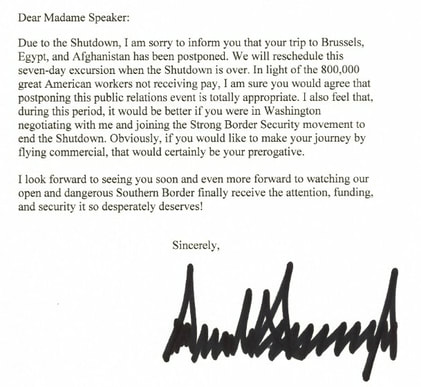
Trump, en route to border, ramps up warning he could declare national emergency
President Trump takes questions from reporters before his departrure to the southern border in McAllen, Texas Trump says he has the absolute right to declare a national emergency over border wall. President Trump, as he left the White House Thursday for a visit to the U.S.-Mexico border, escalated his warnings that he could declare a national emergency to pursue his long-promised wall if he cannot reach a deal with Congress to fund border security and resolve the partial government shutdown. The president told reporters on the White House lawn that he has an “absolute right” to declare a national emergency, as the government enters day 20 of the partial shutdown. “I have the absolute right to declare a national emergency, the lawyers have so advised me,” Trump said. “I’m not prepared to do that yet, but if I have to, I will.” He added: “If this doesn’t work out, probably, I will do it. I would almost say, definitely. This is a national emergency. ... If we don’t make a deal, I would say it would be very surprising to me that I would not declare a national emergency.” The president repeatedly has threatened to declare an emergency and may use the visit to the border Thursday as part of his decision-making process. The National Emergencies Act grants the president broad authority to declare emergencies, though such a declaration would almost certainly face legal challenges. But the president maintained he would rather come to an agreement with Democrats -- despite a meeting with Democrats a day earlier ending abruptly when he walked out upon House Speaker Nancy Pelosi's refusal to support wall funding. “Either we’ll win or make a compromise. I’m okay to make a compromise—compromise is in my vocabulary very strongly,” Trump said. “I think a compromise is a win for everybody, otherwise, I can declare a national emergency.” TRUMP SAYS HE HAS 'ABSOLUTE RIGHT' TO DECLARE NATIONAL EMERGENCY OVER BORDER SECURITY He went on to say Democrats have been “taken over by a group of young people, some of them, I’ve been watching, I actually think they’re crazy.” Apparently referencing freshman Democratic lawmakers who have been vocal about their progressive policy goals, he said, “They have been taken over by a group of people that don’t care about gangs, human trafficking and drugs. They don’t care about anything. I’ll tell you what, they have gone crazy.” Meanwhile, Trump has continued to face criticism for going to Congress for money to construct a border wall, even though he repeatedly promised during his 2016 presidential campaign that Mexico would pay for it. Addressing that controversy on Thursday, he said: "I never meant they were going to write a check. ... When I said Mexico will pay for the wall in front of thousands and thousands of people, obviously they're not going to write a check." Instead, Trump claimed that through the new United States-Mexico-Canada Agreement (USMCA), which he called "incredible," Mexico would "indirectly pay for the wall." The deal, though, has not been passed in Congress. The president’s comments came as he departed the White House for a trip to the border with Homeland Security Secretary Kirstjen Nielsen, acting White House Chief of Staff Mick Mulvaney and senior adviser and son-in-law Jared Kushner. Democrats decried the trip. “This isn’t leadership; it’s chaos," Democratic National Commitee Chairman Tom Perez said in a statement. "800,000 workers remain furloughed or working without pay ... The American people are demanding an end to the Trump Shutdown. The House has already passed bipartisan legislation to end the Trump Shutdown, and Democrats are ready to pass legislation to fund common-sense, effective border security. The president should cancel his publicity stunt, stay in Washington, and end the shutdown crisis he created.” The government partially ran out of funding on Dec. 22, forcing hundreds of thousands of federal workers and contractors to work without pay, or simply stay home. Since then, Republicans and Democrats have been in a stalemate over border security. The president requested $5.7 billion to build the wall along the U.S.-Mexico border, but Democrats have vowed to block the request. Last week, House Democrats passed a bill to fund the Department of Homeland Security, which oversees construction of the wall, at current levels through Feb. 8, with a $1.3 billion for border security—a figure far less than Trump requested. Senate Republicans, so far, have not taken it up. TRUMP SET TO VISIT SOUTHERN BORDER IN TEXAS, AS FEDERAL SHUTDOWN CONTINUES Trump and administration officials have had several meetings with Democrats in recent days. On Wednesday, Trump walked out of the meeting with Pelosi and Senate Minority Leader Chuck Schumer, D-N.Y., who said Trump had a “temper tantrum.” Trump rejected the account, while acknowledging he walked out. He tweeted Thursday morning that “Cryin’ Chuck” Schumer “told his favorite lie when he used his standard sound bite that I ‘slammed the table & walked out of the room. He had a temper tantrum.’ Because I knew he would say that, and after Nancy said no to proper border security, I politely said bye-bye and left, no slamming!” CLICK HERE TO GET THE FOX NEWS APP He told reporters on Thursday: “I didn’t have a temper tantrum, I didn’t smash the table. … I should have.” __________________________ President Trump Meets with the Senate Minority Leader and House Speaker Designate
_________________________ 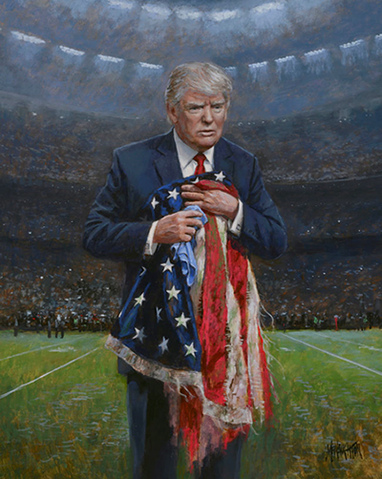
New Portrait Of Trump Driving Liberals MAD(ER)
Mar 23, 2018 Read More Articles by Rev. Austin Miles Frequent contributor to this column, Lawrence Craig sent us this note and portrait which affected this writer deeply, and included this note: “I LOVE THIS PAINTING OF SIR DONALD OUR COMMANDER IN CHIEF AND PATRIOT TRUMP PICKING UP OUR FLAG, HOLDING IT TO HIS HEART WITH SUPREME LOVE AND DETERMINATION ON HIS FACE, GENTLY WIPING THE SEDIMENT OF WAR FROM HER STARS AND STRIPES, SO SHE, WHILE WOUNDED, CAN CONTINUE TO BE OUR GALLANT SYMBOL OF LIBERTY, PRIDE AND FREEDOM AS WE THE PEOPLE UNITED WITH OUR PRESIDENT STRIVE TO DEFEAT THE PLAGUE OF COMMUNISM SEEKING TO ENGULF US AND ALL FUTURE GENERATIONS.” Mr. Craig could not have described this painting better. I personally felt a lump in my own throat when seeing it, due to the gratitude I felt for Mr. Trump for putting his own wealthy life on hold to dive into the mess America has become due to a faulty steering wheel, which he will fix. Embrace this portrait with your eyes and THINK how fortunate we are that God sent him to us. The gifted artist who created this image of President Trump, Jon McNaughton, was inspired by the NFL’s ugly protests against the American Flag when The National Anthem is played before their games, the very flag under which they all became famous multi- millionaires. Strange protests indeed. Nuts if one wishes to be precise. This is what led portrait artist Jon McNaughton to place his subject in the middle of a football field, titling the work, “Respect the Flag.” The love and respect President Trump’s face and body posture displays as he clutches the American Flag over his heart says it all. The reception of this portrait was hugely embraced by the public The only protests against this portrait is from the Democrat-Communists, defined as ‘dead from the head.’ They only want to tear down anything of beauty, passion and patriotism. They produce gloom wherever they gather, attack people and slander anyone in the news. They want every American to be just like them and want America to become a third world progressive dictatorship So let us examine what the opposite kind of “art” would look like from a Democrat Communist. Here’s that headline: HOLLYWOOD Actor ATTACKS Sarah Huckabee Sanders via Democrat”art”(?) It is pathetic to see one pretend have talent such as being an actor or entertainer or even an artist even though they have no talent. Yet they are all over the place. We now put the spotlight on alleged movie actor Jim Carrey, who fancies himself as an artist and proceeded to paint a portrait of The President’s Press Secretary, Sarah Huckabee Sanders and had it published for the world to see. That horrfic political painting was a deliberate insult because she is a conservative. Why would Carrey do this to a very respected and kind woman? Simple. Carrey is a Hollywierd Democrat, and Ms. Sanders is a Conservative with a conservative father, Michael Huckabee. Unlike the REAL artist, Jon McNaughton, who painted the portrait of President Trump, which was his intention, Carrey’s work was created to insult his subjects making them look like angry constipated zombies. How dare the totally untalented Carrey portray Ms. Sanders in such a degrading manner! How dare he? Ms. Sanders is absolutely the best, most knowledgeable, efficient, press secretary in history. She is a gracious young woman who does her homework and is always thoroughly prepared. She looks good, dresses properly and inherited her father’s manners and decorum. So, forget anything Jim Carrey does. His movies have long ago been forgotten. This “sick painting by him is only in the news since a REAL artist was recognized after painting a very beautiful, accurate, and right on target portrait of the most powerful man on earth which is rightfully getting all the attention. RECOMMENDED. Go to the facebook page for artist Jon McNaughton and order a copy of his painting. That is the way to fight back and support a great artist who is also a patriot. You can also find that trashy “portrait” that Jim Carrey did of Ms. Sanders. So there dear readers, we have exhibited a tutorial of how conservatives and leftists differ, whatever they do. ANALYZING TODAY’S NEWS FOR TOMORROW’S HISTORY © 2018 Austin Miles – All Rights Reserved E-Mail Austin Miles: chaplainmiles@aol.com 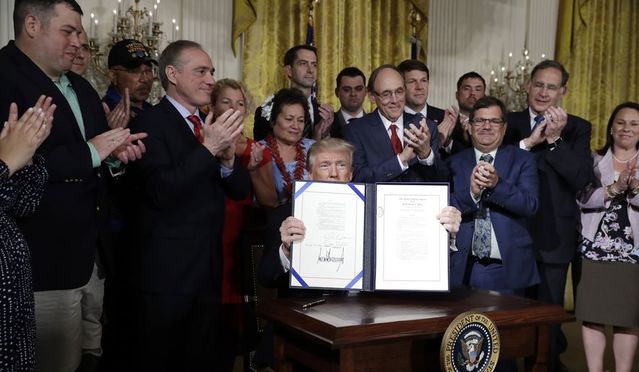 President Donald Trump displays the “Department of Veterans Affairs Accountability and Whistleblower Protection Act of 2017” after signing in the East Room of the White House, Friday, June 23, 2017, in Washington, as Secretary of Veteran Affairs David Shulkin and ... more > President Donald Trump displays the “Department of Veterans Affairs Accountability and Whistleblower Protection Act of 2017” after signing in the East Room of the White House, Friday, June 23, 2017, in Washington, as Secretary of Veteran Affairs David Shulkin and ... more >
Trump signs VA accountability act into law, promises better care for veterans
By Dave Boyer - The Washington Times - Friday, June 23, 2017 President Trump signed a law Friday that makes it easier for the Department of Veterans Affairs to fire employees for wrongdoing and adds protections for whistleblowers in the VA. Responding to an Obama-era scandal in which veterans died waiting for doctor’s appointments, Mr. Trump said the Department of Veterans Affairs Accountability and Whistleblower Protection Act of 2017 will “make sure that the scandal we suffered so recently never, ever happens again.” “What happened was a national disgrace, and yet some of the employees involved remained on the payrolls,” Mr. Trump said. “Our veterans have fulfilled their duty to this nation, and now we must fulfill our duty to them.” The president signed the bill into law in the East Room, at a White House ceremony attended by dozens of veterans, family members and lawmakers. Among them was retired Army Sgt. Michael Verardo of North Carolina, who lost two limbs in 2010 when he stepped on an improvised explosive device in Afghanistan. Mr. Verardo said he was prepared when he enlisted for injury or death. But when he returned home, he had to wait 57 days for the VA to fix his prosthetic leg, and more than three years for the agency to modify his home so he could safely live there. “What I was not prepared for was coming home to a broken VA system,” Mr. Verardo told the audience. “Today is a new day. This administration has fulfilled its promise that the veteran is empowered and the veteran is in charge of his or her own care.” The law had bipartisan support in Congress but faced opposition from unions representing VA employees, who warned that the new provisions could make it easier for management to retaliate against employees for political reasons. VA Secretary David Shulkin cited the examples of a VA employee who kept her job after three convictions for drunken driving, and another who was watching pornography while treating a patient. He said the law “is going to make it easier and quicker for us to hold our employees accountable.” “Veterans deserve a VA they can trust and take pride in,” Mr. Shulkin said. “Employees who act contrary to our core values erode that trust.” The president, referring to unions’ opposition, said “this was not an easy one.” “We got it done. It’s a reform that I campaigned on, and now I am thrilled to be able to sign that promise into law,” Mr. Trump said. The VA is the government’s second-largest Cabinet agency, with approximately 350,000 employees. Mr. Shulkin has complained that the current disciplinary process has averaged 51 days to remove an employee, primarily due to a 30-day notice period.The law cuts the 30-day notice to 10 days and speeds up the appeal process. It also lowers the evidentiary standards required to fire an employee, and allows the VA secretary to rescind employee bonuses and relocation expenses in some cases. House Majority Leader Kevin McCarthy, California Republican, said the VA’s mission has been “put at risk by the continued corruption, incompetence, and scandal of a few bad employees.” “With President Trump’s signature today, the VA Accountability Act will give the Secretary of Veterans Affairs the authority to remove bad VA employees and hire the best personnel to fulfill the promise we made as a nation to provide for the health and well-being of our veterans,” he said. ___________________________ 
STUDY REVEALS HOW MUCH TRUMP HAS SAVED TAXPAYERS IN JUST 3 MONTHS, AND IT’S BLOWING MINDS…
April 21, 2017 by Michael Lee Shortly after Donald Trump won the 2016 election, markets started an historic rally. Of course, the surge in economic optimism was for good reason. On the campaign trail, Trump promised vital economic changes like tax and regulatory reform. Not only that, as one of the most successful businessmen in the world, Trump understood exactly what economic climate businesses needed to thrive. Since taking office, none of this has changed. Trump’s inauguration day brought another surge of market optimism, leading to one of the best job growth quarters in a generation. He also immediately went to work on his economic agenda, slashing burdensome regulations crippling our economy. Needless to say, liberals have opposed Trump’s agenda every step of the way. However, they might want to rethink their opposition after a new study revealed that Trump’s economic policies are already having a huge impact. From The Hill: President Trump has saved taxpayers more than $86 billion in regulatory costs during his first three months in the White House, according to a new study from a conservative group. The American Action Forum (AAF) points to several Obama-era regulations that Trump has either rolled back on his own or with the help of Republican lawmakers using the Congressional Review Act (CRA). In just a short time in office, Trump has been on what some have called a “deregulation binge.” Clearly, no stone is being left unturned by the new administration: This includes the Education Department’s school accountability standards, the Environmental Protection Agency’s waters of the United States rule and the so-called “blacklisting” rule for government contractors. These are just a few examples mentioned in the report. Since taking office, Trump and Congress have repealed 13 rules with the CRA. The CRA allows lawmakers to overturn recent rules they disapprove of with a simple majority in Congress, and send the action to the president for his signature. This is great news for an economy hampered by eight years of overbearing government. In just a few months, President Trump has dismantled a large chunk of burdensome Obama-era regulations, resulting in a boom for the economy and the taxpayer. What’s better is that all of this has been done in a relatively short amount of time. With over three years remaining in his term, Trump shows no signs of slowing down on slashing regulations. How much money taxpayers will save when all is said and done is anyone’s guess. Source: Allen West __________________________ 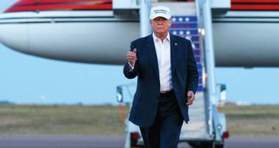
Trump: Why He Won
by Selwyn Duke Trump won because he promised to defeat the globalists’ vision, which is eroding in the face of populist calls to protect borders, jobs, and cultures, but they won’t give up without a fight — if ever. “They hear the shouts of the peasants from over the hill. All the knights and barons will be riding into the castle pulling up the drawbridge in a minute. All the peasants are coming with pitchforks!” said Pat Buchanan in Nashua, New Hampshire, while waging his insurgent 1992 campaign for the White House. Today, almost a quarter century after pugnacious Pat’s first presidential run, the castle walls have finally been breached by a peasant army that has made Donald Trump the 45th president of these United States. Love him or hate him, fancy him snake-oil salesman or sincere, there is no question Trump has ridden the anti-establishment wave that in a generation has gone from ripple to tsunami. It’s also plain that he has said many of the correct things, inveighing illegal migration, raw-deal trade deals such as the TTP, internationalism, the media, and the rest of the establishment and its favored social code, political correctness. Lastly, there’s no doubt the establishment resolutely arrayed its forces against Trump, with even many members of his own party disavowing him. As The New American’s William F. Jasper wrote in August, “Hedge fund billionaires, Wall Street mega-bankers, Hollywood movie moguls, RINOs (Republicans In Name Only), ultra-Left ‘Progressive’ Democrats, and Big Media journalistas have all ganged up on one man. Together with an AstroTurf army of neocon pundits, radical academics, student activists, and street agitators funded by the Big Foundations and Big Government, they have united to stop that one man: Donald J. Trump.” And as TNA’s Alex Newman pointed out online November 10, the mood at the United Nations is “souring” because that man could not be stopped. He wrote, “Some foreign dictatorships, including the Chinese Communist regime, are also fretting, as are globalist UN subsidiary organizations such as NATO.” Trump “has all the right enemies,” TNA editor Gary Benoit told me recently — and, we may add, many of the right friends. One of the enemies, French ambassador to the United States Gerard Araud, plaintively tweeted that with Brexit and November’s election, “A world is collapsing before our eyes.” Upsetting the Status Quo A scheme is collapsing, is more like it. For Araud meant his world. As Trump friend Nigel Farage, interim leader of the U.K. Independence Party, told Time on November 9, the previous day’s earth-shaking results were “Brexit times three.” He elaborated, “It is a bigger country, it is a bigger position, it is a bigger event.... Brexit was the first brick that was knocked out of the establishment wall. A lot more were knocked out last night.” Other bricks lie in the cross hairs, too. Not only has this anti-establishment movement been percolating for decades, but it’s now a roiling-boil, Europe-wide phenomenon, manifesting itself also in Italy’s Five Star Movement, Marine Le Pen’s National Front in France, Geert Wilders’ Party for Freedom in the Netherlands, Poland’s ruling Law and Justice Party, and Hungary’s Prime Minister Viktor Orbán. And triumphant, the most optimistic observers may echo Orbán, who said November 10 that Trump’s victory marks an end of a two-decade period of Western “liberal non-democracy.” The more pessimistic warn that he’s too much of a deal-maker to be an establishment-breaker. Regardless, however, his election is seismically historic. The New York Times noted November 9 that for “the first time since before World War II, Americans chose a president who promised to reverse the internationalism practiced by predecessors of both parties and to build walls both physical and metaphorical. Mr. Trump’s win foreshadowed an America more focused on its own affairs while leaving the world to take care of itself.” Yet even this doesn’t fully tell the tale. The election season also saw the rise of Vermont Senator Bernie Sanders, a wizened old socialist who’d long wallowed in relative obscurity (by senators’ standards), and between his legions and Trump’s supporters, a majority of the electorate signaled they wanted fundamental change — just not the type Barack Obama has been dishing out. Moreover, where conventional wisdom was that only those who’d been governors and senators (and perhaps highly successful generals) could become president, Trump became the first to win the White House without ever having been in office or the military. Striking. It cannot be overemphasized that what Trump represents is more important than what he is. As Democrat pollster Patrick Caddell put it in an election-eve November 7 piece entitled “The real election surprise? The uprising of the American people”: Bernie Sanders and Donald Trump, sucked from the same trough even if it was from opposite ends. But the critical point that is missed, by almost everyone, was that neither Sanders nor Trump created this uprising. They were chosen vehicles — they did not create these movements, these movements created them. In less than a day we will know how far this revolt has come. But, make no mistake, whatever the outcome, this revolt is not ending, it is merely beginning. Trump tapped into this phenomenon masterfully. Note that any of the other primary-season GOP candidates could have done so. But they either didn’t believe in the movement (paging Governor John Kasich) or, and this is most significant, were afraid of the poltroonish patroons of political correctness; they lost sight of what Ronald Reagan called the difference “between critics and box office.” After all, one of the characteristics of the establishment is that it’s a rarefied realm in which political correctness reigns; consequently, even the good people within it can mistake pseudo-elite swill for popular will. Oh, this doesn’t mean political correctness has no sting, as it can and does destroy careers. But this is only because of establishment power — the very thing against which many Trump voters rebelled. The average person is not politically correct (PC) in a doctrinaire fashion; in other words, he might, regrettably, have been instilled with the false PC suppositions woven seamlessly into our culture, but he doesn’t subscribe to “cutting edge” PC notions, such as that a man is a woman merely because he claims he is. To provide another example, agree with the idea or not, relatively few Americans are actually “offended” by a proposal to halt Muslim immigration. People also instinctively recoil at Orwellian lexical tyranny. When Trump said that Mexico was sending rapists and drug couriers across our border, that it’s “freezing and snowing in New York — we need global warming!” and that our “great African American President hasn’t exactly had a positive impact on the thugs … destroying Baltimore,” those weren’t the measured words of a Machiavellian politician. But that is how, when he lets his hair down, the average person speaks. Most Americans are sick and tired of an oppressive, lie-based social code telling them how to walk and talk and act and think. And November 8 was not just a rebellion against establishment lies, but also its language. Yet there’s far more to Trump’s anti-establishment victory. In his September Politico piece, “Trump Is Pat Buchanan With Better Timing,” journalist Jeff Greenfield writes, “To a remarkable extent, just about all of the themes of Trump’s campaign can be found in Buchanan’s insurgent primary run a quarter-century ago: the grievances … the dark portrait of a nation whose culture and sovereignty are threatened from without and within; the sense that the elites of both parties have turned their backs on hard-working[,] loyal, traditional Americans.” Pundit and former Reagan speechwriter Peggy Noonan has called this the rebellion of the “unprotected” against the “protected,” the former of whom actually have to live with the problems the latter create, such as illegal-alien invasions. But why did Trump succeed where Buchanan failed? Of course, we have to mention Trump’s deep pockets and celebrity status, which gave him media exposure, both offered and bought, that almost no one else could match. Yet as Greenfield pointed out, an overriding reason is that the times have indeed changed. When Buchanan warned of globalism and intervention, the successful Gulf War and the Christmas Day 1991 collapse of the Soviet Union weakened that argument. If there really was a “new world order,” America was unquestionably in charge. Today, with memories of the disastrous second Iraq War, China rising and Russia asserting itself again, anti-interventionism is a lot stronger argument. Immigration, too, is an issue far more powerful today. “Back then, there were maybe 3-4 million illegal immigrants,” Buchanan says. “Today, there are maybe 12 million.” [Note, there could be far more.] … [Moreover,] the central American promise — that our children would live better than we live — has been thrown into grave doubt, at least for those who are part of “the white working class.” Some 5 million manufacturing jobs have been lost since the start of the millennium; incomes for the average factory worker have been stagnant for just about all of the 21st century. “Those issues started maturing,” Buchanan now says. “Now we’ve lost 55,000 factories.... When those consequences came rolling in, all of a sudden you’ve got an angry country. We were out there warning what was coming. Now, on trade and intervention, America sees what’s come.” And what’s gone. Greenfield also makes the point that widespread Internet and social media allow us to reach countless millions, continually, at a button’s touch. This enables the more rapid spread of bad movements, such as the disastrous “Arab Spring,” and of good ones, such as what many are hoping will be a Western Spring. And it’s just common sense: If people’s only conduit of information is the establishment media — as once was the case — it’s no surprise when they vote for establishment candidates. As with a computer, it’s garbage in, garbage out. Fundamental Beliefs Yet the change in civilization is far more fundamental than even the above indicates. Beating around the edges of this phenomenon but blinded by his own biases, New Republic senior editor Jeet Heer addressed the matter in June, taking a few swipes at The John Birch Society in the process. Said he, “Conspiracy theories were long relegated to the fringes of American history, but … with Trump triumphant, we have to see the Birch Society and its style of conspiracy-mongering in a new light. Far from belonging merely to the lunatic fringe, the Birchers were important precursors to what is now the governing ideology of the Republican Party: Trumpism. Bircherism is now, with Trump, flourishing in an entirely new way. Far from being drummed out of conservatism, it has become the dominant strain.” Of course, Heer ignores that what defines the JBS more than anything else is constitutionalism. On this count it should be noted that Trump is not a constitutionalist, such as Ron Paul, nor is he a “conservative” in the Reagan or Buchanan mold. He didn’t repeatedly inveigh against big government on the campaign trail or warn of a “culture war”; he doesn’t speak of our moral crisis even though we’re sliding toward Sodom and all our man-caused problems are, at bottom, moral ones. Whatever he believes, he’s a master of marketing who exploited what resonated with today’s electorate. Yet Heer is getting at a real phenomenon, so it’s worthwhile to explain it better than he understands it. He speaks of a “paranoid style” of American politics, originated by the JBS but now mainstream, as he writes, among other things, about Trump’s warnings regarding Muslim immigration. Yet as the saying goes, “It’s not paranoia when they really are out to get you.” Asserting that internationalist statists all across the West are using im/migration to engage in demographic warfare and invade their own nations with socialist-minded (and sometimes jihadist-minded), largely unassimilable individuals who will eventually become citizens is not paranoia. Saying they do this for the dual purpose of overwhelming the votes of traditionalist-minded Westerners and breaking down national cohesiveness and sovereignty is not paranoia. And stating that a percentage of today’s impossible-to-vet Muslim migrants are or will become jihadists is not paranoia. These are facts. Yet as with anything else, there are rational conspiracy beliefs and nutty ones. Today America is replete with both, partially because of man’s and the Internet’s natures and for another reason: Distrust in America’s institutions abounds. According to Gallup, the percentage of Americans saying they have a “great deal” or “quite a lot” of confidence in various institutions is as follows: the church or organized religion, 41 percent; the medical system, 39; the presidency and the Supreme Court, 36; government schools, 30; banks, 27; organized labor and the criminal-justice system, 23; TV news, 21; newspapers, 20; big business, 18; and Congress is the caboose at six percent. This cynicism is matched, not surprisingly, by pessimism. Pat Caddell reported on a study by his Armada group called the “Candidate Smith” project, which found that “American politics has entered an historic paradigm” defined by three overriding beliefs: Unlike earlier generations, a great majority of citizens today say their children will be worse off than they are. Eighty-four percent believe (rightly) that different rules apply to the rich and well-connected, with only 10 percent believing everyone has an equal opportunity (in fairness, there has never been a time or place in which the “in” crowd didn’t have advantages; it’s only a matter of degree). And tellingly, 70 percent of Americans believe our country is in actual decline. Given this, it’s no surprise a candidate with the slogan “Make America Great Again” would find success. Caddell points out that you’d get very different responses if you asked the pseudo-elite establishment types, who live their lives of silk and satin, about the above matters. This is true, too — with perhaps one notable exception: Donald J. Trump. An accompanying theme of Trump’s campaign was that America was “losing” at every turn because she’s governed by losers. This bold assertion made Trump a “Traitor to His Class,” as Weekly Standard writer Julius Krein put it in a brilliant September 2015 article by that very name. In this time where the pseudo-elite norm is aggressive internationalism — or, as informed “deplorables” may call it, treason — “Nothing is more terrifying to the elite than Trump’s embrace of a tangible American nationalism,” Krein states in his subtitle. (Emphasis in original.) He then goes on to explain part of Trump’s appeal: Most candidates seek to define themselves by their policies and platforms. What differentiates Trump is not what he says, or how he says it, but why he says it. The unifying thread running through his seemingly incoherent policies, what defines him as a candidate and forms the essence of his appeal, is that he seeks to speak for America. He speaks, that is, not for America as an abstraction but for real, living Americans and for their interests as distinct from those of people in other places. He does not apologize for having interests as an American, and he does not apologize for demanding that the American government vigorously prosecute those interests. What Trump offers is permission to conceive of an American interest as a national interest separate from the “international community” and permission to wish to see that interest triumph. What makes him popular on immigration is not how extreme his policies are, but the emphasis he puts on the interests of Americans rather than everyone else. His slogan is “Make America Great Again,” and he is not ashamed of the fact that this means making it better than other places, perhaps even at their expense. His least practical suggestion — making Mexico pay for the border wall — is precisely the most significant: It shows that a President Trump would be willing to take something from someone else in order to give it to the American people. Whether he could achieve this is of secondary importance; the fact that he is willing to say it is everything. Internationalist Ideology And that he was the only candidate willing to say it is why he’s the president-elect today. This is something that, as Caddell put it, the establishment types are “psychologically incapable of understanding.” They sneer at the dominant anti-establishment wave, dismissing it as “nativist,” “bigoted,” and “xenophobic.” A prime example is Heer colleague Ryu Spaeth, who writes at the New Republic, “Britain’s Nigel Farage and France’s Marine Le Pen and America’s Trump have all succeeded by sowing fear and hatred of the other. They lead movements that, at their core, are propelled by white revanchism, a raging against an increasingly globalized world that has threatened white power and diluted white identity.” As these pseudo-elitists hurl their names and miss the mark, however, they’re clearly ignorant of the fact that it is not their targets who are radical — and radically wrong. It is they. Imagine that a primitive Amazonian tribe were being overrun by outsiders; or consider Tibet, which has been inundated with millions of ethnic Chinese during China’s domination of the country. If a tribesman or Tibetan lamented this state of affairs, would our leftists call him “racist” and xenophobic? On the contrary, such happenings may inspire anthropologists to cry, “This is demographic and cultural genocide!” Yet the reaction is quite different when the same is visited on Western peoples. Then they call it “multiculturalism” and say, “Our strength lies in our diversity.” Moreover, if a people were asked, “Do you want to be replaced with foreigners, who won’t assimilate or won’t be asked to do so, and have your culture extinguished?” what people would say yes? But the establishment didn’t ask. There was no referendum. They just did it. Also note that no small number of non-Western nations, such as Japan and Saudi Arabia, have no or virtually no immigration. Yet establishment types never demand they be strengthened with diversity; this they reserve only for Western lands. We perhaps should wonder why. As for wonderment, many establishment types are, again, incredulous that the “great unwashed” aren’t sticking to the internationalist program. But could the following provide a clue as to why? An e-mail released by WikiLeaks in October revealed that Hillary Clinton said in a private, paid 2013 speech to a Brazilian bank, “My dream is a hemispheric common market, with open trade and open borders.” This is par for the establishment course. Andrew Neather, former aide to ex-British Prime Minister Tony Blair, confessed in 2009 that the massive immigration into the United Kingdom over the previous 15 years was designed to “rub the Right’s nose in diversity and render their arguments out of date.” And Swedish Social Democrat politician Mona Sahlin unabashedly proclaimed in 2001, “The Swedes must be integrated into the new Sweden; the old Sweden is never coming back.” With leaders like that, who needs traitors? Of course, truly “open borders” means the United States would cease to exist. Mind you, it’s easy for pseudo-elites to accept such an outcome. They can engage in moral preening as they pontificate about the brotherhood of man and fancy themselves above the notions of nations and borders (behind the walls of their well protected, palatial abodes). And their wealth may allow them residences in many countries; they may spend much time overseas. For they are philanderers of nations. Yet the average person is married to the land; he has nowhere to run. If the establishment mucks things up, he goes down with the ship. What many internationalists don’t understand, because their self-professed enlightenment is a delusion, is that they’re bucking man’s nature. Properly understood, a nation is merely an extension of the tribe, which itself is an extension of the family; thus, nationalism is natural, a population-level version of family patriotism. And when a country becomes Balkanized enough, either it dissolves — or an iron fist of tyranny appears, as “savior,” and keeps the bickering groups in line. Trump’s Trajectory As for Trump, his nationalism has carried the day, for now, yet he isn’t most properly analogized to Pat Buchanan. Rather, his election is historic for yet another reason: As I pointed out in January, Trump was our first “European-conservative” American presidential candidate. Unlike Buchanan and much like Marine Le Pen or Nigel Farage, Trump is indifferent to quite liberal on social issues, and he accepts the statist status quo. He simply rejects internationalism. And in this he is, like it or not, a man for our time. In “Liberalism and Conservatism: The Engine and Caboose of the Train to Perdition” (The New American, November 7, 2016), I pointed out that a given time’s conservatives merely reflect the previous times’ liberals, as the political spectrum continually moves “left.” And as we follow in Europe’s footsteps — with secularization, declining morality, and burgeoning government — and as our people begin to resemble the Old World’s worldview-wise, so do our leaders. There is a lesson here. Just as a nation may get the government it deserves, reformers can only reform rightly insofar as they morally are well-formed. The hit the establishment took November 8 was uplifting, and we should wish President-elect Trump great success in advancing his aims, insofar as they’re constitutional. We should also hope he truly will trump the establishment. Yet we must remember that he is only one man; it’s the movement that matters. Whatever Trump attempts, we can and should augment (or correct) it by neutralizing establishment schemes with nullification, which Thomas Jefferson called the “rightful remedy” for all federal usurpation. Moreover, we should dismiss judicial supremacy as the extra-constitutional power it is, for to accept it, as Jefferson warned, would make our Constitution a “suicide pact.” In addition, we can elect members of Congress who understand their constitutional powers — for example, those allowing them to rein in the judiciary — and aren’t reluctant to exercise them; as it stands now, congressmen opt to let unelected (and unaccountable) judges “settle” contentious issues rather than do so themselves, alienate part of the electorate, and give opponents ammunition for campaign-time political ads. This, of course, leads to distorted government. For how can there be the founder-envisioned balance of power among the three branches if one branch neglects to exercise its powers? If Congress refuses its turn at the wheel, it should be no surprise when the presidency and courts steer us toward an abyss. Yet national suicide will still be our lot without one crucial ingredient. We can talk about constitutionalism till we’re blue in the face, but our second president, John Adams, told us in no uncertain terms, “Avarice, ambition, revenge and licentiousness would break the strongest cords of our Constitution, as a whale goes through a net. Our Constitution was made only for a moral and religious people. It is wholly inadequate to the government of any other.” Does “moral and religious” describe us today? Adherence to a set of rules (the Constitution, for instance) requires a sense of honor in the people. Furthermore, it requires a belief that rules can have a basis in more than just man’s preference. As to this, I’ve often mentioned Barna Group research indicating that a staggering 83 percent of teenagers in 2002 (adults today) said that “morals” were relative; in other words, they don’t believe in the most important, most fundamental rules of all — God’s laws — which are what morals reflect. Of course, if even what we call right and wrong were relative (which essentially means they don’t exist), why would we consider constitutional dictates and prohibitions anything but relative? Another way of saying this is: Why then would we consider the Constitution anything but a “living document”? Moreover, if right and wrong were just a matter of “perspective,” what could be objectively wrong with violating any set of rules? And if we accept the relativistic Protagorean notion that “Man is the measure of all things,” which would include laws, then it’s no surprise when we start to become a land of men and not laws. This is why philosophy matters: Get “First Things” wrong, and what flows from them will be no better. An apocryphal saying tells us, “America is great because she is good, and if America ever ceases to be good, she will cease to be great.” You may or may not consider a battle to have been won on November 8, but the moral and spiritual battle for the soul of America is waged every single day. And making America great again requires making her good again. Take care of that, and the elections — and the establishment’s disestablishment — take care of themselves. Photo: AP Images ___________________________ |
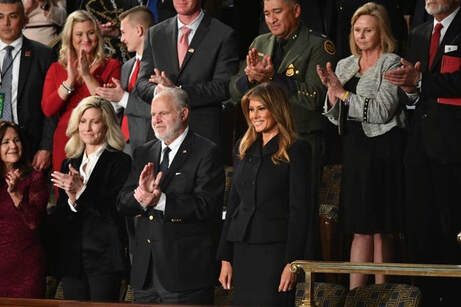
Trump Brings Rush Limbaugh to Tears, Awards Him Highest Civilian Honor During SOTU
Trump Springs Huge Surprise at SOTU, Awards Rush Limbaugh Highest Civilian Honor By Joe Setyon Published February 4, 2020 at 7:55pm President Donald Trump announced during his State of the Union address Tuesday that he was honoring conservative radio icon Rush Limbaugh with the Presidential Medal of Freedom. Limbaugh, 69, is known to be a friend of the president. He was seated in the gallery next to first lady Melania Trump and the president’s other guests during the speech at the U.S. Capitol. On Monday, Limbaugh announced on his nationally syndicated talk radio show that he has been diagnosed with advanced-stage lung cancer. “This day has been one of the most difficult days in recent memory for me, because I’ve known this moment was coming in the program today,” Limbaugh said during the live broadcast. “I’m sure that you all know by now that I really don’t like talking about myself and I don’t like making things about me,” he added. “The one thing that I know that has happened over the 31-plus years of this program is that there has been an incredible bond that has developed between all of you and me.” “So, I have to tell you something today that I wish I didn’t have to tell you. It’s a struggle for me because I had to inform my staff earlier today,” Limbaugh said. “I can’t help but feel that I’m letting everybody down with this. “But the upshot is that I have been diagnosed with advanced lung cancer.” While he undergoes treatment, Limbaugh said his “intention is to come here every day I can and do this program as normally and as competently and expertly as I do each and every day, because that is the source of my greatest satisfaction professionally, personally.” Trump singled Limbaugh out on Tuesday, calling him a “special man.” Do you think Rush Limbaugh is a deserving recipient of this award? Yes No Completing this poll entitles you to The Western Journal news updates free of charge. You may opt out at anytime. You also agree to our Privacy Policy and Terms of Use. “Here tonight is a special man, beloved by millions of Americans, who just received a stage 4 advanced cancer diagnosis,” Trump said. “This is not good news, but what is good news is that he is the greatest fighter and winner that you will ever meet.” “Rush Limbaugh, thank you for your decades of tireless devotion to our country,” Trump said. At that point, Limbaugh received a standing ovation. “Rush, in recognition of all that you have done for our nation, the millions of people a day that you speak to and that yo inspire and all of the incredible work that you have done for charity, I am proud to announce tonight that you will be receiving our country’s highest civilian honor, the Presidential Medal of Freedom,” Trump said. “I will now ask the first lady of the United States to present you with the honor.” The first lady then placed the medal around Limbaugh’s neck. __________________________ 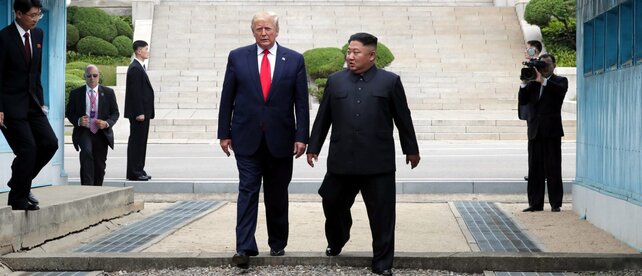 Trump Becomes First Sitting US President To Set Foot In North Korea
Photo by Handout/Dong-A Ilbo via Getty Images Trump Becomes First Sitting US President To Set Foot In North Korea
Photo by Handout/Dong-A Ilbo via Getty Images
Trump Becomes First Sitting US President To Set Foot In North Korea
Photo by Handout/Dong-A Ilbo via Getty Images AMBER ATHEYWHITE HOUSE CORRESPONDENT June 30, 20198:33 AM ETPresident Donald Trump on Sunday became the first U.S. president to set foot in North Korea during a face-to-face meeting with North Korean leader Kim Jong Un. The meeting was the first between the two leaders since nuclear talks went sideways during a summit in Hanoi, Vietnam, this past February. (RELATED: Here’s Why Trump’s Talks With Kim Jong Un Fell Apart) After leaving the G20 Summit in Japan, Trump visited the demilitarized zone between North and South Korea with President Moon Jae-in and extended the invitation to Kim Jong Un to join them. “We respect each other and [Kim Jong Un] has agreed to meet and I am going to meet him in about 4 minutes,” Trump told reporters shortly after 2 a.m. EST, according to the White House pool. The two leaders shook hands at the Military Demarcation Line, and Kim Jong Un told Trump, “Good to see you again.” He added that he “never expected” to see Trump “at this place.” At approximately 2:46 a.m., Trump briefly crossed over the line with Kim Jong Un, becoming the first U.S. president to walk on North Korean soil. PANMUNJOM, SOUTH KOREA – JUNE 30: A handout photo provided by Dong-A Ilbo of North Korean leader Kim Jong Un and U.S. President Donald Trump inside the demilitarized zone (DMZ) separating the South and North Korea on June 30, 2019 in Panmunjom, South Korea. U.S. President Donald Trump and North Korean leader Kim Jong-un briefly met at the Korean demilitarized zone (DMZ) on Sunday, with an intention to revitalize stalled nuclear talks and demonstrate the friendship between both countries. (Photo by Handout/Dong-A Ilbo via Getty Images) “Stepping across that line was a great honor,” Trump said. “I think it’s historic, it’s a great day for the world.” The president added that he would consider inviting Kim Jong Un to the White House “right now.” PANMUNJOM, SOUTH KOREA – JUNE 30: A handout photo provided by Dong-A Ilbo of North Korean leader Kim Jong Un and U.S. President Donald Trump inside the demilitarized zone (DMZ) separating the South and North Korea on June 30, 2019 in Panmunjom, South Korea. (Photo by Handout/Dong-A Ilbo via Getty Images) The two leaders later held a bilateral meeting at The Freedom House in South Korea where both men spoke to the press. Kim Jong Un, through an interpreter, said, “I believe this is an expression of [the president’s] willingness to eliminate all the unfortunate past and open a new future.” Trump said he has developed a “good relationship” with Kim Jong Un. After Kim Jong Un returned to his country, Trump told reporters that he was the one who offered to step across the line and that the North Korean leader said he would be “honored” by the gesture. PANMUNJOM, SOUTH KOREA – JUNE 30: A handout photo provided by Dong-A Ilbo of North Korean leader Kim Jong Un, U.S. President Donald Trump, and South Korean President Moon Jae-in inside the demilitarized zone (DMZ) separating the South and North Korea on June 30, 2019 in Panmunjom, South Korea. (Photo by Handout/Dong-A Ilbo via Getty Images) The last time the two leaders met in Hanoi to discuss denuclearization, the president abruptly ended the meeting and opted not to reach an agreement with Kim Jong Un, asserting that the North Korean leader had unrealistic expectations about a deal. “Basically, they wanted the sanctions lifted in their entirety, and we couldn’t do that. They were willing to de-nuke a large portion of the areas that we wanted, but we couldn’t give up all of the sanctions for that,” Trump explained after the summit, adding, “Sometimes you have to walk.” ___________________________ 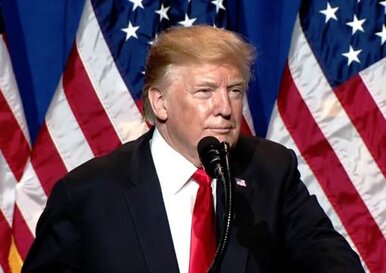
Ted Malloch: TRUMP As “Tragic Hero”
Published: 5/21/2019 9:25:05 PM Guest post by Ted Malloch author of The Plot to Destroy Trump Think Dirty Harry, “make my day Yes, Clint Eastwood or even better his character Walt Kowalski, in the movie, Gran Tourino. Trump is all of them and far more. Like the famous gunslinger in the classic Westerns that rides into town, shoots up the place, killing the bad guys and rides off into the sunset, Trump is a real “action hero.” Rawhide or Unforgiven come to mind, unless you are a fan of the John Ford classics in this same American genre. Trump is precisely a ‘tragic hero’ because he embodies the tragic reality created by decades of progressivism and statism and its internationalist dimension—globalism. He has seen the evils face to face and to each of them he shouts emphatically, NO. He is a self-styled disruptor who knows his thanks will come in the afterlife for his deeds here. He seeks no reward or monetary prize – his palace on earth has already been built, now he builds his mansion in Heaven. Sophocles, born 496 BC in Colonus, near Athens, wrote the foremost dramas in golden age Greece. He was, with Euripides, one of the greatest two playwrights of the ancient world. His works include, Oedipus and Antigone, both tragic heroic epics. In his Poetics, Aristotle writes that the purpose of such tragedy is to arouse pity and fear in the audience, and so create a catharsis — or cleansing of emotions — that will enlighten people about life and fate. Each of the plays of the Oedipus Trilogy achieves this catharsis that Aristotle defined as the hallmark of all tragedy. Think of Trump in this same vein. Trump is a modern Oedipus, destined to slay the rigged system that produced the backdrop for his victory, just as Oedipus slew his own father to get the crown. Patricide was among the highest crimes of Ancient Greece, just like defeating the democrats today – the cops will come after you with a crusading zeal whether you colluded or not. The ancient world was full of such tragic heroes. Another one of them was Ajax, son of Telamon, grandson of Zeus himself, and king of the island of Salamis. Described in Homer’s Iliad, the ancient poem about the Trojan War, Ajax was large, strong and fearless – just like Donald Trump. After Achilles’ death he fought Odysseus over who should wear the mighty suit of armor Achilles left behind. Ajax, the military hero, tragically commits suicide by falling on his sword. In an important apologia, The Case for Trump, noted historian Victor Davis Hanson (VDH, to his fans) of the Hoover Institution at Stanford University, provides a robust argument for Trump and his policies. He too sees him as a tragic figure come to fix the broken nation. VDH explains how a celebrity businessman with no political or military experience triumphed over sixteen well-qualified Republican rivals, a Democrat with a quarter-billion-dollar war chest, and a very hostile media and Washington establishment to become president of the United States — and an extremely successful president. A heroic feat, to be sure. Listen to him forcefully present his thesis here: below We see Trump in the grand theatre of politics both domestic and international, almost daily. The world, not just America, is digesting Trump and Trumponomics. He is truly an earthly demigod, a GEO DEUS, to coin a term. He has raised the profile of the Presidency to an unheard of level. He uses Twitter and the media to prevail on every subject under the sun 24/7. The entire news cycle, not occasionally, but all the time, responds to him and his every partial sentence or proclamation. Already in his historic Inauguration address, breaking with all tradition, Trump used words like “carnage” and “crippled” and said the real problem was the entrenched establishment from both political parties sitting directly behind him on the dais of the US Capitol steps. America is under threat, and only a hero like Trump can save it. The true promise and the solution stood in front of him, he proclimed—the American people. Our own tragic hero loved his country so much that he would sacrifice his wealth, lifestyle, and fame to, Make America Great Again. Now he wants to Keep America that way. ___________________________ Trump To California: Give Us Our $3.5 Billion Back For That 'Green' High-Speed Rail
Ken James/Bloomberg via Getty Images By JAMES BARRETT February 14, 2019 One of the much-critiqued goals of the since-disappeared FAQ Democrat Rep. Alexandria Ocasio-Cortez sent to major news outlets and posted on her "Green New Deal" information page was the creation of so many high-speed trains across the country that "air travel stops becoming necessary" (don't spend too much time parsing the grammar of that line). Right on cue, newly elected California Gov. Gavin Newsom (D) announced in his State of the State address this week that he was ... canceling most of the high-speed rail project that has already taken over a decade and is now projected to cost taxpayers a staggering $77 billion because, well, it's just not realistic. Play VideoSo now President Trump wants federal taxpayers' money back. "California has been forced to cancel the massive bullet train project after having spent and wasted many billions of dollars," Trump tweeted Thursday morning. "They owe the Federal Government three and a half billion dollars. We want that money back now. Whole project is a 'green' disaster!" Newsom set himself up to be called out by the president. In his State of the State Tuesday, the liberal governor specifically mentioned trying to figure out a way not to pay federal taxpayers back. "Let’s be real," Newsom said in his State of the State address. "The current project, as planned, would cost too much and respectfully take too long. There’s been too little oversight and not enough transparency. Right now, there simply isn’t a path to get from Sacramento to San Diego, let alone from San Francisco to L.A. I wish there were." Having admitted that the Democrat-led California government could not be relied on to handle complex building projects and failed on the key issues of oversight and transparency, Newsom refused to entirely let go of the high-speed rail dream — in part because he didn't want to give that $3.5 billion back to Trump. "Abandoning high-speed rail entirely means we will have wasted billions and billions of dollars with nothing but broken promises, partially filled commitments and lawsuits to show for it," said the Democratic governor. "And by the way, I am not interested in sending $3.5 billion in federal funding that was allocated to this project back to Donald Trump." As The Daily Wire noted Tuesday, the plan, as of now, is to complete only the Central Valley segment of the San Francisco-to-Los Angeles train. Newsom's admission that the project, which is now 11 years in the making, is not realistic fiscally comes after a series of delays and significant increases in estimated costs. The San Francisco Chronicle reports: California voters approved a $10 billion bond in 2008 largely for the construction of bullet train between San Francisco and Los Angeles. The state finally broke ground in 2015 on a 119-mile segment between Madera and Bakersfield, but the project has lost popularity and become a growing political target as it blows through deadlines and budgets. A revised business plan adopted last year pushed back the completion of the project by four more years and estimated a final cost of $77 billion.The issue of high-speed rails became a national conversation last week when Ocasio-Cortez unveiled the Green New Deal and her since-deleted explainer and FAQ, which promised among other things to “[t]otally overhaul transportation by massively expanding electric vehicle manufacturing, build charging stations everywhere, build out high-speed rail at a scale where air travel stops becoming necessary, create affordable public transit available to all, with goal to replace every combustion-engine vehicle." ___________________________ 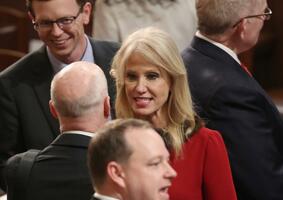
KELLYANNE CONWAY DISMISSES PAST PRESIDENTS’ SOTU SPEECHES AS ‘PIE IN THE SKY THINGS’ AFTER DONALD TRUMP’S ADDRESS BY JESSICA KWONG ON 2/6/19 AT 6:19 PM State Of The Union 2019: Highlights Of Trump's Speech SHARE U.S.Counselor to the President Kellyanne Conway accused past presidents of “giving a laundry list of all the pie and the sky ideas” in their State of the Union addresses, and said that by comparison, her boss President Donald Trump delivered a real story of American people that resonated with viewers. Conway was a guest on Fox News Radio’s The Brian Kilmeade Show the day after Trump’s address, which more than three-fourths of Americans approved of, according to polls by CNN and CBS News. Kilmeade praised Trump’s speech for touching on the feats of Americans across time and sectors of society, from the Apollo launch to children overcoming cancer. “I think it was more of a slice-of-life than 'look at me,'” Kilmeade said. Conway agreed and slammed past presidents in the process. “So the president actually gave his address to the stories of other people,” Conway said. “Normally, Brian, you have a president standing there giving a laundry list of all the pie in the sky things they want to do, a couple of joyful noises here and there about bipartisanship re-unity.” She continued: “But this president weaved together the stories of other people to try and advance his agenda and try to make us all feel better about being Americans.” Trump, in his address, highlighted the triumphs of Americans from different walks of life who faced various challenges, from working for U.S. Immigration and Customs Enforcement to surviving a mass shooting to recovering from substance abuse. Conway said Democrats at the address who did not applaud for Trump when he brought up record-low unemployment for women and other accomplishments were “getting panicked.” “I've got to tell you, the ad makers for 2020, they're probably working overtime today because of the amount of the sitting on the hands, the furrowed brows, the eye-rolling at the president listing out great American accomplishments and visionary things,” Conway said. “We can work on together. Why wouldn't we want to eradicate AIDS? why wouldn't we want to try to work together?” Conway added that Trump was enjoying himself and “loves this job because he loves this country.” She then took a shot at the president's critics. “It's one time each year that nobody else can interrupt with a stupid panel of eight people telling you what you just heard, as opposed to what you just heard,” she said. Counselor to the President Kellyanne Conway looks on ahead of the State of the Union address in the chamber of the U.S. House of Representatives at the U.S. Capitol Building on February 5, 2019, in Washington, D.C. Conway said past presidents normally give "a laundry list of all the pie and disguising what they want to do." WIN MCNAMEE/GETTY IMAGES Conway’s blanket criticism of past presidents' speeches does not match up with the opinions of Americans. In 2016, for example, 55 percent of Americans felt positively about former President Barack Obama’s address, according to an NBC News poll. ___________________________ 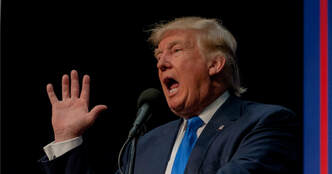
Trump vows to veto any bill that ‘weakens the protection of human life’
JANUARY 19, 2019 BY BEN MARQUIS While Donald Trump’s stance on abortion has evolved over the years, today he is being heralded as “the most pro-life president in American history,” as Vice President Mike Pence said Thursday. And for good reason. In an unexpected surprise for attendees of the 46th annual March for Life protest in Washington D.C. on Friday — marking the anniversary of the 1973 Roe v. Wade Supreme Court abortion ruling — President Trump delivered a video message in which he vowed to veto any legislation that “weakens the protection of human life.” Watch below: Vow to veto any pro-abortion billsThe White House was represented in person by a surprise appearance from Vice President Mike Pence and second lady Karen Pence. Following their remarks to the large and energetic crowd, the message from the president was played on a giant screen for all to see. “As president, I will always defend the first right in our Declaration of Independence, the right to life,” he promised as the audience cheered wildly. “During my first week in office, I reinstated the Mexico City Policy. We have taken bold action to protect the religious freedoms for doctors, nurses, and charities like the Little Sisters Of The Poor,” Trump continued. “We issued a new proposal to prohibit Title Ten taxpayer funding from going to any clinic that performs abortions.” “We are supporting the loving choice of adoption and foster care, including through the support of faith-based adoption services. And I am supporting the U.S. Senate’s effort to make permanent the Hyde Amendment, which prohibits taxpayer funding for abortion in spending bills,” he said. “Today I have signed a letter to Congress to make clear that if they send any legislation to my desk that weakens the protection of human life, I will issue a veto, and we have the support to uphold those vetoes,” Trump said. Trump a “champion” of the pro-life movementPrior to hearing the message from the president, Pence reminded the crowd that they didn’t stand for alone for the lives of the unborn, but had strong allies in the White House, both in himself and pro-life “champion” President Trump. He ran through a litany of pro-life actions Trump had taken, such as re-instituting the Mexico City policy — which bans the use of taxpayer-funded foreign aid for abortions — the appointment of conservative judges to federal courts, as well as signing legislation that empowered states to defund Planned Parenthood abortion providers. “The truth is, President Donald Trump is the most pro-life president in American history,” said Pence to resounding cheers from the crowd. President Trump has indeed done more for the pro-life movement in his first two years in office than any others who have come before him. He will likely cement his status as the most pro-life president if he follows through on the promise he delivered to the March for Life crowd, confident in the fact that Republicans in Congress will hold firm with him and the conservative base and affirming once again the right of life for all, including unborn children. ___________________________ Watch: Trump Literally Puts ‘Christ’ Back in Christmas at WH Christmas Tree Lighting
BY KARISTA BALDWIN NOVEMBER 29, 2018 AT 12:11PM While some try to gloss over the fact that Christmas is a religious celebration for Christians, preferring to call Christmastime simply the “holiday season,” President Donald Trump approaches the holiday differently. His speech during the National Christmas Tree lighting ceremony at the White House on Wednesday was uplifting, appreciative and decidedly Christian. Trump was forthright in celebrating Christ’s birth as the reason for the festivities. After thanking everyone who made the Christmas decorations possible, the president began his speech with the story of Jesus’ birth from the Gospel of Luke. “For Christians all across our nation, around the world, this is a sacred season that begins 2,000 years ago when Jesus Christ was born,” Trump said. “An angel declared to the shepherds tending their flocks, ‘Behold, I bring you good tidings of great joy, which shall be to all people. For unto you is born this day in the city of David a Savior, which is Christ the Lord,'” he said. “There in Bethlehem, Mary and Joseph held in their hands the Son of God, the light of the world, and through Him the promise of eternal salvation.” “No matter one’s faith or beliefs,” Trump continued, “the Christmas seasons reflects all that is best in the American spirit.” The president talked about how Christmas is time for rejoicing with family, spreading charity and giving thanks for blessings. He especially applauded the foster families in the crowd. “We are especially thankful for the countless Americans who have given their time and passion to help those in need. Here in the audience today are a number of extraordinary foster families and guardians joined by the beautiful children they have welcomed into their homes. … To every child in foster care: You are the precious loved one and gift of God,” Trump said. The president spoke of Americans as one family when he called to mind those affected by the tragedies and natural disasters of the past year. “At this time of the year, we renew the bonds of affection between our fellow citizens, and we awaken the faith in our hearts that calls each of us to action,” he said. “As we gather loved ones, our thoughts turn to those who are rebuilding their lives after devastating wildfires, destructive hurricanes and terrible tragedy. We are one American family. We hurt together, we heal together and we will always pull through together. This is the United States of America.” He honored first responders and those in military service, extending gratitude to them on behalf of all Americans. “Their families are all our families, and we thank them so much for their greatness and for the incredible job they do,” Trump said. The president concluded the speech by asking God to shed His grace on the country and to bless its people. “We ask God to watch over this nation’s heroes and to shed His almighty grace upon our nation, and we pray that America’s light will shine more brightly and stronger than ever,” Trump said. The president’s speech was a beautiful celebration of God and His gifts. Let’s remember to acknowledge God and give thanks to Him during the upcoming Christmas season. __________________________ ALERT: TRUMP’S PRAYER WARRIORS JUST ASSEMBLED TO FIGHT OFF SATAN’S ATTACKS ON HIM - JOIN THEM NOW!!!
Bible Studies at the White House: Who's Inside This Spiritual Awakening?
07-31-2017 Jennifer Wishon WASHINGTON – A spiritual awakening is underway at the White House. Some of the most powerful people in America have been gathering weekly to learn more about God's Word, and this Trump Cabinet Bible study is making history. They've been called the most evangelical Cabinet in history – men and women who don't mince words when it comes to where they stand on God and the Bible. Ralph Drollinger of Capitol Ministries told CBN News, "These are godly individuals that God has risen to a position of prominence in our culture." They're all handpicked by President Donald Trump and Vice President Mike Pence. For more, tune into Faith Nation, Wed. @12:30pm, on facebook.com/cbnnews. White House Correspondent Jennifer Wishon will be LIVE to discuss this Bible study's impact on the White House climate. "I don't think Donald Trump has figured out that he chained himself to the Apostle Paul," Drollinger laughed. Drollinger is a former NBA-playing giant of a man with an even bigger calling. He founded Capitol Ministries with the idea that if you change the hearts of lawmakers, then their Christian world view will guide them to make good policies. He's started Bible studies in 40 state capitols, a number of foreign capitols, teaches weekly studies in the U.S. House and Senate and now leads about a dozen members of President Trump's Cabinet in weekly studies of the scriptures. Health Secretary Tom Price, Energy Secretary Rick Perry, Education Secretary Betsy DeVos, Agriculture Secretary Sunny Perdue, and CIA Director Mike Pompeo are just a few of the regulars. "It's the best Bible study that I've ever taught in my life. They are so teachable; they're so noble; they're so learned," Drollinger said. It's groundbreaking since he doesn't think a formal Bible study among executive Cabinet members has been done in at least 100 years. America's top cop, Attorney General Jeff Sessions, also attends the study. "He'll (Jeff Sessions) go out the same day I teach him something and I'll see him do it on camera and I just think, 'Wow, these guys are faithful, available and teachable and they're at Bible study every week they're in town,'" Drollinger said. Faith Leaders Pray for Trump in Oval Office, Enjoy 'Open Door' at White House Pastor: Microchipping Humans Is Straight Out of Revelation President Trump is invited to attend the Bible studies, too. Each week he receives a copy of Drollinger's teaching. And Vice President Pence is also planning to join the study as his schedule permits. He also serves as a sponsor. In Pence, Drollinger sees many similarities to biblical figures like Joseph, Mordecai and Daniel – all men who rose to the number two position in governments at different times in history. "Mike Pence has respect for the office. He dresses right - like it says Joseph cleaned himself up before he went to stand before the Pharaoh," Drollinger told CBN News. "Mike Pence has uncompromising biblical tenacity and he has a loving tone about him that's not just a noisy gong or a clanging cymbal," he continued. "And then fourthly, he brings real value to the head of the nation." Like others, Drollinger often compares President Trump to biblical strongman Samson. "I just praise God for them," he said. "And I praise God for Mike Pence, who I think with Donald Trump chose great people to lead our nation." _________________________ 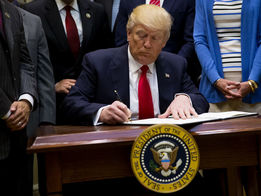
President Trump Signs 'Religious Freedom' Order Targeting Contraception Mandate The 'Religious Freedom' executive order aims to ease enforcement of the Johnson Amendment and Obamacare's contraception mandate.
By Cody Fenwick (Patch National Staff) - May 4, 2017 1:19 pm ET WASHINGTON, DC — President Trump signed an executive order Thursday, titled "Promoting Free Speech and Religious Liberty," which aims to ease enforcement of Obamacare's contraception mandate, which requires employers to provide health insurance that covers contraception. It also empowers federal agencies to ease enforcement of the Johnson Amendment, which prevents tax-exempt nonprofits from endorsing or denouncing political candidates. A senior administration official said this order will provide relief to religious people who are "persecuted" under these laws. The signing coincided with the National Day of Prayer. "We will never ever stand for religious discrimination," Trump said at the signing ceremony. "Never ever. Tolerance is the cornerstone of peace." This view stands in contrast to his campaign pledge to ban all Muslim immigration to the United States. The order itself will not change the laws, which is up to Congress. The administration would not specify exactly what actions it expects the enforcement agencies to take in response to this executive order or what specific effects the order will have. (For more information on this and other political stories, subscribe to the White House Patch for daily newsletters and breaking news alerts.) The contraception mandate, originally enforced under Obamacare, has been a target of conservatives for years. In a major case brought against the administration by Hobby Lobby, the Supreme Court ruled that closely held corporations, such as Hobby Lobby, cannot be forced to provide birth control coverage to its employees through insurance. It also found that the Obama administration's alternative, which required companies to apply for a waiver that allows employees to obtain the coverage elsewhere, was not acceptable either. A senior administration official said the Hobby Lobby exemption will now apply to more companies, not just closely held corporations. Presumably, this means larger companies that claim to have religious opposition to birth control will soon be able to buy plans for their employees that do not cover contraception. The Johnson Amendment, which was named for President Lyndon B. Johnson who signed it, restricts the political advocacy of all organizations that file as nonprofits with the IRS, which provides them with tax benefits. Conservatives have long opposed the law, particularly as it applies to churches. Those who favor the amendment see it as a benefit that preachers cannot endorse or lobby against particular candidates for office from the church pulpit as long as they receive tax benefits, while detractors argue this law stifles religious expression. "On this #NationalDayOfPrayer, I commend the Trump administration for taking action to restore the constitutional right to religious liberty," House Speaker Paul Ryan said on Twitter. Get free real-time news alerts from the White House Patch. SUBSCRIBEThe Center for American Progress released a statement criticizing the order: "People of faith have already spoken: They don’t want partisanship from the pulpit." It continued: "This order also targets the health and well-being of millions of people, including women and families for whom access to preventive care and contraceptive coverage is key to their economic security. Further, while done in the name of religious liberty, it empowers employers to impose health care restrictions on employees with no regard for the employees’ religious and moral convictions." During the campaign, Trump said he would work to repeal the amendment, and this order is, in part, an attempt to live up to that promise. But since the law will remain on the books, it's not clear what the administration's executive order, which is supposed to provide "maximum enforcement discretion," will mean in the real world. Rumors circulated early in the week that the executive order might weaken protections against discrimination of LGBT people in the workplace and elsewhere, but the final version of the text does not appear to apply to these cases at all. The administration said it does not expect to receive any legal challenges on this order. __________________________ How Trump Can Seize the Initiative with Xi Jinping
by MICHAEL AUSLIN April 4, 2017 12:54 PM @MICHAELAUSLIN Threaten sanctions for cyberattacks, pressure China over North Korea, uphold international law in the South China Sea. Which Donald Trump will show up to greet Chinese president Xi Jinping on Thursday in Mar-a-Lago? Will it be the fire-breathing candidate of the campaign trail and transition, who called China a “cheater” on trade and who threatened to reconsider American commitment to the long-standing “One-China” policy? Or will it be the president who agreed to recognize the very same One China policy and whose secretary of state repeated Chinese formulations of the basis of U.S.–Sino relations? Behind the choice lies the larger question of whether the president has a China — or Asia — policy at all yet? By the time of his inauguration, it seemed as though President Trump had wrestled the diplomatic initiative from Beijing, warning that he would slap tariffs on Chinese goods to even out an unfair playing field, dramatically taking a phone call from Taiwan’s president, and musing about upending 40 years of diplomatic relations based on the One China Policy. We could have seen all this as the prelude to tough negotiations with Xi on issues ranging from the South China Sea to currency manipulation. Once taking office, however, the administration seemed to tacked back: It largely emphasized cooperation in security issues and downplayed any specifics on trade retaliation. Moreover, by pulling out of the Trans-Pacific Partnership, the administration left the field open for China to pursue its own multilateral trade agreement in Asia. Then, just a few days ago, the president and his team once again adopted a harder line on the South China Sea and trade. The White House may believe that the mixed signals keep Beijing off-balance, but they just as easily give an impression of a policy that has not yet cohered. So as the world press looks forward to a few days in the Florida sunshine, the stakes could not be higher for this first meeting between the heads of the world’s most powerful countries. Can Trump wrangle all the loose ends of his China policy, and come up with a coherent, firm, and credible approach by the time he meets Xi? The biggest danger Trump faces when he sits down with Chinese president this week at Mar-a-Lago is that he might be put on the defensive. Xi is coming off a lauded speech defending free trade at the World Economic Forum at Davos in January, while Trump is struggling to deal with North Korea and has yet to articulate an alternative to the Trans-Pacific Partnership. Surrendering the dynamic in Sino–U.S. relations to Xi in this first meeting could determine the administration’s Asia policy for the next four years. Trump risks facing a confident Chinese leader who will come seeking to capitalize on his recent successes. Even if Trump doesn’t have a full Asia policy — in no small part because he does not yet have most of his foreign policy team in place — he needs to have at least a basic set of positions ready to present to his Chinese counterpart. First, the president needs to walk back Secretary of State Rex Tillerson’s endorsement of China’s call for “mutual respect” and “win-win cooperation” that Tillerson made in Beijing last month. China watchers knows that “mutual respect” means staying out of areas China considers vital to its interests, not to mention highlighting Beijing’s desire to be seen as an equal to the United States. Trump cannot be seen as acquiescing in China’s new model of great-power relations. Instead, the president should call for a new realism in Sino–U.S. relations, recognizing that both countries will seek to maximize their national interests and that America will hold the line on protecting its position in Asia and will zero in on unfair Chinese trading practices. On trade, the administration might be less inclined to punish tariffs than it earlier indicated, but Trump should put Xi on notice that the U.S. will no longer tolerate cyberattacks and the theft of intellectual-property rights. He can make clear that he is willing to sanction individuals and companies that are involved in stealing or profiting from American firms, and he can also intimate that America has its own cyber capabilities in response. He can communicate as well that his administration will actively look at specific sectors where Chinese dumping might be occurring, thus putting pressure on Xi to deal with the problem before the Americans decide to act. Next, Trump has to make pressuring North Korea a priority for Xi. North Korea has become the administration’s first international crisis. It is also a headache for Trump’s relations with China. Not only has Beijing pressured Trump to freeze military exercises with ally South Korea, in exchange for a purported North Korean freeze on nuclear and missile tests, but it has also vociferously objected to the installation of a new U.S. missile-defense system in South Korea. Ironically, this has helped China seem the peacemaker, paternalistically warning that America and North Korea are recklessly heading toward conflict, and urging both sides to calm down. In this light, Xi looks more responsible and more influential in Asia than the American president does. By now, it is clear that Beijing has little political leverage over Kim Jong-un. However, China’a economic power is real. Threatening sanctions again and even access to the global financial system, Trump should demand that Xi crack down on both Chinese banks and the hundreds of companies doing business with North Korea. Beijing might not even know every entity involved in the multibillion-dollar cross-border trade, but past administrations have failed to impose any costs on China for propping up Pyongyang. Further, Trump can threaten to widely provide ballistic missile-defense systems to U.S. allies beyond South Korea, including Taiwan and India, in response to the growing North Korean threat. This is something China wants to avoid, seeing it as aimed ultimately at its own missile capabilities. More broadly, Trump can wrestle some of the initiative on security issues away from China. Beijing’s apparent statesmanship on the Korean peninsula does not extend to its own security interests. Just last month, the Chinese military threatened a U.S. Air Force bomber flying over the South China Sea, claiming that it was in Chinese airspace. That won’t deter U.S. military operations in the region, but it reveals the belligerent mindset in Beijing on display in December, when the Chinese navy briefly seized a U.S. Navy underwater drone. Moreover, China continues to militarize the islands it has constructed in the disputed Spratly Islands group. Trump should act decisively to uphold international law by announcing to Xi that the U.S. Navy and Air Force will undertake a regular schedule of freedom-of-navigation operations in the contested waters around the Spratly and Paracel Islands, and we will invite partner navies to join. More specifically, he can let his guest know that any move to militarize the Scarborough Shoal, off the Philippine coast, will result in a constant U.S. naval presence and the provision of significant arms sales to regional states. It’s possible that none of these policies will succeed in change Beijing’s own calculations, but they will let Trump set a baseline for Sino–U.S. relations over the next four years. They may also slow down China’s momentum and force Xi to consider just how adversarial a relationship he wants with the United States while his own economy continues to slow down dramatically. First impressions among world leaders make a difference. Ronald Reagan put Mikhail Gorbachev on the defensive, a position from which he never recovered. John F. Kennedy’s seeming weakness encouraged Nikita Khrushchev to build the Berlin Wall and put nuclear missiles in China. Donald Trump needs to send a message that he takes seriously the necessity of getting relations with China right, for U.S. interests above all. Read more at: ___________________________ 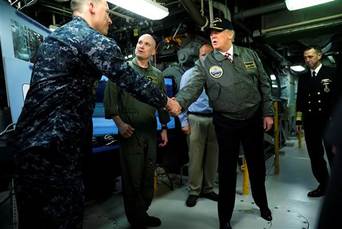 President Donald Trump tours the pre-commissioned U.S. Navy aircraft carrier Gerald R. Ford in Newport News, Virginia, on March 2. Jonathan Ernst / Reuters President Donald Trump tours the pre-commissioned U.S. Navy aircraft carrier Gerald R. Ford in Newport News, Virginia, on March 2. Jonathan Ernst / Reuters
President Trump Goes ‘Top Gun’ in Navy Jacket and Cap
by KALHAN ROSENBLATT President Donald Trump on Thursday donned a Navy flight jacket and matching cap during a tour of the U.S. Navy's most expensive warship — the USS Gerald R. Ford, a $12.9-billion aircraft carrier named for the former president. He even wore a patch with his name and title "commander-in-chief" embroidered in gold on the left of his chest. The gear was gifted to Trump upon his arrival, he said, and carried on a long tradition of presidents wearing the Navy gear during visits...(Read More...) 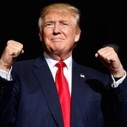
President Trump’s First Week a Runaway Success
January 30, 2017 Breaking News For anyone who remained skeptical of Donald Trump’s ability to truly create change for the country, his first week as president has to be looked at as a major vote of confidence. Trump came into the White House with promises that seemed all but impossible to keep. No president in our lifetime has arrived in Washington with a plan to remake America in such a way that would erase not only the last eight years of liberal policies, but the last thirty years of increasing globalization and national insecurity.Surely, some thought, he would wind up like all the rest of the big talkers – overwhelmed and overpowered by a bureaucratic machine that has simply grown too large to change in any significant way. Yes, we would get dramatic improvements over the Obama years, but there was little chance that we would get the revolutionary progress Trump had campaigned on. But even the skeptics have to admit that President Trump is off to an amazing start. If he can keep up even a quarter of this pace, he won’t just keep his campaign promises – he’ll over-deliver in a way that not even his fiercest supporters could have dreamed possible. This is what happens when you put someone in charge who actually has experience…being in charge. It’s one thing to be a senator or a congressman. Hell, it’s one thing to be the governor of a state. It’s a whole different thing to run a business – and a whole different thing again to build a business empire from the ground up. Trump knows how to make decisions. He knows how to lead. And that’s a species of knowledge that has been sorely missed in the executive branch. Democrats are going to push back hard – this we already knew going in. What we want to see now is how Republicans are going to react in the coming weeks and months. Since election day, top GOP leaders have gone from “Uh, yeah, I guess we support him” to pretending like they agree with Donald Trump on every issue down the line. They are so thankful that he rescued them from certain electoral doom. But how long will the honeymoon last? Pretend as they may, Trump’s agenda is not a clean match for the Republican Party platform. And we’re already starting to see some friction develop as it pertains to the immigration ban. One thing is certain: Trump didn’t come to Washington to be a rubber stamp for Paul Ryan’s agenda. And judging by his first week – and comparing it to the GOP’s ability to stop Obama’s policies – we’ll put our bets on Trump if the early friction turns into an all-out battle. This guy came to win. ___________________________ Here's President-Elect Trump's Plan for His First 100 Days in Office
Nov 10, 2016 // 3:58pm As seen on Shepard Smith Reporting After Donald Trump's stunning victory in the 2016 election, many Americans are wondering about his agenda once the president-elect takes office. For anyone with those questions, the Trump campaign released his "Contract with the American Voter," which outlines a 100-day action plan to "restore prosperity to our economy, security to our communities and honest to our government." The plan promises that in Trump's first 100 days in office, he will focus on tax reform and relief, an infrastructure package, the repealing of ObamaCare and an illegal immigration act. Here's the full text of Trump's plan: What follows is my 100-day action plan to Make America Great Again. It is a contract between myself and the American voter — and begins with restoring honesty, accountability and change to Washington Therefore, on the first day of my term of office, my administration will immediately pursue the following six measures to clean up the corruption and special interest collusion in Washington, DC: FIRST, propose a Constitutional Amendment to impose term limits on all members of Congress; SECOND, a hiring freeze on all federal employees to reduce federal workforce through attrition (exempting military, public safety, and public health); THIRD, a requirement that for every new federal regulation, two existing regulations must be eliminated; FOURTH, a 5 year-ban on White House and Congressional officials becoming lobbyists after they leave government service; FIFTH, a lifetime ban on White House officials lobbying on behalf of a foreign government; SIXTH, a complete ban on foreign lobbyists raising money for American elections. On the same day, I will begin taking the following 7 actions to protect American workers: FIRST, I will announce my intention to renegotiate NAFTA or withdraw from the deal under Article 2205 SECOND, I will announce our withdrawal from the Trans-Pacific Partnership THIRD, I will direct my Secretary of the Treasury to label China a currency manipulator FOURTH, I will direct the Secretary of Commerce and U.S. Trade Representative to identify all foreign trading abuses that unfairly impact American workers and direct them to use every tool under American and international law to end those abuses immediately FIFTH, I will lift the restrictions on the production of $50 trillion dollars' worth of job-producing American energy reserves, including shale, oil, natural gas and clean coal. SIXTH, lift the Obama-Clinton roadblocks and allow vital energy infrastructure projects, like the Keystone Pipeline, to move forward SEVENTH, cancel billions in payments to U.N. climate change programs and use the money to fix America's water and environmental infrastructure Additionally, on the first day, I will take the following five actions to restore security and the constitutional rule of law: FIRST, cancel every unconstitutional executive action, memorandum and order issued by President Obama SECOND, begin the process of selecting a replacement for Justice Scalia from one of the 20 judges on my list, who will uphold and defend the Constitution of the United States THIRD, cancel all federal funding to Sanctuary Cities FOURTH, begin removing the more than 2 million criminal illegal immigrants from the country and cancel visas to foreign countries that won't take them back FIFTH, suspend immigration from terror-prone regions where vetting cannot safely occur. All vetting of people coming into our country will be considered extreme vetting. Next, I will work with Congress to introduce the following broader legislative measures and fight for their passage within the first 100 days of my Administration: Middle Class Tax Relief And Simplification Act. An economic plan designed to grow the economy 4% per year and create at least 25 million new jobs through massive tax reduction and simplification, in combination with trade reform, regulatory relief, and lifting the restrictions on American energy. The largest tax reductions are for the middle class. A middle-class family with 2 children will get a 35% tax cut. The current number of brackets will be reduced from 7 to 3, and tax forms will likewise be greatly simplified. The business rate will be lowered from 35 to 15 percent, and the trillions of dollars of American corporate money overseas can now be brought back at a 10 percent rate. End The Offshoring Act. Establishes tariffs to discourage companies from laying off their workers in order to relocate in other countries and ship their products back to the U.S. tax-free. American Energy & Infrastructure Act. Leverages public-private partnerships, and private investments through tax incentives, to spur $1 trillion in infrastructure investment over 10 years. It is revenue neutral. School Choice And Education Opportunity Act. Redirects education dollars to give parents the right to send their kid to the public, private, charter, magnet, religious or home school of their choice. Ends common core, brings education supervision to local communities. It expands vocational and technical education, and make 2 and 4-year college more affordable. Repeal and Replace Obamacare Act. Fully repeals Obamacare and replaces it with Health Savings Accounts, the ability to purchase health insurance across state lines, and lets states manage Medicaid funds. Reforms will also include cutting the red tape at the FDA: there are over 4,000 drugs awaiting approval, and we especially want to speed the approval of life-saving medications. Affordable Childcare and Eldercare Act. Allows Americans to deduct childcare and elder care from their taxes, incentivizes employers to provide on-side childcare services, and creates tax-free Dependent Care Savings Accounts for both young and elderly dependents, with matching contributions for low-income families. End Illegal Immigration Act Fully-funds the construction of a wall on our southern border with the full understanding that the country Mexico will be reimbursing the United States for the full cost of such wall; establishes a 2-year mandatory minimum federal prison sentence for illegally re-entering the U.S. after a previous deportation, and a 5-year mandatory minimum for illegally re-entering for those with felony convictions, multiple misdemeanor convictions or two or more prior deportations; also reforms visa rules to enhance penalties for overstaying and to ensure open jobs are offered to American workers first. Restoring Community Safety Act. Reduces surging crime, drugs and violence by creating a Task Force On Violent Crime and increasing funding for programs that train and assist local police; increases resources for federal law enforcement agencies and federal prosecutors to dismantle criminal gangs and put violent offenders behind bars. Restoring National Security Act. Rebuilds our military by eliminating the defense sequester and expanding military investment; provides Veterans with the ability to receive public VA treatment or attend the private doctor of their choice; protects our vital infrastructure from cyber-attack; establishes new screening procedures for immigration to ensure those who are admitted to our country support our people and our values Clean up Corruption in Washington Act. Enacts new ethics reforms to Drain the Swamp and reduce the corrupting influence of special interests on our politics. On November 8th, Americans will be voting for this 100-day plan to restore prosperity to our economy, security to our communities, and honesty to our government. This is my pledge to you. And if we follow these steps, we will once more have a government of, by and for the people. __________________________ President-Elect Donald J. Trump Announces New Implementation Phase of Presidential Transition TeamNOVEMBER 11, 2016 • MAKING NEWSFor Immediate Release
Friday, November 11, 2016 Media Contact: Media@ptt.gov PRESIDENT-ELECT DONALD J. TRUMP ANNOUNCES NEW IMPLEMENTATION PHASE OF PRESIDENTIAL TRANSITION TEAM Vice President-Elect Mike Pence Named Presidential Transition Team Chair; Immediately Institutes Vice Chairs of Presidential Transition Team Executive Committee, Additional Presidential Transition Team Members And Staff Leadership For Transition Team (New York, NY) - President-elect Donald J. Trump today announced that Vice President-elect Mike Pence will serve as Chairman of the Presidential Transition Team, and that Dr. Ben Carson, New Jersey Governor Chris Christie, Former Speaker of the U.S. House of Representatives Newt Gingrich, Lieutenant General Michael Flynn, USA (Ret.), Former New York City Mayor Rudy Giuliani and U.S. Senator Jeff Sessions will join the team’s Executive Committee as Vice Chairs. President-elect Trump also announced that the following leaders will join the Presidential Transition Team Executive Committee: Congressman Lou Barletta Congresswoman Marsha Blackburn Florida Attorney General Pam Bondi Congressman Chris Collins Jared Kushner Congressman Tom Marino Rebekah Mercer Steven Mnuchin Congressman Devin Nunes Anthony Scaramucci Peter Thiel Donald Trump Jr. Eric Trump Ivanka Trump RNC Chairman Reince Priebus Trump Campaign CEO Stephen K. Bannon “Together this outstanding group of advisors, led by Vice President-elect Mike Pence, will build on the initial work done under the leadership of New Jersey Gov. Chris Christie to help prepare a transformative government ready to lead from day one,” stated President-elect Donald J. Trump. “The mission of our team will be clear: put together the most highly qualified group of successful leaders who will be able to implement our change agenda in Washington. Together, we will begin the urgent task of rebuilding this nation - specifically jobs, security and opportunity. This team is going to get to work immediately to Make America Great Again.” President-elect Donald J. Trump today also announced that Chief of Staff to U.S. Senator Jeff Sessions, Rick Dearborn, will join the Presidential Transition Team as Executive Director. Richard Bagger, Executive Director of the Presidential Transition Team during the preparation phase, will return to the private sector but will remain with the Team as an Advisor, as will preparation phase General Counsel Bill Palatucci. Joining Dearborn on the Presidential Transition Team’s Staff Leadership lineup are: Kellyanne Conway, Senior Advisor David Bossie, Deputy Executive Director Stephen Miller, National Policy Director Jason Miller, Communications Director Hope Hicks, National Press Secretary Dan Scavino, Director of Social Media Don McGahn, General Counsel Katie Walsh, Senior Advisor The Vice President-elect has tapped his three senior advisors, Nick Ayers, Josh Pitcock, and Marc Short, to work alongside him in this process. “President-elect Trump will bring about fundamental change in Washington, and these are the right people to make that happen,” added Vice President-elect Pence. “This team of experienced leaders will form the building blocks of our Presidential Transition Team staff leadership roster, and will work with elected officials and tireless volunteers to prepare our government for the transfer of power on January 20th.” __________________________ 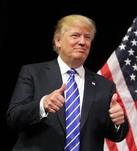
Donald J. Trump Jacksonville Rally
The Jacksonville Landing, Jacksonville, FL Saturday, October 24, 2015 at 12:00 PM Filmed by: The Villages Conservative Media |
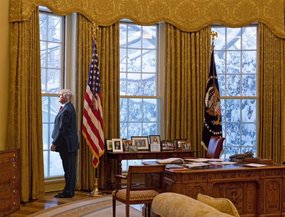
Full Transcript – President Elect Donald Trump Interview With New York Times…
Posted on November 23, 2016 by sundance
FRIEDMAN: Are you worried, though, that those companies will keep their factories here, but the jobs will be replaced by robots?TRUMP: They will, and we’ll make the robots too.There has been a great deal of conversation, much of it anxiety filled, about the content of the New York Times interview with President-Elect Donald Trump.
Multiple MSM outlets framed a “Trump is reversing” narrative. However, that is simply a complete fabrication.
Below is the transcript from the interview itself, I would strongly urge everyone to grab a cup of coffee, settle in, and spend the time to actually read the full interview. It’s great:
ARTHUR SULZBERGER Jr., publisher of The New York Times: Thank you very much for joining us. And I want to reaffirm this is on the record.
DONALD J. TRUMP, President-elect of the United States: O.K.
SULZBERGER: All right, so we’re clear. We had a very nice meeting in the Churchill Room. You’re a Churchill fan, I hear?
TRUMP: I am, I am.
SULZBERGER: There’s a photo of the great man behind you.
TRUMP: There was a big thing about the bust that was removed out of the Oval Office.
SULZBERGER: I heard you’re thinking of putting it back.
TRUMP: I am, indeed. I am.
SULZBERGER: Wonderful. So we’ve got a good collection here from our newsroom and editorial and our columnists. I just want to say we had a good, quiet, but useful and well-meaning conversation in there. So I appreciate that very much.
TRUMP: I appreciate it, too.
SULZBERGER: I thought maybe I’d start this off by asking if you have anything you would like to start this off with before we move to the easiest questions you’re going to get this administration.
[laughter]
TRUMP: O.K. Well, I just appreciate the meeting and I have great respect for The New York Times. Tremendous respect. It’s very special. Always has been very special. I think I’ve been treated very rough. It’s well out there that I’ve been treated extremely unfairly in a sense, in a true sense. I wouldn’t only complain about The Times. I would say The Times was about the roughest of all. You could make the case The Washington Post was bad, but every once in a while I’d actually get a good article. Not often, Dean, but every once in awhile.
Look, I have great respect for The Times, and I’d like to turn it around. I think it would make the job I am doing much easier. We’re working very hard. We have great people coming in. I think you’ll be very impressed with the names. We’ll be announcing some very shortly.
Everybody wanted to do this. People are giving up tremendous careers in order to be subject to you folks and subject to a lot of other folks. But they’re giving up a lot. I mean some are giving up tremendous businesses in order to sit for four or maybe eight or whatever the period of time is. But I think we’re going to see some tremendous talent, tremendous talent coming in. We have many people for every job. I mean no matter what the job is, we have many incredible people. I think, Reince, you can sort of just confirm that. The quality of the people is very good.
REINCE PRIEBUS, Mr. Trump’s choice for chief of staff: [inaudible]
TRUMP: We’re trying very hard to get the best people. Not necessarily people that will be the most politically correct people, because that hasn’t been working. So we have really experts in the field. Some are known and some are not known, but they’re known within their field as being the best. That’s very important to me.
You know, I’ve been given a great honor. It’s been very tough. It’s been 18 months of brutality in a true sense, but we won it. We won it pretty big. The final numbers are coming out. Or I guess they’re coming out. Michigan’s just being confirmed. But the numbers are coming out far beyond what anybody’s wildest expectation was. I don’t know if it was us, I mean, we were seeing the kind of crowds and kind of, everything, the kind of enthusiasm we were getting from the people.
As you probably know, I did many, many speeches that last four-week period. I was just telling Arthur that I went around and did speeches in the pretty much 11 different places, that were, the massive crowds we were getting. If we had a stadium that held — and most of you, many of you were there — that held 20,000 people, we’d have 15,000 people outside that couldn’t get in.
So we came up with a good system — we put up the big screens outside with a very good loudspeaker system and very few people left. I would do, during the last month, two or three a day. That’s a lot. Because that’s not easy when you have big crowds. Those speeches, that’s not an easy way of life, doing three a day. Then I said the last two days, I want to do six and seven. And I’m not sure anybody has ever done that. But we did six and we did seven and the last one ended at 1 o’clock in the morning in Michigan.
And we had 31,000 people, 17,000 or 18,000 inside and the rest outside. This massive place in Grand Rapids, I guess. And it was an incredible thing. And I left saying: ‘How do we lose Michigan? I don’t think we can lose Michigan.’
And the reason I did that, it was set up only a little while before — because we heard that day that Hillary was hearing that they’re going to lose Michigan, which hasn’t been lost in 38 years. Or something. But 38 years. And they didn’t want to lose Michigan. So they went out along with President Obama and Michelle, Bill and Hillary, they went to Michigan late that, sort of late afternoon and I said, ‘Let’s go to Michigan.’
It wasn’t on the schedule. So I finished up in New Hampshire and at 10 o’clock I went to Michigan. We got there at 12 o’clock. We started speaking around 12:45, actually, and we had 31,000 people and I said, really, I mean, there are things happening. But we saw it everywhere.
So we felt very good. we had great numbers. And we thought we’re going to win. We thought we were going to win Florida. We thought we were going to win North Carolina. We did easily, pretty easily. We thought strongly we were going to win Pennsylvania. The problem is nobody had won it and it was known, as you know, the great state that always got away. Every Republican thought they were going to win Pennsylvania for 38 years and they just couldn’t win it.
And I thought we were going to win it. And we won it, we won it, you know, relatively easily, we won it by a number of points. Florida we won by 180,000 — was that the number, 180?
PRIEBUS: [inaudible]
TRUMP: More than 180,000 voted, and votes are still coming in from the military, which we are getting about 85 percent of.
So we won that by a lot of votes and, you know, we had a great victory. We had a great victory. I think it would have been easier because I see every once in awhile somebody says, ‘Well, the popular vote.’ Well, the popular vote would have been a lot easier, but it’s a whole different campaign. I would have been in California, I would have been in Texas, Florida and New York, and we wouldn’t have gone anywhere else. Which is, I mean I’d rather do the popular vote from the standpoint — I’d think we’d do actually as well or better — it’s a whole different campaign. It’s like, if you’re a golfer, it’s like match play versus stroke play. It’s a whole different game.
But I think the popular vote would have been easier in a true sense because you’d go to a few places. I think that’s the genius of the Electoral College. I was never a fan of the Electoral College until now.
SULZBERGER: Until now.
[laughter]
TRUMP: Until now. I guess now I like it for two reasons. What it does do is it gets you out to see states that you’ll never see otherwise. It’s very interesting. Like Maine. I went to Maine four times. I went to Maine 2 for one, because everybody was saying you can get to 269 but there is no path to 270. We learned that was false because we ended up with what, three-something.
PRIEBUS: I’ve got to get, we’ve got to get Michigan in.
TRUMP: But there is no path to 270, you have to get the one in Maine, so we kept going back to Maine and we did get the one in Maine. We kept going to Maine 2, and we went to a lot of states that you wouldn’t spend a lot of time in and it does get you — we actually went to about 22 states, whereas if you’re going for popular vote, you’d probably go to four, or three, it could be three. You wouldn’t leave New York. You’d stay in New York and you’d stay in California. So there’s a certain genius about it. And I like it either way. But it’s sort of interesting.
But we had an amazing period of time. I got to know the country, we have a great country, we’re a great, great people, and the enthusiasm was really incredible. The Los Angeles Times had a poll which was interesting because I was always up in that poll. They had something that is, I guess, a modern-day technique in polling, it was called enthusiasm. They added an enthusiasm factor and my people had great enthusiasm, and Hillary’s people didn’t have enthusiasm. And in the end she didn’t get the African-American vote and we ended up close to 15 points, as you know. We started off at one, we ended up with almost 15. And more importantly, a lot of people didn’t show up, because the African-American community liked me. They liked what I was saying.
So they didn’t necessarily vote for me, but they didn’t show up, which was a big problem that she had. I ended up doing very well with women, which was — which I never understood why I was doing poorly, because we’d go to the rallies and we’d have so many women holding up signs, “Women for Trump.” But I kept reading polls saying that I’m not doing well with women. I think whoever is doing it here would say that we did very well with women, especially certain women.
DEAN BAQUET, executive editor of The New York Times: As you describe it, you did do something really remarkable. You energized a lot of people in the country who really wanted change in Washington. But along with that — and this is going to create a tricky thing for you — you also energized presumably a smaller number of people who were evidenced at the alt-right convention in Washington this weekend. Who have a very …
TRUMP: I just saw that today.
BAQUET: So, I’d love to hear you talk about how you’re going to manage that group of people who actually may not be the larger group but who have an expectation for you and are angry about the country and its — along racial lines. My first question is, do you feel like you said things that energized them in particular, and how are you going to manage that?
TRUMP: I don’t think so, Dean. First of all, I don’t want to energize the group. I’m not looking to energize them. I don’t want to energize the group, and I disavow the group. They, again, I don’t know if it’s reporting or whatever. I don’t know where they were four years ago, and where they were for Romney and McCain and all of the other people that ran, so I just don’t know, I had nothing to compare it to.
But it’s not a group I want to energize, and if they are energized I want to look into it and find out why.
What we do want to do is we want to bring the country together, because the country is very, very divided, and that’s one thing I did see, big league. It’s very, very divided, and I’m going to work very hard to bring the country together.
I mean, I’m somebody that really has gotten along with people over the years. It was interesting, my wife, I went to a big event about two years ago. Just after I started thinking about politics.
And we’re walking in and some people were cheering and some people were booing, and she said, you know, ‘People have never booed for you.’
I’ve never had a person boo me, and all of a sudden people are booing me. She said, that’s never happened before. And, it’s politics. You know, all of a sudden they think I’m going to be running for office, and I’m a Republican, let’s say. So it’s something that I had never experienced before and I said, ‘Those people are booing,’ and she said, ‘Yup.’ They’d never booed before. But now they boo. You know, it was a group and another group was going the opposite.
No, I want to bring the country together. It’s very important to me. We’re in a very divided country. In many ways divided.
BAQUET: So I’m going to do that thing that executive editors get to do which is to invite reporters to jump in and ask questions.
MAGGIE HABERMAN, political reporter: I’ll start, thank you, Dean. Mr. President, I’d like to thank you for being here. This morning, Kellyanne Conway talked about not prosecuting Hillary Clinton. We were hoping you could talk about exactly what that means — does that mean just the emails, or the emails and the foundation, and how you came to that decision.
TRUMP: Well, there was a report that somebody said that I’m not enthused about it. Look, I want to move forward, I don’t want to move back. And I don’t want to hurt the Clintons. I really don’t.
She went through a lot. And suffered greatly in many different ways. And I am not looking to hurt them at all. The campaign was vicious. They say it was the most vicious primary and the most vicious campaign. I guess, added together, it was definitely the most vicious; probably, I assume you sold a lot of newspapers.
[laughter]
I would imagine. I would imagine. I’m just telling you, Maggie, I’m not looking to hurt them. I think they’ve been through a lot. They’ve gone through a lot.
I’m really looking … I think we have to get the focus of the country into looking forward.
SULZBERGER: If I could interject, we had a good conversation there, you and I, and it was off the record, but there was nothing secret, just wanted to make sure. The idea of looking forward was one of the themes that you were saying. That we need to now get past the election, right?
MATTHEW PURDY, deputy managing editor: So you’re definitively taking that off the table? The investigation?
TRUMP: No, but the question was asked.
PURDY: About the emails and the foundation?
TRUMP: No, no, but it’s just not something that I feel very strongly about. I feel very strongly about health care. I feel very strongly about an immigration bill that I think even the people in this room can be happy. You know, you’ve been talking about immigration bills for 50 years and nothing’s ever happened.
I feel very strongly about an immigration bill that’s fair and just and a lot of other things. There are a lot of things I feel strongly about. I’m not looking to look back and go through this. This was a very painful period. This was a very painful election with all of the email things and all of the foundation things and all of the everything that they went through and the whole country went through. This was a very painful period of time. I read recently where it was, it was, they’re saying, they used to say it was Lincoln against whoever and none of us were there to see it. And there aren’t a lot of recordings of that, right?
[laughter]
But the fact is that there were some pretty vicious elections; they say this was, this was the most.
They say it was definitely the most vicious primary. And I think it’s very important to look forward.
CAROLYN RYAN, senior editor for politics: Do you think it would disappoint your supporters who seemed very animated by the idea of accountability in the Clintons? What would you say to them?
TRUMP: I don’t think they will be disappointed. I think I will explain it, that we have to, in many ways save our country.
Because our country’s really in bad, big trouble. We have a lot of trouble. A lot of problems. And one of the big problems, I talk about, divisiveness. I think that a lot of people will appreciate … I’m not doing it for that reason. I’m doing it because it’s time to go in a different direction. There was a lot of pain, and I think that the people that supported me with such enthusiasm, where they will show up at 1 in the morning to hear a speech.
It was actually Election Day, they showed up at, so that was essentially Election Day. Yeah, I think they’d understand very completely.
THOMAS L. FRIEDMAN, opinion columnist: Mr. President-elect, can I ask a question? One of the issues that you actually were very careful not to speak about during the campaign, and haven’t spoken about yet, is one very near and dear to my heart, the whole issue of climate change, the Paris agreement, how you’ll approach it. You own some of the most beautiful links golf courses in the world …
[laughter, cross talk]
TRUMP: [laughing] I read your article. Some will be even better because actually like Doral is a little bit off … so it’ll be perfect. [inaudible] He doesn’t say that. He just says that the ones that are near the water will be gone, but Doral will be in great shape.
[laughter]
FRIEDMAN: But it’s really important to me, and I think to a lot of our readers, to know where you’re going to go with this. I don’t think anyone objects to, you know, doing allforms of energy. But are you going to take America out of the world’s lead of confronting climate change?
TRUMP: I’m looking at it very closely, Tom. I’ll tell you what. I have an open mind to it. We’re going to look very carefully. It’s one issue that’s interesting because there are few things where there’s more division than climate change. You don’t tend to hear this, but there are people on the other side of that issue who are, think, don’t even …
SULZBERGER: We do hear it.
FRIEDMAN: I was on ‘Squawk Box’ with Joe Kernen this morning, so I got an earful of it.
[laughter]
TRUMP: Joe is one of them. But a lot of smart people disagree with you. I have a very open mind. And I’m going to study a lot of the things that happened on it and we’re going to look at it very carefully. But I have an open mind.
SULZBERGER: Well, since we’re living on an island, sir, I want to thank you for having an open mind. We saw what these storms are now doing, right? We’ve seen it personally. Straight up.
FRIEDMAN: But you have an open mind on this?
TRUMP: I do have an open mind. And we’ve had storms always, Arthur.
SULZBERGER: Not like this.
TRUMP: You know the hottest day ever was in 1890-something, 98. You know, you can make lots of cases for different views. I have a totally open mind.
My uncle was for 35 years a professor at M.I.T. He was a great engineer, scientist. He was a great guy. And he was … a long time ago, he had feelings — this was a long time ago — he had feelings on this subject. It’s a very complex subject. I’m not sure anybody is ever going to really know. I know we have, they say they have science on one side but then they also have those horrible emails that were sent between the scientists. Where was that, in Geneva or wherever five years ago? Terrible. Where they got caught, you know, so you see that and you say, what’s this all about. I absolutely have an open mind. I will tell you this: Clean air is vitally important. Clean water, crystal clean water is vitally important. Safety is vitally important.
And you know, you mentioned a lot of the courses. I have some great, great, very successful golf courses. I’ve received so many environmental awards for the way I’ve done, you know. I’ve done a tremendous amount of work where I’ve received tremendous numbers. Sometimes I’ll say I’m actually an environmentalist and people will smile in some cases and other people that know me understand that’s true. Open mind.
JAMES BENNET, editorial page editor: When you say an open mind, you mean you’re just not sure whether human activity causes climate change? Do you think human activity is or isn’t connected?
TRUMP: I think right now … well, I think there is some connectivity. There is some, something. It depends on how much. It also depends on how much it’s going to cost our companies. You have to understand, our companies are noncompetitive right now.
They’re really largely noncompetitive. About four weeks ago, I started adding a certain little sentence into a lot of my speeches, that we’ve lost 70,000 factories since W. Bush. 70,000. When I first looked at the number, I said: ‘That must be a typo. It can’t be 70, you can’t have 70,000, you wouldn’t think you have 70,000 factories here.’ And it wasn’t a typo, it’s right. We’ve lost 70,000 factories.
We’re not a competitive nation with other nations anymore. We have to make ourselves competitive. We’re not competitive for a lot of reasons.
That’s becoming more and more of the reason. Because a lot of these countries that we do business with, they make deals with our president, or whoever, and then they don’t adhere to the deals, you know that. And it’s much less expensive for their companies to produce products. So I’m going to be studying that very hard, and I think I have a very big voice in it. And I think my voice is listened to, especially by people that don’t believe in it. And we’ll let you know.
FRIEDMAN: I’d hate to see Royal Aberdeen underwater.
TRUMP: The North Sea, that could be, that’s a good one, right?
ELISABETH BUMILLER, Washington bureau chief: I just wanted to follow up on the question you were asked about not pursuing any investigations into Hillary Clinton. Did you mean both the email investigation and the foundation investigation — you will not pursue either one of those?
TRUMP: Yeah, look, you know we’ll have people that do things but my inclination would be, for whatever power I have on the matter, is to say let’s go forward. This has been looked at for so long. Ad nauseam. Let’s go forward. And you know, you could also make the case that some good work was done in the foundation and they could have made mistakes, etc. etc. I think it’s time, I think it’s time for people to say let’s go and solve some of the problems that we have, which are massive problems and, you know, I do think that they’ve gone through a lot.
I think losing is going through a lot. It was a tough, it was a very tough evening for her. I think losing is going through a lot. So, for whatever it’s worth, my, my attitude is strongly we have to go forward, we have so many different problems to solve, I don’t think we have to delve back in the past. I also think that would be a very divisive, well I think it would be very divisive, you know I’m talking about bringing together, and then they go into all sorts of stuff, I think it would be very, very divisive for the country.
SULZBERGER: I agree, I think speaking not as a journalist now, it’s very healthy. There, and then we’re going to go
MICHAEL D. SHEAR, White House correspondent: Mr. Trump, Mike Shear. I cover the White House, covering your administration …
TRUMP: See ya there.
[laughter]
SHEAR: Just one quick clarification on the climate change, do you intend to, as you said, pull out of the Paris Climate …
TRUMP: I’m going to take a look at it.
SHEAR [interrupts]: And if the reaction from foreign leaders is to slap tariffs on American goods to offset the carbon that the United States had pledged to reduce, is that O.K. with you?
And then the second question is on your sort of mixing of your global business interests and the presidency. There’s already, even just in the 10, two weeks you’ve been president-elect, instances where you’ve met with your Indian business partners …
TRUMP: Sure.
SHEAR: You’ve talked about the impact of the wind farms on your golf course. People, experts who are lawyers and ethics experts, say that all of that is totally inappropriate, so I guess the question for you is, what do you see as the appropriate structure for keeping those two things separate, and are there any lines that you think you won’t want to cross once you’re in the White House?
TRUMP: O.K. First of all, on countries. I think that countries will not do that to us. I don’t think if they’re run by a person that understands leadership and negotiation they’re in no position to do that to us, no matter what I do. They’re in no position to do that to us, and that won’t happen, but I’m going to take a look at it. A very serious look. I want to also see how much this is costing, you know, what’s the cost to it, and I’ll be talking to you folks in the not-too-distant future about it, having to do with what just took place.
As far as the, you know, potential conflict of interests, though, I mean I know that from the standpoint, the law is totally on my side, meaning, the president can’t have a conflict of interest. That’s been reported very widely. Despite that, I don’t want there to be a conflict of interest anyway. And the laws, the president can’t. And I understand why the president can’t have a conflict of interest now because everything a president does in some ways is like a conflict of interest, but I have, I’ve built a very great company and it’s a big company and it’s all over the world.
People are starting to see, when they look at all these different jobs, like in India and other things, number one, a job like that builds great relationships with the people of India, so it’s all good. But I have to say, the partners come in, they’re very, very successful people. They come in, they’d say, they said, ‘Would it be possible to have a picture?’ Actually, my children are working on that job. So I can say to them, Arthur, ‘I don’t want to have a picture,’ or, I can take a picture. I mean, I think it’s wonderful to take a picture. I’m fine with a picture. But if it were up to some people, I would never, ever see my daughter Ivanka again. That would be like you never seeing your son again. That wouldn’t be good. That wouldn’t be good. But I’d never, ever see my daughter Ivanka.
UNKNOWN: That means you’d have to make Ivanka deputy President, you know.
TRUMP: I know, I know, yeah. [room laughs] Well, I couldn’t do that either. I can’t, that can’t work. I can’t do anything, I would never see my, I guess the only son I’d be allowed to see, at least for a little while, would be Barron, because he’s 10. But, but, so there has to be [unintelligible]. It’s a very interesting case.
UNKNOWN: You could sell your company though, right? With all due respect, you could sell your company and then …
TRUMP: Well …
UNKNOWN: And then you could see them all the time.
TRUMP: That’s a very hard thing to do, you know what, because I have real estate. I have real estate all over the world, which now people are understanding. When I filed my forms with the federal election, people said, ‘Wow that’s really a big company, that’s a big company.’ It really is big, it’s diverse, it’s all over the world.
It’s a great company with great assets. I think that, you know, selling real estate isn’t like selling stock. Selling real estate is much different, it’s in a much different world. I’d say this, and I mean this and I said it on “60 Minutes” the other night: My company is so unimportant to me relative to what I’m doing, ’cause I don’t need money, I don’t need anything, and by the way, I’m very under-leveraged, I have a very small percentage of my money in debt, very very small percentage of my money in debt, in fact, banks have said ‘We’d like to loan you money, we’d like to give you any amount of money.’ I’ve been there before, I’ve had it both ways, I’ve been over-levered, I’ve been under-levered and, especially as you get older, under-levered is much better.
UNKNOWN: Mr. President-elect …
TRUMP: Just a minute, because it’s an important question. I don’t care about my company. I mean, if a partner comes in from India or if a partner comes in from Canada, where we did a beautiful big building that just opened, and they want to take a picture and come into my office, and my kids come in and, I originally made the deal with these people, I mean what am I going to say? I’m not going to talk to you, I’m not going to take pictures? You have to, you know, on a human basis, you take pictures. But I just want to say that I am given the right to do something so important in terms of so many of the issues we discussed, in terms of health care, in terms of so many different things.
I don’t care about my company. It doesn’t matter. My kids run it. They’ll say I have a conflict because we just opened a beautiful hotel on Pennsylvania Avenue, so every time somebody stays at that hotel, if they stay because I’m president, I guess you could say it’s a conflict of interest. It’s a conflict of interest, but again, I’m not going to have anything to do with the hotel, and they may very well.
I mean it could be that occupancy at that hotel will be because, psychologically, occupancy at that hotel will be probably a more valuable asset now than it was before, O.K.? The brand is certainly a hotter brand than it was before. I can’t help that, but I don’t care. I said on “60 Minutes”: I don’t care. Because it doesn’t matter. The only thing that matters to me is running our country.
MICHAEL BARBARO, political reporter: Mr. President-elect, can I press you a little further on what structures you would put in place to keep the presidency and the company separate and to avoid things that, for example, were reported in The Times in the past 24 hours about meeting with leaders of Brexit about wind farms …
TRUMP: About meeting with who?
BARBARO: Leaders of Brexit about wind farms that might interfere with the views of your golf course and how to keep, what structures, can you talk about that meeting, by the way?
TRUMP: Was I involved with the wind farms recently? Or, not that I know of. I mean, I have a problem with wind …
BARBARO: But you brought it up in the meeting, didn’t you?
TRUMP: Which meeting? I don’t know. I might have.
BARBARO: With leaders of Brexit.
MANY VOICES: With Farage.
TRUMP: Oh, I see. I might have brought it up. But not having to do with me, just I mean, the wind is a very deceiving thing. First of all, we don’t make the windmills in the United States. They’re made in Germany and Japan. They’re made out of massive amounts of steel, which goes into the atmosphere, whether it’s in our country or not, it goes into the atmosphere. The windmills kill birds and the windmills need massive subsidies. In other words, we’re subsidizing wind mills all over this country. I mean, for the most part they don’t work. I don’t think they work at all without subsidy, and that bothers me, and they kill all the birds.
You go to a windmill, you know in California they have the, what is it? The golden eagle? And they’re like, if you shoot a golden eagle, they go to jail for five years and yet they kill them by, they actually have to get permits that they’re only allowed to kill 30 or something in one year. The windmills are devastating to the bird population, O.K. With that being said, there’s a place for them. But they do need subsidy. So, if I talk negatively. I’ve been saying the same thing for years about you know, the wind industry. I wouldn’t want to subsidize it. Some environmentalists agree with me very much because of all of the things I just said, including the birds, and some don’t. But it’s hard to explain. I don’t care about anything having to do with anything having to do with anything other than the country.
BARBARO: But the structures, just to be clear, that’s the question. How do you formalize the separation of these things so that there is not a question of whether or not you as president …
TRUMP: O.K.
BARBARO: … are trying to influence something, like wind farms?
TRUMP: O.K., I don’t want to influence anything, because it’s not that, it’s not that important to me. It’s hard to explain.
BARBARO: Yes, but the structures?
TRUMP: Now, according to the law, see I figured there’s something where you put something in this massive trust and there’s also — nothing is written. In other words, in theory, I can be president of the United States and run my business 100 percent, sign checks on my business, which I am phasing out of very rapidly, you know, I sign checks, I’m the old-fashioned type.
I like to sign checks so I know what is going on as opposed to pressing a computer button, boom, and thousands of checks are automatically sent. It keeps, it tells me what’s going on a little bit and it tells contractors that I’m watching. But I am phasing that out now, and handing that to Eric Trump and Don Trump and Ivanka Trump for the most part, and some of my executives, so that’s happening right now.
But in theory I could run my business perfectly, and then run the country perfectly. And there’s never been a case like this where somebody’s had, like, if you look at other people of wealth, they didn’t have this kind of asset and this kind of wealth, frankly. It’s just a different thing.
But there is no — I assumed that you’d have to set up some type of trust or whatever and you know. And I was actually a little bit surprised to see it. So in theory I don’t have to do anything. But I would like to do something. I would like to try and formalize something, because I don’t care about my business.
Doral is going to run very nice. We own this incredible place in Miami. We own many incredible places, including Turnberry, I guess you heard. There’s one guy that does — when I say Turnberry, you know what that is, right. Do a little [inaudible]. But they’re going to run well, we have good managers, they’re going to run really well.
So I don’t have to do anything, but I want to do something if I can. If there is something.
BARBARO: Can you promise us when you decide exactly what that is, you’ll come tell The New York Times about it?
[laughter]
TRUMP: I will. I’ve started it already.
SULZBERGER: One of our great salesmen, by the way.
TRUMP: I can see that. I’ve started it already by, I mean, I’ve greatly reduced the check-signing and the business. I’ve greatly reduced meetings with contractors, meetings with different people that, you know, I’ve also started by — ’cause I’ve said over the last two years, once I decided I wanted to run, I don’t want to build anything. ’Cause building, like for instance, we built the post office, you’ll be happy to hear, ahead of schedule and under budget. Substantially ahead of schedule. Almost two years ago of schedule. But ahead of schedule, under budget, and it’s a terrific place. That’s the hotel on Pennsylvania.
FRIEDMAN: Just so you know, General Electric has a big wind turbine factory in South Carolina. Just so you know.
TRUMP: Well that’s good. But most of ‘em are made in Germany, most of ‘em are made, you know, Siemens and the Chinese are making most of them.
[cross talk]
TRUMP: They may assemble — if you check, I think you’ll find that the, it’s delivered there and they do most of the assembly.
JULIE HIRSCHFELD DAVIS, White House correspondent: Mr. President-elect — I’m sorry I entered late, but I did want to ask you about …
BAQUET: You should introduce yourself.
DAVIS: I’m Julie Davis, one of the White House correspondents.
TRUMP: Hi, Julie.
DAVIS: I apologize for my delayed flight. I wanted to ask you about personnel. They say personnel is policy.
TRUMP: I can’t quite hear.
DAVIS: Personnel.
TRUMP: Personnel.
DAVIS: You hired Steve Bannon to be the chief strategist for you in the White House. He is a hero of the alt-right. He’s been described by some as racist and anti-Semitic. I wonder what message you think you have sent by elevating him to that position and what you would say to those who feel like that indicates something about the kind of country you prefer and the government you’ll run.
TRUMP: Um, I’ve known Steve Bannon a long time. If I thought he was a racist, or alt-right, or any of the things that we can, you know, the terms we can use, I wouldn’t even think about hiring him. First of all, I’m the one that makes the decision, not Steve Bannon or anybody else. And Kellyanne will tell you that.
[laughter]
KELLYANE CONWAY: 100 percent.
TRUMP: And if he said something to me that, in terms of his views, or that I thought were inappropriate or bad, number one I wouldn’t do anything, and number two, he would have to be gone. But I know many people that know him, and in fact, he’s actually getting some very good press from a lot of the people that know him, and people that are on the left. But Steve went to Harvard, he was a, you know, he was very successful, he was a Naval officer, he’s, I think he’s very, very, you know, sadly, really, I think it’s very hard on him. I think he’s having a hard time with it. Because it’s not him. It’s not him.
I’ve known him for a long time. He’s a very, very smart guy. I think he was with Goldman Sachs on top of everything else.
UNKNOWN: What do you make of the website he ran, Breitbart?
TRUMP: The which?
UNKNOWN: Breitbart.
TRUMP: Well, Breitbart’s different. Breitbart cover things, I mean like The New York Times covers things. I mean, I could say that Arthur is alt-right because they covered an alt-right story.
SULZBERGER: [laughing] I am, I am. I’ll take whatever you say. I am always right, but I’m not alt-right.
[laughter, cross talk]
TRUMP: The New York Times covers a lot of stories that are, you know, rough stories. And you know, they have covered some of these things, but The New York Times covers a lot of these things also. It’s just a newspaper, essentially. It’s a newspaper. I know the guy, he’s a decent guy, he’s a very smart guy. He’s done a good job. He hasn’t been with me that long. You know he really came in after the primaries. I had already won the primaries. And if I thought that his views were in that category, I would immediately let him go. And I’ll tell you why. In many respects I think his views are actually on the other side of what a lot of people might think.
DAVIS: But you are aware, sir, with all due respect, that African-Americans and Jews and many folks who disagree with the coverage of Breitbart and the slant that Breitbart brings to the news view him that way, aren’t you?
TRUMP: Yeah, well Breitbart, first of all, is just a publication. And, you know, they cover stories like you cover stories. Now, they are certainly a much more conservative paper, to put it mildly, than The New York Times. But Breitbart really is a news organization that’s become quite successful, and it’s got readers and it does cover subjects that are on the right, but it covers subjects on the left also. I mean it’s a pretty big, it’s a pretty big thing. And he helped build it into a pretty successful news organization.
Now, I’ll tell you what, I know him very well. I will say this, and I will say this, if I thought that strongly, if I thought that he was doing anything, or had any ideas that were different than the ideas that you would think, I would ask him very politely to leave. But in the meantime, I think he’s been treated very unfairly.
It’s very interesting ’cause a lot of people are coming to his defense right now.
PRIEBUS: We have never experienced a single episode of any of those accusations. It’s been the total opposite. It’s been a great team, and it’s just not there. And what the president-elect is saying is 100 percent true.
[cross talk]
TRUMP: And by the way, if you see something or get something where you feel that I’m wrong, and you have some info — I would love to hear it. You can call me, Arthur can call me, I would love to hear. The only one who can’t call me is Maureen [Dowd, opinion columnist]. She treats me too rough.
I don’t know what happened to Maureen! She was so good, Gail [Collins, opinion columnist]. For years she was so good.
[cross talk]
SULZBERGER: As we all say about Maureen, it’s not your fault, it’s just your turn.
[laughter]
ROSS DOUTHAT, opinion columnist: I have a slightly different, but somewhat Steve Bannon-related question, I guess. It’s about the future of the Republican Party. You started out here talking about winning in so many states where no Republican has won in decades, especially Midwestern Rust Belt states. And I think many people think that one of the reasons you won was that you deliberately campaigned as a different kind of Republican. You had different things to say on trade, entitlements, foreign policy, even your daughter Ivanka’s child care plan was sort of distinctive. And now you’re in a situation where you’re governing and staffing up an administration with a Republican Party whose leaders, and Reince, may differ with me a little on this, but don’t always see eye-to-eye on those views.
TRUMP: Although right now they’re loving me.
[laughter]
UNKNOWN: Well, right now they are.
[cross talk]
TRUMP: Paul Ryan right now loves me, Mitch McConnell loves me, it’s amazing how winning can change things. I’ve liked Chuck Schumer for a long time. I’ve actually, I’ve raised a lot of money for Chuck and given him a lot of money over the years. I think I was the first person that ever contributed to Chuck Schumer. I had a Brooklyn office, a little office, in a little apartment building in Brooklyn in Sheepshead Bay where I worked with my father.
And Chuck Schumer came in and I gave him, I believe, I don’t know if he’s willing to admit this, but I believe it was his first campaign contribution, $500. But Chuck Schumer’s a good guy. I think we’ll get along very well.
DOUTHAT: I guess that’s my question is, how much do you expect to be able to both run an administration and negotiate with a Republican-led Congress as a different kind of Republican. And do you worry that you’ll wake up three years from now and go back to campaigning in the Rust Belt and people will say, well, he governed more like Paul Ryan than like Donald Trump.
TRUMP: No, I don’t worry about that. ’Cause I didn’t need to do this. I was telling Arthur before: ‘Arthur I didn’t need to do this. I’m doing this to do a good job.’ That’s what I want to do, and I think that what happened in the Rust Belt, they call it the Rust Belt for a reason. If you go through it, you look back 20 years, they didn’t used to call it the Rust Belt. You pass factory after factory after factory that’s empty and rusting. Rust is the good part, ’cause they’re worse than rusting, they’re falling down. No, I wouldn’t sacrifice that.
To me more important is taking care of the people that really have proven to be, to love Donald Trump, as opposed to the political people. And frankly if the political people don’t take care of these people, they’re not going to win and you’re going to end up with maybe a total different kind of government than what you’re looking at right now. These people are really angry. They’re smart, they’re workers, and they’re angry. I call them the forgotten men and women. And I use that in speeches, I say they’re the forgotten people — they were totally forgotten. And we’re going to bring jobs back. We’re going to bring jobs back, big league.
I’ve spoken to so many companies already, I say, don’t plan on moving your company, ’cause you’re not going to be able to move your company and sell us your product. You think you’re going to just sell it across what will be a strong border, you know at least we’re going to have a border. But just don’t plan on it.
And I’ll tell you, I believe, and you’ll hear announcements over the next couple of months, but I believe I’ve talked numerous comp — in four-minute conversations with top people — numerous companies that have, leaving, or potentially leaving our country with thousands of jobs.
FRIEDMAN: Are you worried, though, that those companies will keep their factories here, but the jobs will be replaced by robots?
TRUMP: They will, and we’ll make the robots too.
[laughter]
TRUMP: It’s a big thing, we’ll make the robots too. Right now we don’t make the robots. We don’t make anything. But we’re going to, I mean, look, robotics is becoming very big and we’re going to do that. We’re going to have more factories. We can’t lose 70,000 factories. Just can’t do it. We’re going to start making things.
I was honored yesterday, I got a call from Bill Gates, great call, we had a great conversation, I got a call from Tim Cook at Apple, and I said, ‘Tim, you know one of the things that will be a real achievement for me is when I get Apple to build a big plant in the United States, or many big plants in the United States, where instead of going to China, and going to Vietnam, and going to the places that you go to, you’re making your product right here.’ He said, ‘I understand that.’
I said: ‘I think we’ll create the incentives for you, and I think you’re going to do it. We’re going for a very large tax cut for corporations, which you’ll be happy about.’ But we’re going for big tax cuts, we have to get rid of regulations, regulations are making it impossible. Whether you’re liberal or conservative, I mean I could sit down and show you regulations that anybody would agree are ridiculous. It’s gotten to be a free-for-all. And companies can’t, they can’t even start up, they can’t expand, they’re choking.
I tell you, one thing I would say, so, I’m giving a big tax cut and I’m giving big regulation cuts, and I’ve seen all of the small business owners over the United States, and all of the big business owners, I’ve met so many people. They are more excited about the regulation cut than about the tax cut. And I would’ve never said that’s possible, because the tax cut’s going to be substantial. You know we have companies leaving our country because the taxes are too high. But they’re leaving also because of the regulations. And I would say, of the two, and I would not have thought this, regulation cuts, substantial regulation cuts, are more important than, and more enthusiastically supported, than even the big tax cuts.
UNKNOWN: Mr. President-elect, I wanted to ask you, there was a conference this past weekend in Washington of people who pledged their allegiance to Nazism.
TRUMP: Boy, you are really into this stuff, huh?
PRIEBUS: I think we answered that one right off the bat.
UNKNOWN: Are you going to condemn them?
TRUMP: Of course I did, of course I did.
PRIEBUS: He already did.
UNKNOWN: Are you going to do it right now?
TRUMP: Oh, I see, maybe you weren’t here. Sure. Would you like me to do it here? I’ll do it here. Of course I condemn. I disavow and condemn.
SULZBERGER: We’ll go with that. I’d like to move to infrastructure, apologies, and then we’ll go back. Because a lot of the investment you are talking about, a lot of the jobs you are talking about — is infrastructure going to be the core of your first few years?
TRUMP: No, it’s not the core, but it’s an important factor. We’re going for a lot of things, between taxes, between regulations, between health care replacement, we’re going to talk repeal and replace. ’Cause health care is — you know people are paying a 100 percent increase and they’re not even getting anything, the deductibles are so high, you have deductibles $16,000. So they’re paying all of this money and they don’t even get health care. So it’s very important. So there are a lot of things. But infrastructure, Arthur, is going to be a part of it.
SULZBERGER: It’s part of jobs, isn’t it?
TRUMP: I don’t even think it’s a big part of it. It’s going to be a big number but I think I am doing things that are more important than infrastructure, but infrastructure is still a part of it, and we’re talking about a very large-scale infrastructure bill. And that’s not a very Republican thing — I didn’t even know that, frankly.
SULZBERGER: It worked for Franklin Roosevelt.
TRUMP: It didn’t work for Obama because unfortunately they didn’t spend the money last time on infrastructure. They spent it on a lot of other things. You know, nobody can find out where that last — you know, from a few years ago — where that money went. And we’re going to make sure it is spent on infrastructure and roads and highways. I have a friend, he’s a big trucker, one of the biggest. And he orders these incredible trucks, the best, I won’t mention the name but it’s a certain truck company that makes — they call them the Rolls-Royce of trucks. You know, the most expensive trucks.
And he calls me up about two months ago and he goes, ‘Man, I’m going to buy the cheapest trucks I can buy.’ And I said, ‘Why?’ and — you know, and this is the biggest guy — he goes, ‘My trucks are coming back, they’re going from New York to California and they’re all busted up. The highways are in such bad shape, they’re hitting potholes, they’re hitting everything.’ He said, ‘I’m not buying these trucks anymore, I’m going to buy the cheapest stuff and the strongest tires I can get.’ That’s the exact expression he used, ‘the cheapest trucks and the strongest tires.’
We’re hitting so many bad points, we, you know, I said, ‘So tell me, you’ve been doing this how long?’ 45 years. He built it over 45 years. I said, ‘Have you ever seen it like this?’ He said, ‘The roads have never been like this.’ It’s an interesting …
BAQUET: What did, what did, I’m curious what Mitch McConnell and Paul Ryan said when you said, ‘I’m going to launch a multibillion-dollar infrastructure program.’ Are they reluctant to spend that?
TRUMP: Honestly right now …
DOUTHAT: Trillion. Trillion, I think, was the figure.
BAQUET: Because they would be in the wing of the Republican Party that would say, ‘That’s great, but you’re not going to be able to do that and balance the budget.’
TRUMP: Let’s see if I get it done. Right now they’re in love with me. O.K.? Four weeks ago they weren’t in love with me. Don’t forget — if I read The New York Times, and you don’t have to put this on the record — it can be if you want, you might not want …
SULZBERGER: You say if, but you do …
TRUMP: Well, I do read it. Unfortunately. I would have lived about 20 years longer if I didn’t.
SULZBERGER: There’s Nixon’s quote right there if you’d love to reread it --
TRUMP: I know. But when you look at the different, all the newspapers, I was going to lose the presidency, I was going to take the House with me, and the Senate had no chance. It was going to be the biggest humiliation in the history of politics in this country. And instead I won the presidency, easily, and I mean easily — you look at those states, I had states where I won by 30 and 40 points.
I won the presidency easily, I helped numerous senators — in fact the only senators that didn’t get elected were two — one up in New Hampshire who refused to say that she was going to vote for me, who by the way would love a job in the administration and I said, ‘No, thank you.’ That’s on the record. This is where I’m different than a politician — I know what to say, I just believe it’s sort of interesting.
She’d love to have a job in the administration, I said, ‘No, thank you.’ She refused to vote for me. And a senator in Nevada who frankly said, he endorsed me then he unendorsed me, and he went down like a lead balloon. And then they called me before the race and said they wanted me to endorse him and do a big thing and I said, ‘No thank you, good luck.’ You know, let’s see what happens. I said, off the record, I hope you lose. Off the record. He was! He was up by 10 points — you know who I’m talking about.
So, others — if you look at Missouri, [Senator Roy] Blunt, he was down five points a few days before the election, he called for help, I gave him help, and I think I was up like over 30 points in Missouri. I was leading by a massive amount, 28 points. I gave him help and he ended up winning by four points or something. I brought a number of them. Pennsylvania, brought over the finish line. Let’s see, we brought Johnson, in, you know, that was a good one. We brought him over the line in Wisconsin. Winning Wisconsin was big stuff, that’s something that …
FRIEDMAN: Mr. President-elect, I came …
TRUMP: So right now I’m in very good shape, but
FRIEDMAN: I came here thinking you’d be awed and overwhelmed by this job, but I feel like you are getting very comfortable with it.
TRUMP: I feel comfortable. I feel comfortable. I am awed by the job, as anybody would be, but I honestly, Tom, I feel so comfortable and you know it would be, to me, a great achievement if I could come back here in a year or two years and say — and have a lot of the folks here say, ‘You’ve done a great job.’ And I don’t mean just a conservative job, ’cause I’m not talking conservative. I mean just, we’ve done a good job.
SHEAR: To follow up on Matt, after you met with President Obama, he described you to folks as — that you seemed overwhelmed by what he told you. So I wonder if you are overwhelmed by the magnitude of the job that you’re about to inherit and if you can tell us anything more about that conversation with the president and the apparently subsequent conversations that you’ve had on the phone since then. And then maybe talk a little bit about foreign policy, that’s something we haven’t touched on here, and whether or not you believe in the kind of world order — a world order led by America in terms of having this country underwrite the security and the free markets of the world, which have been in place for decades.
TRUMP: Sure. I had a great meeting with President Obama. I never met him before. I really liked him a lot. The meeting was supposed to be 10 minutes, 15 minutes max, because there were a lot of people waiting outside, for both of us. And it ended up being — you were there — I guess an hour-and-a-half meeting, close. And it was a great chemistry. I think if he said overwhelmed, I don’t think he meant that in a bad way. I think he meant that it is a very overwhelming job. But I’m not overwhelmed by it. You can do things and fix it, I think he meant it that way. He said very nice things after the meeting and I said very nice things about him. I really enjoyed my meeting with him. We have — you know, we come from different sides of the equation, but it’s nevertheless something that — I didn’t know if I’d like him. I probably thought that maybe I wouldn’t, but I did, I did like him. I really enjoyed him a lot. I’ve spoken to him since the meeting.
SHEAR: What did you say to him?
TRUMP: Just a basic conversation.
I think he’s looking to do absolutely the right thing for the country in terms of transition and I really, I’m telling you, we had a meeting, Arthur, that went for an hour and a half that could have gone for three or four hours. It was a great — it was just a very good meeting.
UNKNOWN: Sort of like this meeting.
[cross talk, laughter]
TRUMP: He told me what he thought his, what the biggest problems of the country were, which I don’t think I should reveal, I don’t mind if he reveals them. But I was actually surprised a little bit. But he told me the problems, he told me things that he considered assets, but he did tell me what he thought were the biggest problems, in particular one problem that he thought was a big problem for the country, which I’d rather have you ask him. But I really found the meeting to be very good. And I hope we can have a good — I mean, it doesn’t mean we’re going to agree on everything, but I hope that we will have a great long-term relationship. I really liked him a lot and I’m a little bit surprised I’m telling you that I really liked him a lot.
Let’s go foreign policy, sure. Sure.
FRIEDMAN: What do you see as America’s role in the world? Do you believe that the role …
TRUMP: That’s such a big question.
FRIEDMAN: The role that we played for 50 years as kind of the global balancer, paying more for things because they were in our ultimate interest, one hears from you, I sense, is really shrinking that role.
TRUMP: I don’t think we should be a nation builder. I think we’ve tried that. I happen to think that going into Iraq was perhaps … I mean you could say maybe we could have settled the civil war, O.K.? I think going into Iraq was one of the great mistakes in the history of our country. I think getting out of it — I think we got out of it wrong, then lots of bad things happened, including the formation of ISIS. We could have gotten out of it differently.
FRIEDMAN: NATO, Russia?
TRUMP: I think going in was a terrible, terrible mistake. Syria, we have to solve that problem because we are going to just keep fighting, fighting forever. I have a different view on Syria than everybody else. Well, not everybody else, but then a lot of people. I had to listen to [Senator] Lindsey Graham, who, give me a break. I had to listen to Lindsey Graham talk about, you know, attacking Syria and attacking, you know, and it’s like you’re now attacking Russia, you’re attacking Iran, you’re attacking. And what are we getting? We’re getting — and what are we getting? And I have some very definitive, I have some very strong ideas on Syria. I think what’s happened is a horrible, horrible thing. To look at the deaths, and I’m not just talking deaths on our side, which are horrible, but the deaths — I mean you look at these cities, Arthur, where they’re totally, they’re rubble, massive areas, and they say two people were injured. No, thousands of people have died. O.K. And I think it’s a shame. And ideally we can get — do something with Syria. I spoke to Putin, as you know, he called me, essentially …
UNKNOWN: How do you see that relationship?
TRUMP: Essentially everybody called me, all of the major leaders, and most of them I’ve spoken to.
FRIEDMAN: Will you have a reset with Russia?
TRUMP: I wouldn’t use that term after what happened, you know, previously. I think — I would love to be able to get along with Russia and I think they’d like to be able to get along with us. It’s in our mutual interest. And I don’t go in with any preconceived notion, but I will tell you, I would say — when they used to say, during the campaign, Donald Trump loves Putin, Putin loves Donald Trump, I said, huh, wouldn’t it be nice, I’d say this in front of thousands of people, wouldn’t it be nice to actually report what they said, wouldn’t it be nice if we actually got along with Russia, wouldn’t it be nice if we went after ISIS together, which is, by the way, aside from being dangerous, it’s very expensive, and ISIS shouldn’t have been even allowed to form, and the people will stand up and give me a massive hand. You know they thought it was bad that I was getting along with Putin or that I believe strongly if we can get along with Russia that’s a positive thing. It is a great thing that we can get along with not only Russia but that we get along with other countries.
JOSEPH KAHN, managing editor: On Syria, would you mind, you said you have a very strong idea about what to do with the Syria conflict, can you describe that for us?
TRUMP: I can only say this: We have to end that craziness that’s going on in Syria. One of the things that was told to me — can I say this off the record, or is everything on the record?
SULZBERGER: No, if you want to …
TRUMP: I don’t want to violate, I don’t want to violate a …
SULZBERGER: If you want to go off the record, we have agreed you can go off the record. Ladies and gentlemen, we are off the record for this moment.
[Trump speaks off the record.]
TRUMP: Now we can go back on.
SULZBERGER: I’m going to play the cop here. We’ve got only two and a half minutes left, because they have a hard stop at 2. And by the way, I want to thank you again, on behalf of all of us …
TRUMP: Thank you.
SULZBERGER: … for this meeting, and really I mean that. We are back on the record. Maggie, you get the last question.
TRUMP: Is he a tough boss, folks? Is he tough?
HABERMAN: I have two questions, very, very quickly. One is your vice president-elect left open the idea of returning to waterboarding. You talked about that on the campaign trail. I’m hoping you can talk about how you view torture at this point, and also what are you hoping that Jared Kushner will do in your administration and will you bring him in formally?
TRUMP: O.K., O.K. So, I didn’t hear the second question.
HABERMAN: Jared Kushner. What will Jared Kushner’s role be in your administration?
TRUMP: Oh. Maybe nothing. Because I don’t want to have people saying ‘conflict.’ Even though the president of the United States — I hope whoever is writing this story, it’s written fairly — the president of the United States is allowed to have whatever conflicts he wants — he or she wants. But I don’t want to go by that. Jared’s a very smart guy. He’s a very good guy. The people that know him, he’s a quality person and I think he can be very helpful. I would love to be able to be the one that made peace with Israel and the Palestinians. I would love that, that would be such a great achievement. Because nobody’s been able to do it.
HABERMAN: Do you think he can be part of that?
TRUMP: Well, I think he’d be very good at it. I mean he knows it so well. He knows the region, knows the people, knows the players. I would love to be — and you can put that down in a list of many things that I’d like to be able to do. Now a lot of people tell me, really great people tell me, that it’s impossible, you can’t do it. I’ve had a lot of, actually, great Israeli businesspeople tell me, you can’t do that, it’s impossible. I disagree, I think you can make peace. I think people are tired now of being shot, killed. At some point, when do they come? I think we can do that. I have reason to believe I can do that.
HABERMAN: And on torture? Where are you — and waterboarding?
TRUMP: So, I met with General Mattis, who is a very respected guy. In fact, I met with a number of other generals, they say he’s the finest there is. He is being seriously, seriously considered for secretary of defense, which is — I think it’s time maybe, it’s time for a general. Look at what’s going on. We don’t win, we can’t beat anybody, we don’t win anymore. At anything. We don’t win on the border, we don’t win with trade, we certainly don’t win with the military.
General Mattis is a strong, highly dignified man. I met with him at length and I asked him that question. I said, what do you think of waterboarding? He said — I was surprised — he said, ‘I’ve never found it to be useful.’ He said, ‘I’ve always found, give me a pack of cigarettes and a couple of beers and I do better with that than I do with torture.’ And I was very impressed by that answer. I was surprised, because he’s known as being like the toughest guy. And when he said that, I’m not saying it changed my mind.
[An earlier version made a mistake in transcription. Mr. Trump said “changed my mind,” not “changed my man.”]
Look, we have people that are chopping off heads and drowning people in steel cages and we’re not allowed to waterboard. But I’ll tell you what, I was impressed by that answer. It certainly does not — it’s not going to make the kind of a difference that maybe a lot of people think. If it’s so important to the American people, I would go for it. I would be guided by that. But General Mattis found it to be very less important, much less important than I thought he would say. I thought he would say — you know he’s known as Mad Dog Mattis, right? Mad Dog for a reason. I thought he’d say ‘It’s phenomenal, don’t lose it.’ He actually said, ‘No, give me some cigarettes and some drinks, and we’ll do better.’
SULZBERGER: So, I, with apologies, I’m going to go to our C.E.O., Mark Thompson, for the last, last question.
TRUMP: Very powerful man …
MARK THOMPSON: Thank you, and it’s a really short one, but after all the talk about libel and libel laws, are you committed to the First Amendment to the Constitution?
TRUMP: Oh, I was hoping he wasn’t going to say that. I think you’ll be happy. I think you’ll be happy. Actually, somebody said to me on that, they said, ‘You know, it’s a great idea, softening up those laws, but you may get sued a lot more.’ I said, ‘You know, you’re right, I never thought about that.’ I said, ‘You know, I have to start thinking about that.’ So, I, I think you’ll be O.K. I think you’re going to be fine.
SULZBERGER: Well, thank you very much for this. Really appreciate this.
TRUMP: Thank you all, very much, it’s a great honor. I will say, The Times is, it’s a great, great American jewel. A world jewel. And I hope we can all get along. We’re looking for the same thing, and I hope we can all get along well.
_______________________________________________________________
Posted on November 23, 2016 by sundance
FRIEDMAN: Are you worried, though, that those companies will keep their factories here, but the jobs will be replaced by robots?TRUMP: They will, and we’ll make the robots too.There has been a great deal of conversation, much of it anxiety filled, about the content of the New York Times interview with President-Elect Donald Trump.
Multiple MSM outlets framed a “Trump is reversing” narrative. However, that is simply a complete fabrication.
Below is the transcript from the interview itself, I would strongly urge everyone to grab a cup of coffee, settle in, and spend the time to actually read the full interview. It’s great:
ARTHUR SULZBERGER Jr., publisher of The New York Times: Thank you very much for joining us. And I want to reaffirm this is on the record.
DONALD J. TRUMP, President-elect of the United States: O.K.
SULZBERGER: All right, so we’re clear. We had a very nice meeting in the Churchill Room. You’re a Churchill fan, I hear?
TRUMP: I am, I am.
SULZBERGER: There’s a photo of the great man behind you.
TRUMP: There was a big thing about the bust that was removed out of the Oval Office.
SULZBERGER: I heard you’re thinking of putting it back.
TRUMP: I am, indeed. I am.
SULZBERGER: Wonderful. So we’ve got a good collection here from our newsroom and editorial and our columnists. I just want to say we had a good, quiet, but useful and well-meaning conversation in there. So I appreciate that very much.
TRUMP: I appreciate it, too.
SULZBERGER: I thought maybe I’d start this off by asking if you have anything you would like to start this off with before we move to the easiest questions you’re going to get this administration.
[laughter]
TRUMP: O.K. Well, I just appreciate the meeting and I have great respect for The New York Times. Tremendous respect. It’s very special. Always has been very special. I think I’ve been treated very rough. It’s well out there that I’ve been treated extremely unfairly in a sense, in a true sense. I wouldn’t only complain about The Times. I would say The Times was about the roughest of all. You could make the case The Washington Post was bad, but every once in a while I’d actually get a good article. Not often, Dean, but every once in awhile.
Look, I have great respect for The Times, and I’d like to turn it around. I think it would make the job I am doing much easier. We’re working very hard. We have great people coming in. I think you’ll be very impressed with the names. We’ll be announcing some very shortly.
Everybody wanted to do this. People are giving up tremendous careers in order to be subject to you folks and subject to a lot of other folks. But they’re giving up a lot. I mean some are giving up tremendous businesses in order to sit for four or maybe eight or whatever the period of time is. But I think we’re going to see some tremendous talent, tremendous talent coming in. We have many people for every job. I mean no matter what the job is, we have many incredible people. I think, Reince, you can sort of just confirm that. The quality of the people is very good.
REINCE PRIEBUS, Mr. Trump’s choice for chief of staff: [inaudible]
TRUMP: We’re trying very hard to get the best people. Not necessarily people that will be the most politically correct people, because that hasn’t been working. So we have really experts in the field. Some are known and some are not known, but they’re known within their field as being the best. That’s very important to me.
You know, I’ve been given a great honor. It’s been very tough. It’s been 18 months of brutality in a true sense, but we won it. We won it pretty big. The final numbers are coming out. Or I guess they’re coming out. Michigan’s just being confirmed. But the numbers are coming out far beyond what anybody’s wildest expectation was. I don’t know if it was us, I mean, we were seeing the kind of crowds and kind of, everything, the kind of enthusiasm we were getting from the people.
As you probably know, I did many, many speeches that last four-week period. I was just telling Arthur that I went around and did speeches in the pretty much 11 different places, that were, the massive crowds we were getting. If we had a stadium that held — and most of you, many of you were there — that held 20,000 people, we’d have 15,000 people outside that couldn’t get in.
So we came up with a good system — we put up the big screens outside with a very good loudspeaker system and very few people left. I would do, during the last month, two or three a day. That’s a lot. Because that’s not easy when you have big crowds. Those speeches, that’s not an easy way of life, doing three a day. Then I said the last two days, I want to do six and seven. And I’m not sure anybody has ever done that. But we did six and we did seven and the last one ended at 1 o’clock in the morning in Michigan.
And we had 31,000 people, 17,000 or 18,000 inside and the rest outside. This massive place in Grand Rapids, I guess. And it was an incredible thing. And I left saying: ‘How do we lose Michigan? I don’t think we can lose Michigan.’
And the reason I did that, it was set up only a little while before — because we heard that day that Hillary was hearing that they’re going to lose Michigan, which hasn’t been lost in 38 years. Or something. But 38 years. And they didn’t want to lose Michigan. So they went out along with President Obama and Michelle, Bill and Hillary, they went to Michigan late that, sort of late afternoon and I said, ‘Let’s go to Michigan.’
It wasn’t on the schedule. So I finished up in New Hampshire and at 10 o’clock I went to Michigan. We got there at 12 o’clock. We started speaking around 12:45, actually, and we had 31,000 people and I said, really, I mean, there are things happening. But we saw it everywhere.
So we felt very good. we had great numbers. And we thought we’re going to win. We thought we were going to win Florida. We thought we were going to win North Carolina. We did easily, pretty easily. We thought strongly we were going to win Pennsylvania. The problem is nobody had won it and it was known, as you know, the great state that always got away. Every Republican thought they were going to win Pennsylvania for 38 years and they just couldn’t win it.
And I thought we were going to win it. And we won it, we won it, you know, relatively easily, we won it by a number of points. Florida we won by 180,000 — was that the number, 180?
PRIEBUS: [inaudible]
TRUMP: More than 180,000 voted, and votes are still coming in from the military, which we are getting about 85 percent of.
So we won that by a lot of votes and, you know, we had a great victory. We had a great victory. I think it would have been easier because I see every once in awhile somebody says, ‘Well, the popular vote.’ Well, the popular vote would have been a lot easier, but it’s a whole different campaign. I would have been in California, I would have been in Texas, Florida and New York, and we wouldn’t have gone anywhere else. Which is, I mean I’d rather do the popular vote from the standpoint — I’d think we’d do actually as well or better — it’s a whole different campaign. It’s like, if you’re a golfer, it’s like match play versus stroke play. It’s a whole different game.
But I think the popular vote would have been easier in a true sense because you’d go to a few places. I think that’s the genius of the Electoral College. I was never a fan of the Electoral College until now.
SULZBERGER: Until now.
[laughter]
TRUMP: Until now. I guess now I like it for two reasons. What it does do is it gets you out to see states that you’ll never see otherwise. It’s very interesting. Like Maine. I went to Maine four times. I went to Maine 2 for one, because everybody was saying you can get to 269 but there is no path to 270. We learned that was false because we ended up with what, three-something.
PRIEBUS: I’ve got to get, we’ve got to get Michigan in.
TRUMP: But there is no path to 270, you have to get the one in Maine, so we kept going back to Maine and we did get the one in Maine. We kept going to Maine 2, and we went to a lot of states that you wouldn’t spend a lot of time in and it does get you — we actually went to about 22 states, whereas if you’re going for popular vote, you’d probably go to four, or three, it could be three. You wouldn’t leave New York. You’d stay in New York and you’d stay in California. So there’s a certain genius about it. And I like it either way. But it’s sort of interesting.
But we had an amazing period of time. I got to know the country, we have a great country, we’re a great, great people, and the enthusiasm was really incredible. The Los Angeles Times had a poll which was interesting because I was always up in that poll. They had something that is, I guess, a modern-day technique in polling, it was called enthusiasm. They added an enthusiasm factor and my people had great enthusiasm, and Hillary’s people didn’t have enthusiasm. And in the end she didn’t get the African-American vote and we ended up close to 15 points, as you know. We started off at one, we ended up with almost 15. And more importantly, a lot of people didn’t show up, because the African-American community liked me. They liked what I was saying.
So they didn’t necessarily vote for me, but they didn’t show up, which was a big problem that she had. I ended up doing very well with women, which was — which I never understood why I was doing poorly, because we’d go to the rallies and we’d have so many women holding up signs, “Women for Trump.” But I kept reading polls saying that I’m not doing well with women. I think whoever is doing it here would say that we did very well with women, especially certain women.
DEAN BAQUET, executive editor of The New York Times: As you describe it, you did do something really remarkable. You energized a lot of people in the country who really wanted change in Washington. But along with that — and this is going to create a tricky thing for you — you also energized presumably a smaller number of people who were evidenced at the alt-right convention in Washington this weekend. Who have a very …
TRUMP: I just saw that today.
BAQUET: So, I’d love to hear you talk about how you’re going to manage that group of people who actually may not be the larger group but who have an expectation for you and are angry about the country and its — along racial lines. My first question is, do you feel like you said things that energized them in particular, and how are you going to manage that?
TRUMP: I don’t think so, Dean. First of all, I don’t want to energize the group. I’m not looking to energize them. I don’t want to energize the group, and I disavow the group. They, again, I don’t know if it’s reporting or whatever. I don’t know where they were four years ago, and where they were for Romney and McCain and all of the other people that ran, so I just don’t know, I had nothing to compare it to.
But it’s not a group I want to energize, and if they are energized I want to look into it and find out why.
What we do want to do is we want to bring the country together, because the country is very, very divided, and that’s one thing I did see, big league. It’s very, very divided, and I’m going to work very hard to bring the country together.
I mean, I’m somebody that really has gotten along with people over the years. It was interesting, my wife, I went to a big event about two years ago. Just after I started thinking about politics.
And we’re walking in and some people were cheering and some people were booing, and she said, you know, ‘People have never booed for you.’
I’ve never had a person boo me, and all of a sudden people are booing me. She said, that’s never happened before. And, it’s politics. You know, all of a sudden they think I’m going to be running for office, and I’m a Republican, let’s say. So it’s something that I had never experienced before and I said, ‘Those people are booing,’ and she said, ‘Yup.’ They’d never booed before. But now they boo. You know, it was a group and another group was going the opposite.
No, I want to bring the country together. It’s very important to me. We’re in a very divided country. In many ways divided.
BAQUET: So I’m going to do that thing that executive editors get to do which is to invite reporters to jump in and ask questions.
MAGGIE HABERMAN, political reporter: I’ll start, thank you, Dean. Mr. President, I’d like to thank you for being here. This morning, Kellyanne Conway talked about not prosecuting Hillary Clinton. We were hoping you could talk about exactly what that means — does that mean just the emails, or the emails and the foundation, and how you came to that decision.
TRUMP: Well, there was a report that somebody said that I’m not enthused about it. Look, I want to move forward, I don’t want to move back. And I don’t want to hurt the Clintons. I really don’t.
She went through a lot. And suffered greatly in many different ways. And I am not looking to hurt them at all. The campaign was vicious. They say it was the most vicious primary and the most vicious campaign. I guess, added together, it was definitely the most vicious; probably, I assume you sold a lot of newspapers.
[laughter]
I would imagine. I would imagine. I’m just telling you, Maggie, I’m not looking to hurt them. I think they’ve been through a lot. They’ve gone through a lot.
I’m really looking … I think we have to get the focus of the country into looking forward.
SULZBERGER: If I could interject, we had a good conversation there, you and I, and it was off the record, but there was nothing secret, just wanted to make sure. The idea of looking forward was one of the themes that you were saying. That we need to now get past the election, right?
MATTHEW PURDY, deputy managing editor: So you’re definitively taking that off the table? The investigation?
TRUMP: No, but the question was asked.
PURDY: About the emails and the foundation?
TRUMP: No, no, but it’s just not something that I feel very strongly about. I feel very strongly about health care. I feel very strongly about an immigration bill that I think even the people in this room can be happy. You know, you’ve been talking about immigration bills for 50 years and nothing’s ever happened.
I feel very strongly about an immigration bill that’s fair and just and a lot of other things. There are a lot of things I feel strongly about. I’m not looking to look back and go through this. This was a very painful period. This was a very painful election with all of the email things and all of the foundation things and all of the everything that they went through and the whole country went through. This was a very painful period of time. I read recently where it was, it was, they’re saying, they used to say it was Lincoln against whoever and none of us were there to see it. And there aren’t a lot of recordings of that, right?
[laughter]
But the fact is that there were some pretty vicious elections; they say this was, this was the most.
They say it was definitely the most vicious primary. And I think it’s very important to look forward.
CAROLYN RYAN, senior editor for politics: Do you think it would disappoint your supporters who seemed very animated by the idea of accountability in the Clintons? What would you say to them?
TRUMP: I don’t think they will be disappointed. I think I will explain it, that we have to, in many ways save our country.
Because our country’s really in bad, big trouble. We have a lot of trouble. A lot of problems. And one of the big problems, I talk about, divisiveness. I think that a lot of people will appreciate … I’m not doing it for that reason. I’m doing it because it’s time to go in a different direction. There was a lot of pain, and I think that the people that supported me with such enthusiasm, where they will show up at 1 in the morning to hear a speech.
It was actually Election Day, they showed up at, so that was essentially Election Day. Yeah, I think they’d understand very completely.
THOMAS L. FRIEDMAN, opinion columnist: Mr. President-elect, can I ask a question? One of the issues that you actually were very careful not to speak about during the campaign, and haven’t spoken about yet, is one very near and dear to my heart, the whole issue of climate change, the Paris agreement, how you’ll approach it. You own some of the most beautiful links golf courses in the world …
[laughter, cross talk]
TRUMP: [laughing] I read your article. Some will be even better because actually like Doral is a little bit off … so it’ll be perfect. [inaudible] He doesn’t say that. He just says that the ones that are near the water will be gone, but Doral will be in great shape.
[laughter]
FRIEDMAN: But it’s really important to me, and I think to a lot of our readers, to know where you’re going to go with this. I don’t think anyone objects to, you know, doing allforms of energy. But are you going to take America out of the world’s lead of confronting climate change?
TRUMP: I’m looking at it very closely, Tom. I’ll tell you what. I have an open mind to it. We’re going to look very carefully. It’s one issue that’s interesting because there are few things where there’s more division than climate change. You don’t tend to hear this, but there are people on the other side of that issue who are, think, don’t even …
SULZBERGER: We do hear it.
FRIEDMAN: I was on ‘Squawk Box’ with Joe Kernen this morning, so I got an earful of it.
[laughter]
TRUMP: Joe is one of them. But a lot of smart people disagree with you. I have a very open mind. And I’m going to study a lot of the things that happened on it and we’re going to look at it very carefully. But I have an open mind.
SULZBERGER: Well, since we’re living on an island, sir, I want to thank you for having an open mind. We saw what these storms are now doing, right? We’ve seen it personally. Straight up.
FRIEDMAN: But you have an open mind on this?
TRUMP: I do have an open mind. And we’ve had storms always, Arthur.
SULZBERGER: Not like this.
TRUMP: You know the hottest day ever was in 1890-something, 98. You know, you can make lots of cases for different views. I have a totally open mind.
My uncle was for 35 years a professor at M.I.T. He was a great engineer, scientist. He was a great guy. And he was … a long time ago, he had feelings — this was a long time ago — he had feelings on this subject. It’s a very complex subject. I’m not sure anybody is ever going to really know. I know we have, they say they have science on one side but then they also have those horrible emails that were sent between the scientists. Where was that, in Geneva or wherever five years ago? Terrible. Where they got caught, you know, so you see that and you say, what’s this all about. I absolutely have an open mind. I will tell you this: Clean air is vitally important. Clean water, crystal clean water is vitally important. Safety is vitally important.
And you know, you mentioned a lot of the courses. I have some great, great, very successful golf courses. I’ve received so many environmental awards for the way I’ve done, you know. I’ve done a tremendous amount of work where I’ve received tremendous numbers. Sometimes I’ll say I’m actually an environmentalist and people will smile in some cases and other people that know me understand that’s true. Open mind.
JAMES BENNET, editorial page editor: When you say an open mind, you mean you’re just not sure whether human activity causes climate change? Do you think human activity is or isn’t connected?
TRUMP: I think right now … well, I think there is some connectivity. There is some, something. It depends on how much. It also depends on how much it’s going to cost our companies. You have to understand, our companies are noncompetitive right now.
They’re really largely noncompetitive. About four weeks ago, I started adding a certain little sentence into a lot of my speeches, that we’ve lost 70,000 factories since W. Bush. 70,000. When I first looked at the number, I said: ‘That must be a typo. It can’t be 70, you can’t have 70,000, you wouldn’t think you have 70,000 factories here.’ And it wasn’t a typo, it’s right. We’ve lost 70,000 factories.
We’re not a competitive nation with other nations anymore. We have to make ourselves competitive. We’re not competitive for a lot of reasons.
That’s becoming more and more of the reason. Because a lot of these countries that we do business with, they make deals with our president, or whoever, and then they don’t adhere to the deals, you know that. And it’s much less expensive for their companies to produce products. So I’m going to be studying that very hard, and I think I have a very big voice in it. And I think my voice is listened to, especially by people that don’t believe in it. And we’ll let you know.
FRIEDMAN: I’d hate to see Royal Aberdeen underwater.
TRUMP: The North Sea, that could be, that’s a good one, right?
ELISABETH BUMILLER, Washington bureau chief: I just wanted to follow up on the question you were asked about not pursuing any investigations into Hillary Clinton. Did you mean both the email investigation and the foundation investigation — you will not pursue either one of those?
TRUMP: Yeah, look, you know we’ll have people that do things but my inclination would be, for whatever power I have on the matter, is to say let’s go forward. This has been looked at for so long. Ad nauseam. Let’s go forward. And you know, you could also make the case that some good work was done in the foundation and they could have made mistakes, etc. etc. I think it’s time, I think it’s time for people to say let’s go and solve some of the problems that we have, which are massive problems and, you know, I do think that they’ve gone through a lot.
I think losing is going through a lot. It was a tough, it was a very tough evening for her. I think losing is going through a lot. So, for whatever it’s worth, my, my attitude is strongly we have to go forward, we have so many different problems to solve, I don’t think we have to delve back in the past. I also think that would be a very divisive, well I think it would be very divisive, you know I’m talking about bringing together, and then they go into all sorts of stuff, I think it would be very, very divisive for the country.
SULZBERGER: I agree, I think speaking not as a journalist now, it’s very healthy. There, and then we’re going to go
MICHAEL D. SHEAR, White House correspondent: Mr. Trump, Mike Shear. I cover the White House, covering your administration …
TRUMP: See ya there.
[laughter]
SHEAR: Just one quick clarification on the climate change, do you intend to, as you said, pull out of the Paris Climate …
TRUMP: I’m going to take a look at it.
SHEAR [interrupts]: And if the reaction from foreign leaders is to slap tariffs on American goods to offset the carbon that the United States had pledged to reduce, is that O.K. with you?
And then the second question is on your sort of mixing of your global business interests and the presidency. There’s already, even just in the 10, two weeks you’ve been president-elect, instances where you’ve met with your Indian business partners …
TRUMP: Sure.
SHEAR: You’ve talked about the impact of the wind farms on your golf course. People, experts who are lawyers and ethics experts, say that all of that is totally inappropriate, so I guess the question for you is, what do you see as the appropriate structure for keeping those two things separate, and are there any lines that you think you won’t want to cross once you’re in the White House?
TRUMP: O.K. First of all, on countries. I think that countries will not do that to us. I don’t think if they’re run by a person that understands leadership and negotiation they’re in no position to do that to us, no matter what I do. They’re in no position to do that to us, and that won’t happen, but I’m going to take a look at it. A very serious look. I want to also see how much this is costing, you know, what’s the cost to it, and I’ll be talking to you folks in the not-too-distant future about it, having to do with what just took place.
As far as the, you know, potential conflict of interests, though, I mean I know that from the standpoint, the law is totally on my side, meaning, the president can’t have a conflict of interest. That’s been reported very widely. Despite that, I don’t want there to be a conflict of interest anyway. And the laws, the president can’t. And I understand why the president can’t have a conflict of interest now because everything a president does in some ways is like a conflict of interest, but I have, I’ve built a very great company and it’s a big company and it’s all over the world.
People are starting to see, when they look at all these different jobs, like in India and other things, number one, a job like that builds great relationships with the people of India, so it’s all good. But I have to say, the partners come in, they’re very, very successful people. They come in, they’d say, they said, ‘Would it be possible to have a picture?’ Actually, my children are working on that job. So I can say to them, Arthur, ‘I don’t want to have a picture,’ or, I can take a picture. I mean, I think it’s wonderful to take a picture. I’m fine with a picture. But if it were up to some people, I would never, ever see my daughter Ivanka again. That would be like you never seeing your son again. That wouldn’t be good. That wouldn’t be good. But I’d never, ever see my daughter Ivanka.
UNKNOWN: That means you’d have to make Ivanka deputy President, you know.
TRUMP: I know, I know, yeah. [room laughs] Well, I couldn’t do that either. I can’t, that can’t work. I can’t do anything, I would never see my, I guess the only son I’d be allowed to see, at least for a little while, would be Barron, because he’s 10. But, but, so there has to be [unintelligible]. It’s a very interesting case.
UNKNOWN: You could sell your company though, right? With all due respect, you could sell your company and then …
TRUMP: Well …
UNKNOWN: And then you could see them all the time.
TRUMP: That’s a very hard thing to do, you know what, because I have real estate. I have real estate all over the world, which now people are understanding. When I filed my forms with the federal election, people said, ‘Wow that’s really a big company, that’s a big company.’ It really is big, it’s diverse, it’s all over the world.
It’s a great company with great assets. I think that, you know, selling real estate isn’t like selling stock. Selling real estate is much different, it’s in a much different world. I’d say this, and I mean this and I said it on “60 Minutes” the other night: My company is so unimportant to me relative to what I’m doing, ’cause I don’t need money, I don’t need anything, and by the way, I’m very under-leveraged, I have a very small percentage of my money in debt, very very small percentage of my money in debt, in fact, banks have said ‘We’d like to loan you money, we’d like to give you any amount of money.’ I’ve been there before, I’ve had it both ways, I’ve been over-levered, I’ve been under-levered and, especially as you get older, under-levered is much better.
UNKNOWN: Mr. President-elect …
TRUMP: Just a minute, because it’s an important question. I don’t care about my company. I mean, if a partner comes in from India or if a partner comes in from Canada, where we did a beautiful big building that just opened, and they want to take a picture and come into my office, and my kids come in and, I originally made the deal with these people, I mean what am I going to say? I’m not going to talk to you, I’m not going to take pictures? You have to, you know, on a human basis, you take pictures. But I just want to say that I am given the right to do something so important in terms of so many of the issues we discussed, in terms of health care, in terms of so many different things.
I don’t care about my company. It doesn’t matter. My kids run it. They’ll say I have a conflict because we just opened a beautiful hotel on Pennsylvania Avenue, so every time somebody stays at that hotel, if they stay because I’m president, I guess you could say it’s a conflict of interest. It’s a conflict of interest, but again, I’m not going to have anything to do with the hotel, and they may very well.
I mean it could be that occupancy at that hotel will be because, psychologically, occupancy at that hotel will be probably a more valuable asset now than it was before, O.K.? The brand is certainly a hotter brand than it was before. I can’t help that, but I don’t care. I said on “60 Minutes”: I don’t care. Because it doesn’t matter. The only thing that matters to me is running our country.
MICHAEL BARBARO, political reporter: Mr. President-elect, can I press you a little further on what structures you would put in place to keep the presidency and the company separate and to avoid things that, for example, were reported in The Times in the past 24 hours about meeting with leaders of Brexit about wind farms …
TRUMP: About meeting with who?
BARBARO: Leaders of Brexit about wind farms that might interfere with the views of your golf course and how to keep, what structures, can you talk about that meeting, by the way?
TRUMP: Was I involved with the wind farms recently? Or, not that I know of. I mean, I have a problem with wind …
BARBARO: But you brought it up in the meeting, didn’t you?
TRUMP: Which meeting? I don’t know. I might have.
BARBARO: With leaders of Brexit.
MANY VOICES: With Farage.
TRUMP: Oh, I see. I might have brought it up. But not having to do with me, just I mean, the wind is a very deceiving thing. First of all, we don’t make the windmills in the United States. They’re made in Germany and Japan. They’re made out of massive amounts of steel, which goes into the atmosphere, whether it’s in our country or not, it goes into the atmosphere. The windmills kill birds and the windmills need massive subsidies. In other words, we’re subsidizing wind mills all over this country. I mean, for the most part they don’t work. I don’t think they work at all without subsidy, and that bothers me, and they kill all the birds.
You go to a windmill, you know in California they have the, what is it? The golden eagle? And they’re like, if you shoot a golden eagle, they go to jail for five years and yet they kill them by, they actually have to get permits that they’re only allowed to kill 30 or something in one year. The windmills are devastating to the bird population, O.K. With that being said, there’s a place for them. But they do need subsidy. So, if I talk negatively. I’ve been saying the same thing for years about you know, the wind industry. I wouldn’t want to subsidize it. Some environmentalists agree with me very much because of all of the things I just said, including the birds, and some don’t. But it’s hard to explain. I don’t care about anything having to do with anything having to do with anything other than the country.
BARBARO: But the structures, just to be clear, that’s the question. How do you formalize the separation of these things so that there is not a question of whether or not you as president …
TRUMP: O.K.
BARBARO: … are trying to influence something, like wind farms?
TRUMP: O.K., I don’t want to influence anything, because it’s not that, it’s not that important to me. It’s hard to explain.
BARBARO: Yes, but the structures?
TRUMP: Now, according to the law, see I figured there’s something where you put something in this massive trust and there’s also — nothing is written. In other words, in theory, I can be president of the United States and run my business 100 percent, sign checks on my business, which I am phasing out of very rapidly, you know, I sign checks, I’m the old-fashioned type.
I like to sign checks so I know what is going on as opposed to pressing a computer button, boom, and thousands of checks are automatically sent. It keeps, it tells me what’s going on a little bit and it tells contractors that I’m watching. But I am phasing that out now, and handing that to Eric Trump and Don Trump and Ivanka Trump for the most part, and some of my executives, so that’s happening right now.
But in theory I could run my business perfectly, and then run the country perfectly. And there’s never been a case like this where somebody’s had, like, if you look at other people of wealth, they didn’t have this kind of asset and this kind of wealth, frankly. It’s just a different thing.
But there is no — I assumed that you’d have to set up some type of trust or whatever and you know. And I was actually a little bit surprised to see it. So in theory I don’t have to do anything. But I would like to do something. I would like to try and formalize something, because I don’t care about my business.
Doral is going to run very nice. We own this incredible place in Miami. We own many incredible places, including Turnberry, I guess you heard. There’s one guy that does — when I say Turnberry, you know what that is, right. Do a little [inaudible]. But they’re going to run well, we have good managers, they’re going to run really well.
So I don’t have to do anything, but I want to do something if I can. If there is something.
BARBARO: Can you promise us when you decide exactly what that is, you’ll come tell The New York Times about it?
[laughter]
TRUMP: I will. I’ve started it already.
SULZBERGER: One of our great salesmen, by the way.
TRUMP: I can see that. I’ve started it already by, I mean, I’ve greatly reduced the check-signing and the business. I’ve greatly reduced meetings with contractors, meetings with different people that, you know, I’ve also started by — ’cause I’ve said over the last two years, once I decided I wanted to run, I don’t want to build anything. ’Cause building, like for instance, we built the post office, you’ll be happy to hear, ahead of schedule and under budget. Substantially ahead of schedule. Almost two years ago of schedule. But ahead of schedule, under budget, and it’s a terrific place. That’s the hotel on Pennsylvania.
FRIEDMAN: Just so you know, General Electric has a big wind turbine factory in South Carolina. Just so you know.
TRUMP: Well that’s good. But most of ‘em are made in Germany, most of ‘em are made, you know, Siemens and the Chinese are making most of them.
[cross talk]
TRUMP: They may assemble — if you check, I think you’ll find that the, it’s delivered there and they do most of the assembly.
JULIE HIRSCHFELD DAVIS, White House correspondent: Mr. President-elect — I’m sorry I entered late, but I did want to ask you about …
BAQUET: You should introduce yourself.
DAVIS: I’m Julie Davis, one of the White House correspondents.
TRUMP: Hi, Julie.
DAVIS: I apologize for my delayed flight. I wanted to ask you about personnel. They say personnel is policy.
TRUMP: I can’t quite hear.
DAVIS: Personnel.
TRUMP: Personnel.
DAVIS: You hired Steve Bannon to be the chief strategist for you in the White House. He is a hero of the alt-right. He’s been described by some as racist and anti-Semitic. I wonder what message you think you have sent by elevating him to that position and what you would say to those who feel like that indicates something about the kind of country you prefer and the government you’ll run.
TRUMP: Um, I’ve known Steve Bannon a long time. If I thought he was a racist, or alt-right, or any of the things that we can, you know, the terms we can use, I wouldn’t even think about hiring him. First of all, I’m the one that makes the decision, not Steve Bannon or anybody else. And Kellyanne will tell you that.
[laughter]
KELLYANE CONWAY: 100 percent.
TRUMP: And if he said something to me that, in terms of his views, or that I thought were inappropriate or bad, number one I wouldn’t do anything, and number two, he would have to be gone. But I know many people that know him, and in fact, he’s actually getting some very good press from a lot of the people that know him, and people that are on the left. But Steve went to Harvard, he was a, you know, he was very successful, he was a Naval officer, he’s, I think he’s very, very, you know, sadly, really, I think it’s very hard on him. I think he’s having a hard time with it. Because it’s not him. It’s not him.
I’ve known him for a long time. He’s a very, very smart guy. I think he was with Goldman Sachs on top of everything else.
UNKNOWN: What do you make of the website he ran, Breitbart?
TRUMP: The which?
UNKNOWN: Breitbart.
TRUMP: Well, Breitbart’s different. Breitbart cover things, I mean like The New York Times covers things. I mean, I could say that Arthur is alt-right because they covered an alt-right story.
SULZBERGER: [laughing] I am, I am. I’ll take whatever you say. I am always right, but I’m not alt-right.
[laughter, cross talk]
TRUMP: The New York Times covers a lot of stories that are, you know, rough stories. And you know, they have covered some of these things, but The New York Times covers a lot of these things also. It’s just a newspaper, essentially. It’s a newspaper. I know the guy, he’s a decent guy, he’s a very smart guy. He’s done a good job. He hasn’t been with me that long. You know he really came in after the primaries. I had already won the primaries. And if I thought that his views were in that category, I would immediately let him go. And I’ll tell you why. In many respects I think his views are actually on the other side of what a lot of people might think.
DAVIS: But you are aware, sir, with all due respect, that African-Americans and Jews and many folks who disagree with the coverage of Breitbart and the slant that Breitbart brings to the news view him that way, aren’t you?
TRUMP: Yeah, well Breitbart, first of all, is just a publication. And, you know, they cover stories like you cover stories. Now, they are certainly a much more conservative paper, to put it mildly, than The New York Times. But Breitbart really is a news organization that’s become quite successful, and it’s got readers and it does cover subjects that are on the right, but it covers subjects on the left also. I mean it’s a pretty big, it’s a pretty big thing. And he helped build it into a pretty successful news organization.
Now, I’ll tell you what, I know him very well. I will say this, and I will say this, if I thought that strongly, if I thought that he was doing anything, or had any ideas that were different than the ideas that you would think, I would ask him very politely to leave. But in the meantime, I think he’s been treated very unfairly.
It’s very interesting ’cause a lot of people are coming to his defense right now.
PRIEBUS: We have never experienced a single episode of any of those accusations. It’s been the total opposite. It’s been a great team, and it’s just not there. And what the president-elect is saying is 100 percent true.
[cross talk]
TRUMP: And by the way, if you see something or get something where you feel that I’m wrong, and you have some info — I would love to hear it. You can call me, Arthur can call me, I would love to hear. The only one who can’t call me is Maureen [Dowd, opinion columnist]. She treats me too rough.
I don’t know what happened to Maureen! She was so good, Gail [Collins, opinion columnist]. For years she was so good.
[cross talk]
SULZBERGER: As we all say about Maureen, it’s not your fault, it’s just your turn.
[laughter]
ROSS DOUTHAT, opinion columnist: I have a slightly different, but somewhat Steve Bannon-related question, I guess. It’s about the future of the Republican Party. You started out here talking about winning in so many states where no Republican has won in decades, especially Midwestern Rust Belt states. And I think many people think that one of the reasons you won was that you deliberately campaigned as a different kind of Republican. You had different things to say on trade, entitlements, foreign policy, even your daughter Ivanka’s child care plan was sort of distinctive. And now you’re in a situation where you’re governing and staffing up an administration with a Republican Party whose leaders, and Reince, may differ with me a little on this, but don’t always see eye-to-eye on those views.
TRUMP: Although right now they’re loving me.
[laughter]
UNKNOWN: Well, right now they are.
[cross talk]
TRUMP: Paul Ryan right now loves me, Mitch McConnell loves me, it’s amazing how winning can change things. I’ve liked Chuck Schumer for a long time. I’ve actually, I’ve raised a lot of money for Chuck and given him a lot of money over the years. I think I was the first person that ever contributed to Chuck Schumer. I had a Brooklyn office, a little office, in a little apartment building in Brooklyn in Sheepshead Bay where I worked with my father.
And Chuck Schumer came in and I gave him, I believe, I don’t know if he’s willing to admit this, but I believe it was his first campaign contribution, $500. But Chuck Schumer’s a good guy. I think we’ll get along very well.
DOUTHAT: I guess that’s my question is, how much do you expect to be able to both run an administration and negotiate with a Republican-led Congress as a different kind of Republican. And do you worry that you’ll wake up three years from now and go back to campaigning in the Rust Belt and people will say, well, he governed more like Paul Ryan than like Donald Trump.
TRUMP: No, I don’t worry about that. ’Cause I didn’t need to do this. I was telling Arthur before: ‘Arthur I didn’t need to do this. I’m doing this to do a good job.’ That’s what I want to do, and I think that what happened in the Rust Belt, they call it the Rust Belt for a reason. If you go through it, you look back 20 years, they didn’t used to call it the Rust Belt. You pass factory after factory after factory that’s empty and rusting. Rust is the good part, ’cause they’re worse than rusting, they’re falling down. No, I wouldn’t sacrifice that.
To me more important is taking care of the people that really have proven to be, to love Donald Trump, as opposed to the political people. And frankly if the political people don’t take care of these people, they’re not going to win and you’re going to end up with maybe a total different kind of government than what you’re looking at right now. These people are really angry. They’re smart, they’re workers, and they’re angry. I call them the forgotten men and women. And I use that in speeches, I say they’re the forgotten people — they were totally forgotten. And we’re going to bring jobs back. We’re going to bring jobs back, big league.
I’ve spoken to so many companies already, I say, don’t plan on moving your company, ’cause you’re not going to be able to move your company and sell us your product. You think you’re going to just sell it across what will be a strong border, you know at least we’re going to have a border. But just don’t plan on it.
And I’ll tell you, I believe, and you’ll hear announcements over the next couple of months, but I believe I’ve talked numerous comp — in four-minute conversations with top people — numerous companies that have, leaving, or potentially leaving our country with thousands of jobs.
FRIEDMAN: Are you worried, though, that those companies will keep their factories here, but the jobs will be replaced by robots?
TRUMP: They will, and we’ll make the robots too.
[laughter]
TRUMP: It’s a big thing, we’ll make the robots too. Right now we don’t make the robots. We don’t make anything. But we’re going to, I mean, look, robotics is becoming very big and we’re going to do that. We’re going to have more factories. We can’t lose 70,000 factories. Just can’t do it. We’re going to start making things.
I was honored yesterday, I got a call from Bill Gates, great call, we had a great conversation, I got a call from Tim Cook at Apple, and I said, ‘Tim, you know one of the things that will be a real achievement for me is when I get Apple to build a big plant in the United States, or many big plants in the United States, where instead of going to China, and going to Vietnam, and going to the places that you go to, you’re making your product right here.’ He said, ‘I understand that.’
I said: ‘I think we’ll create the incentives for you, and I think you’re going to do it. We’re going for a very large tax cut for corporations, which you’ll be happy about.’ But we’re going for big tax cuts, we have to get rid of regulations, regulations are making it impossible. Whether you’re liberal or conservative, I mean I could sit down and show you regulations that anybody would agree are ridiculous. It’s gotten to be a free-for-all. And companies can’t, they can’t even start up, they can’t expand, they’re choking.
I tell you, one thing I would say, so, I’m giving a big tax cut and I’m giving big regulation cuts, and I’ve seen all of the small business owners over the United States, and all of the big business owners, I’ve met so many people. They are more excited about the regulation cut than about the tax cut. And I would’ve never said that’s possible, because the tax cut’s going to be substantial. You know we have companies leaving our country because the taxes are too high. But they’re leaving also because of the regulations. And I would say, of the two, and I would not have thought this, regulation cuts, substantial regulation cuts, are more important than, and more enthusiastically supported, than even the big tax cuts.
UNKNOWN: Mr. President-elect, I wanted to ask you, there was a conference this past weekend in Washington of people who pledged their allegiance to Nazism.
TRUMP: Boy, you are really into this stuff, huh?
PRIEBUS: I think we answered that one right off the bat.
UNKNOWN: Are you going to condemn them?
TRUMP: Of course I did, of course I did.
PRIEBUS: He already did.
UNKNOWN: Are you going to do it right now?
TRUMP: Oh, I see, maybe you weren’t here. Sure. Would you like me to do it here? I’ll do it here. Of course I condemn. I disavow and condemn.
SULZBERGER: We’ll go with that. I’d like to move to infrastructure, apologies, and then we’ll go back. Because a lot of the investment you are talking about, a lot of the jobs you are talking about — is infrastructure going to be the core of your first few years?
TRUMP: No, it’s not the core, but it’s an important factor. We’re going for a lot of things, between taxes, between regulations, between health care replacement, we’re going to talk repeal and replace. ’Cause health care is — you know people are paying a 100 percent increase and they’re not even getting anything, the deductibles are so high, you have deductibles $16,000. So they’re paying all of this money and they don’t even get health care. So it’s very important. So there are a lot of things. But infrastructure, Arthur, is going to be a part of it.
SULZBERGER: It’s part of jobs, isn’t it?
TRUMP: I don’t even think it’s a big part of it. It’s going to be a big number but I think I am doing things that are more important than infrastructure, but infrastructure is still a part of it, and we’re talking about a very large-scale infrastructure bill. And that’s not a very Republican thing — I didn’t even know that, frankly.
SULZBERGER: It worked for Franklin Roosevelt.
TRUMP: It didn’t work for Obama because unfortunately they didn’t spend the money last time on infrastructure. They spent it on a lot of other things. You know, nobody can find out where that last — you know, from a few years ago — where that money went. And we’re going to make sure it is spent on infrastructure and roads and highways. I have a friend, he’s a big trucker, one of the biggest. And he orders these incredible trucks, the best, I won’t mention the name but it’s a certain truck company that makes — they call them the Rolls-Royce of trucks. You know, the most expensive trucks.
And he calls me up about two months ago and he goes, ‘Man, I’m going to buy the cheapest trucks I can buy.’ And I said, ‘Why?’ and — you know, and this is the biggest guy — he goes, ‘My trucks are coming back, they’re going from New York to California and they’re all busted up. The highways are in such bad shape, they’re hitting potholes, they’re hitting everything.’ He said, ‘I’m not buying these trucks anymore, I’m going to buy the cheapest stuff and the strongest tires I can get.’ That’s the exact expression he used, ‘the cheapest trucks and the strongest tires.’
We’re hitting so many bad points, we, you know, I said, ‘So tell me, you’ve been doing this how long?’ 45 years. He built it over 45 years. I said, ‘Have you ever seen it like this?’ He said, ‘The roads have never been like this.’ It’s an interesting …
BAQUET: What did, what did, I’m curious what Mitch McConnell and Paul Ryan said when you said, ‘I’m going to launch a multibillion-dollar infrastructure program.’ Are they reluctant to spend that?
TRUMP: Honestly right now …
DOUTHAT: Trillion. Trillion, I think, was the figure.
BAQUET: Because they would be in the wing of the Republican Party that would say, ‘That’s great, but you’re not going to be able to do that and balance the budget.’
TRUMP: Let’s see if I get it done. Right now they’re in love with me. O.K.? Four weeks ago they weren’t in love with me. Don’t forget — if I read The New York Times, and you don’t have to put this on the record — it can be if you want, you might not want …
SULZBERGER: You say if, but you do …
TRUMP: Well, I do read it. Unfortunately. I would have lived about 20 years longer if I didn’t.
SULZBERGER: There’s Nixon’s quote right there if you’d love to reread it --
TRUMP: I know. But when you look at the different, all the newspapers, I was going to lose the presidency, I was going to take the House with me, and the Senate had no chance. It was going to be the biggest humiliation in the history of politics in this country. And instead I won the presidency, easily, and I mean easily — you look at those states, I had states where I won by 30 and 40 points.
I won the presidency easily, I helped numerous senators — in fact the only senators that didn’t get elected were two — one up in New Hampshire who refused to say that she was going to vote for me, who by the way would love a job in the administration and I said, ‘No, thank you.’ That’s on the record. This is where I’m different than a politician — I know what to say, I just believe it’s sort of interesting.
She’d love to have a job in the administration, I said, ‘No, thank you.’ She refused to vote for me. And a senator in Nevada who frankly said, he endorsed me then he unendorsed me, and he went down like a lead balloon. And then they called me before the race and said they wanted me to endorse him and do a big thing and I said, ‘No thank you, good luck.’ You know, let’s see what happens. I said, off the record, I hope you lose. Off the record. He was! He was up by 10 points — you know who I’m talking about.
So, others — if you look at Missouri, [Senator Roy] Blunt, he was down five points a few days before the election, he called for help, I gave him help, and I think I was up like over 30 points in Missouri. I was leading by a massive amount, 28 points. I gave him help and he ended up winning by four points or something. I brought a number of them. Pennsylvania, brought over the finish line. Let’s see, we brought Johnson, in, you know, that was a good one. We brought him over the line in Wisconsin. Winning Wisconsin was big stuff, that’s something that …
FRIEDMAN: Mr. President-elect, I came …
TRUMP: So right now I’m in very good shape, but
FRIEDMAN: I came here thinking you’d be awed and overwhelmed by this job, but I feel like you are getting very comfortable with it.
TRUMP: I feel comfortable. I feel comfortable. I am awed by the job, as anybody would be, but I honestly, Tom, I feel so comfortable and you know it would be, to me, a great achievement if I could come back here in a year or two years and say — and have a lot of the folks here say, ‘You’ve done a great job.’ And I don’t mean just a conservative job, ’cause I’m not talking conservative. I mean just, we’ve done a good job.
SHEAR: To follow up on Matt, after you met with President Obama, he described you to folks as — that you seemed overwhelmed by what he told you. So I wonder if you are overwhelmed by the magnitude of the job that you’re about to inherit and if you can tell us anything more about that conversation with the president and the apparently subsequent conversations that you’ve had on the phone since then. And then maybe talk a little bit about foreign policy, that’s something we haven’t touched on here, and whether or not you believe in the kind of world order — a world order led by America in terms of having this country underwrite the security and the free markets of the world, which have been in place for decades.
TRUMP: Sure. I had a great meeting with President Obama. I never met him before. I really liked him a lot. The meeting was supposed to be 10 minutes, 15 minutes max, because there were a lot of people waiting outside, for both of us. And it ended up being — you were there — I guess an hour-and-a-half meeting, close. And it was a great chemistry. I think if he said overwhelmed, I don’t think he meant that in a bad way. I think he meant that it is a very overwhelming job. But I’m not overwhelmed by it. You can do things and fix it, I think he meant it that way. He said very nice things after the meeting and I said very nice things about him. I really enjoyed my meeting with him. We have — you know, we come from different sides of the equation, but it’s nevertheless something that — I didn’t know if I’d like him. I probably thought that maybe I wouldn’t, but I did, I did like him. I really enjoyed him a lot. I’ve spoken to him since the meeting.
SHEAR: What did you say to him?
TRUMP: Just a basic conversation.
I think he’s looking to do absolutely the right thing for the country in terms of transition and I really, I’m telling you, we had a meeting, Arthur, that went for an hour and a half that could have gone for three or four hours. It was a great — it was just a very good meeting.
UNKNOWN: Sort of like this meeting.
[cross talk, laughter]
TRUMP: He told me what he thought his, what the biggest problems of the country were, which I don’t think I should reveal, I don’t mind if he reveals them. But I was actually surprised a little bit. But he told me the problems, he told me things that he considered assets, but he did tell me what he thought were the biggest problems, in particular one problem that he thought was a big problem for the country, which I’d rather have you ask him. But I really found the meeting to be very good. And I hope we can have a good — I mean, it doesn’t mean we’re going to agree on everything, but I hope that we will have a great long-term relationship. I really liked him a lot and I’m a little bit surprised I’m telling you that I really liked him a lot.
Let’s go foreign policy, sure. Sure.
FRIEDMAN: What do you see as America’s role in the world? Do you believe that the role …
TRUMP: That’s such a big question.
FRIEDMAN: The role that we played for 50 years as kind of the global balancer, paying more for things because they were in our ultimate interest, one hears from you, I sense, is really shrinking that role.
TRUMP: I don’t think we should be a nation builder. I think we’ve tried that. I happen to think that going into Iraq was perhaps … I mean you could say maybe we could have settled the civil war, O.K.? I think going into Iraq was one of the great mistakes in the history of our country. I think getting out of it — I think we got out of it wrong, then lots of bad things happened, including the formation of ISIS. We could have gotten out of it differently.
FRIEDMAN: NATO, Russia?
TRUMP: I think going in was a terrible, terrible mistake. Syria, we have to solve that problem because we are going to just keep fighting, fighting forever. I have a different view on Syria than everybody else. Well, not everybody else, but then a lot of people. I had to listen to [Senator] Lindsey Graham, who, give me a break. I had to listen to Lindsey Graham talk about, you know, attacking Syria and attacking, you know, and it’s like you’re now attacking Russia, you’re attacking Iran, you’re attacking. And what are we getting? We’re getting — and what are we getting? And I have some very definitive, I have some very strong ideas on Syria. I think what’s happened is a horrible, horrible thing. To look at the deaths, and I’m not just talking deaths on our side, which are horrible, but the deaths — I mean you look at these cities, Arthur, where they’re totally, they’re rubble, massive areas, and they say two people were injured. No, thousands of people have died. O.K. And I think it’s a shame. And ideally we can get — do something with Syria. I spoke to Putin, as you know, he called me, essentially …
UNKNOWN: How do you see that relationship?
TRUMP: Essentially everybody called me, all of the major leaders, and most of them I’ve spoken to.
FRIEDMAN: Will you have a reset with Russia?
TRUMP: I wouldn’t use that term after what happened, you know, previously. I think — I would love to be able to get along with Russia and I think they’d like to be able to get along with us. It’s in our mutual interest. And I don’t go in with any preconceived notion, but I will tell you, I would say — when they used to say, during the campaign, Donald Trump loves Putin, Putin loves Donald Trump, I said, huh, wouldn’t it be nice, I’d say this in front of thousands of people, wouldn’t it be nice to actually report what they said, wouldn’t it be nice if we actually got along with Russia, wouldn’t it be nice if we went after ISIS together, which is, by the way, aside from being dangerous, it’s very expensive, and ISIS shouldn’t have been even allowed to form, and the people will stand up and give me a massive hand. You know they thought it was bad that I was getting along with Putin or that I believe strongly if we can get along with Russia that’s a positive thing. It is a great thing that we can get along with not only Russia but that we get along with other countries.
JOSEPH KAHN, managing editor: On Syria, would you mind, you said you have a very strong idea about what to do with the Syria conflict, can you describe that for us?
TRUMP: I can only say this: We have to end that craziness that’s going on in Syria. One of the things that was told to me — can I say this off the record, or is everything on the record?
SULZBERGER: No, if you want to …
TRUMP: I don’t want to violate, I don’t want to violate a …
SULZBERGER: If you want to go off the record, we have agreed you can go off the record. Ladies and gentlemen, we are off the record for this moment.
[Trump speaks off the record.]
TRUMP: Now we can go back on.
SULZBERGER: I’m going to play the cop here. We’ve got only two and a half minutes left, because they have a hard stop at 2. And by the way, I want to thank you again, on behalf of all of us …
TRUMP: Thank you.
SULZBERGER: … for this meeting, and really I mean that. We are back on the record. Maggie, you get the last question.
TRUMP: Is he a tough boss, folks? Is he tough?
HABERMAN: I have two questions, very, very quickly. One is your vice president-elect left open the idea of returning to waterboarding. You talked about that on the campaign trail. I’m hoping you can talk about how you view torture at this point, and also what are you hoping that Jared Kushner will do in your administration and will you bring him in formally?
TRUMP: O.K., O.K. So, I didn’t hear the second question.
HABERMAN: Jared Kushner. What will Jared Kushner’s role be in your administration?
TRUMP: Oh. Maybe nothing. Because I don’t want to have people saying ‘conflict.’ Even though the president of the United States — I hope whoever is writing this story, it’s written fairly — the president of the United States is allowed to have whatever conflicts he wants — he or she wants. But I don’t want to go by that. Jared’s a very smart guy. He’s a very good guy. The people that know him, he’s a quality person and I think he can be very helpful. I would love to be able to be the one that made peace with Israel and the Palestinians. I would love that, that would be such a great achievement. Because nobody’s been able to do it.
HABERMAN: Do you think he can be part of that?
TRUMP: Well, I think he’d be very good at it. I mean he knows it so well. He knows the region, knows the people, knows the players. I would love to be — and you can put that down in a list of many things that I’d like to be able to do. Now a lot of people tell me, really great people tell me, that it’s impossible, you can’t do it. I’ve had a lot of, actually, great Israeli businesspeople tell me, you can’t do that, it’s impossible. I disagree, I think you can make peace. I think people are tired now of being shot, killed. At some point, when do they come? I think we can do that. I have reason to believe I can do that.
HABERMAN: And on torture? Where are you — and waterboarding?
TRUMP: So, I met with General Mattis, who is a very respected guy. In fact, I met with a number of other generals, they say he’s the finest there is. He is being seriously, seriously considered for secretary of defense, which is — I think it’s time maybe, it’s time for a general. Look at what’s going on. We don’t win, we can’t beat anybody, we don’t win anymore. At anything. We don’t win on the border, we don’t win with trade, we certainly don’t win with the military.
General Mattis is a strong, highly dignified man. I met with him at length and I asked him that question. I said, what do you think of waterboarding? He said — I was surprised — he said, ‘I’ve never found it to be useful.’ He said, ‘I’ve always found, give me a pack of cigarettes and a couple of beers and I do better with that than I do with torture.’ And I was very impressed by that answer. I was surprised, because he’s known as being like the toughest guy. And when he said that, I’m not saying it changed my mind.
[An earlier version made a mistake in transcription. Mr. Trump said “changed my mind,” not “changed my man.”]
Look, we have people that are chopping off heads and drowning people in steel cages and we’re not allowed to waterboard. But I’ll tell you what, I was impressed by that answer. It certainly does not — it’s not going to make the kind of a difference that maybe a lot of people think. If it’s so important to the American people, I would go for it. I would be guided by that. But General Mattis found it to be very less important, much less important than I thought he would say. I thought he would say — you know he’s known as Mad Dog Mattis, right? Mad Dog for a reason. I thought he’d say ‘It’s phenomenal, don’t lose it.’ He actually said, ‘No, give me some cigarettes and some drinks, and we’ll do better.’
SULZBERGER: So, I, with apologies, I’m going to go to our C.E.O., Mark Thompson, for the last, last question.
TRUMP: Very powerful man …
MARK THOMPSON: Thank you, and it’s a really short one, but after all the talk about libel and libel laws, are you committed to the First Amendment to the Constitution?
TRUMP: Oh, I was hoping he wasn’t going to say that. I think you’ll be happy. I think you’ll be happy. Actually, somebody said to me on that, they said, ‘You know, it’s a great idea, softening up those laws, but you may get sued a lot more.’ I said, ‘You know, you’re right, I never thought about that.’ I said, ‘You know, I have to start thinking about that.’ So, I, I think you’ll be O.K. I think you’re going to be fine.
SULZBERGER: Well, thank you very much for this. Really appreciate this.
TRUMP: Thank you all, very much, it’s a great honor. I will say, The Times is, it’s a great, great American jewel. A world jewel. And I hope we can all get along. We’re looking for the same thing, and I hope we can all get along well.
_______________________________________________________________
